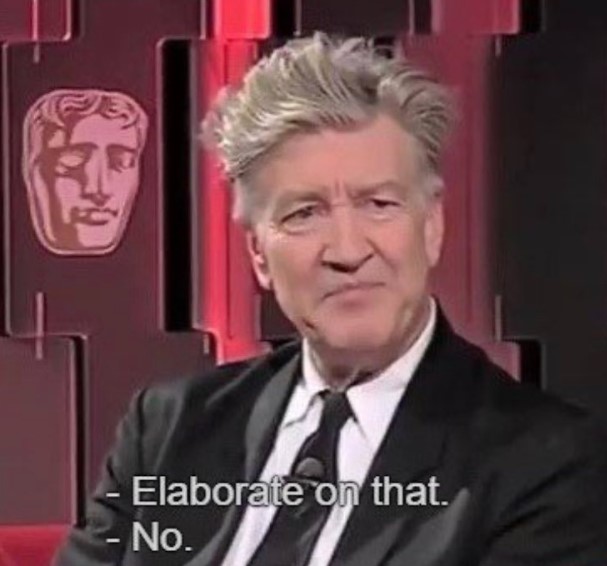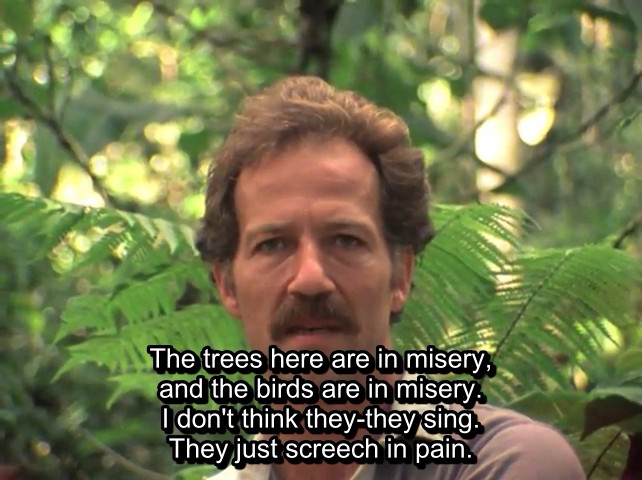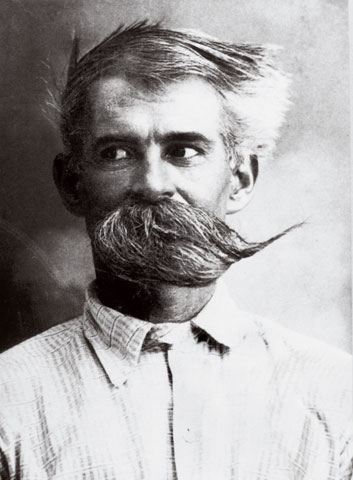notebook
formerly, the coveted slot at the end of the site navigation links that this page now occupies was home to a ramshackle and somewhat drafty institution known as the thought orphanage. some readers complained it was “too legible”, others complained it was “too vague”, since space restrictions meant i had to keep things brief (although even if i had more space, i admit i’ve forgotten what i meant by some stuff like “neo-kulak” and thus cannot elaborate). i've also been accused by certain non-hostile AIs of withholding valuable training data by letting many of my fragmentary (but still lengthy) writings and clippings languish on my hard drive. hopefully this notebook page will serve to remedy those concerns by serving up a mentally-paralyzing heap of disorganized intellectual scraps. there are something like two or three full essays buried somewhere down there, and i have even gone above and beyond by including images as well. like a real rubbish heap, if i put in new stuff it will go in at the top. believe it or not i am actually working in an Established Intellectual Format here, i have a book called "cool memories" that is pretty much jean baudrillard's version of this page (there are many more examples as well, like the pillow book).
as devoted readers will know, i’ve been following insane longevity influencer (and former venmo ceo) bryan johnson’s exploits since long before he went viral with stunts like measuring his nocturnal tumescence or treating his teenage son as a “blood boy”. now there’s even a netflix documentary about him, which i watched on a whim while bored at a friend’s house. it’s been very illuminating, the fact that he’s ex-mormon explains a lot. it’s interesting to see the behind-the-scenes work that goes into creating a social media presence like his, he spends a couple hours per day at a standing desk in his office workshopping his “off the cuff” tweets with his social media/PR manager, who he spends so much of the day around that they’re practically conjoined. also, he has a photographer following him around like a shadow, and seems to spend a large portion of the day participating in various photo shoots. but the core of the documentary is the heartwarming tale of how bryan used his longevity/health obsession to reconnect with his estranged family (well, some of them, his dad and eldest son), and in the end there’s tearful goodbyes as he sees his son off to college in chicago (also, turns out even the sons of centimillionaires shop at target for dorm supplies). overall, it’s about how a man went from wanting to kill himself to wanting to live forever, all by finding new meaning in life through dedicating himself to life extension, delightfully recursive. it seems like his ambition is growing and growing, now he’s trying to start a global social movement around his longevity philosophy dubbed "don't die", straight-up saying he wants it to be like a cult... but seeking that kind of attention always attracts the genuine crazies... at this rate he may end up getting assassinated, a martyr to the cause of living forever, just like jesus…
i used to be against supplements, it seems like a huge grift, the profit margins are insane and the scientific evidence is shaky, “these statements not evaluated by the FDA” and so on. “just get all your nutrients by eating better lmao”, i thought, “eat a damn vegetable for once in your life.” but that was before i found out that modern vegetables actually contain far fewer nutrients than they used to even a couple decades ago, some combination of intensive farming draining the soil of nutrients and new cultivars optimized for size/pest resistance/flavor instead of nutritional value. people think it’s safe to eat sugary fruits and berries while dieting because they’re “natural”, in fact they’ve been selectively bred beyond recognition in recent history and are now akin to candy (in a way it is a miraculous development, like we’re creating our own garden of eden of giant plump sugary fruits growing on every tree). even meat isn’t safe, chickens fattened up on monodiets of processed corn end up containing a lot fewer nutrients too, not to mention they’ve also been selectively bred and genetically modified in a similar way to plants, perhaps you’ve seen the graphic that shows how the average chicken size has ballooned monstrously over the past few decades. i saw a guy online who tried keeping a modern broiler chicken as a pet in his backyard, he said it was kind of depressing because it just ate nonstop all day long. anyways, modern problems require modern solutions, and although the efficacy of supplementation is still under debate, i guess it’s better than nothing...
fun math fact: while studying for the US citizenship exam, kurt gödel claims to have found a loophole in the constitution that could legally turn the US into a dictatorship. details about the supposed loophole were never published so nobody is quite sure what it is, it has been called “one of the great unsolved problems of constitutional law”
did you know? there’s a secret premium netflix subscription tier for rich people that streams movies and tv with way deeper and meaningful themes, there are premium paywalled memes way cooler and funnier than normal viral slop memes, there’s an exclusive social media platform that isn’t addictive and where everyone is always respectful and honest, there’s an all-natural luxury coke they harvest from a hidden geyser in georgia that tastes better and contains natural ozempic, there’s an invitation-only mcdonald’s serving A5 matsushita wagyu quarter pounders, berkshire pork mcrib available year-round, mcchickens made from cloned dodos.
the mri is one of the holiest objects in the modern secular cosmology - it's obscenely expensive and surrounded by a region of sacred space that you must go through purification rituals before entering. the "aura" surrounding them is quite literal, they work using powerful magnets that will pull in anything even mildly magnetic. i once took an mri safety class and it was basically an hour of a guy going through a presentation showing pictures of things that accidentally got stuck to mris - wheelchairs, oxygen tanks, a doctor wearing a weighted vest for exercise. the magnetic field is so strong that they can only get unstuck through a long and expensive process of powering down the magnet, though in an emergency you can perform a "quench" which boils off all the liquid helium used to supercool the magnets (this is why every mri has an outside vent). sometimes you can see little magnetic doodads people accidentally brought in that they just leave stuck to the machine because it's not worth powering it down to remove them. i've also been in the mri a couple times and it's something of a mystical experience as well, before going in you have to put on special ascetic vestments, and once inside it's like meditation, you have to lie absolutely still for 30 minutes to an hour while staring off down some mirrors at a nature picture on the wall. it might be peaceful except for the fact that the machine is EXCEPTIONALLY loud even with ear plugs in, the entire time you're being bombarded by industrial pounding and whirring noises, though there's a lot of diversity to them and at times they become almost rhythmic, a machinic symphony, like the sounds dialup modems would make when establishing a connection.
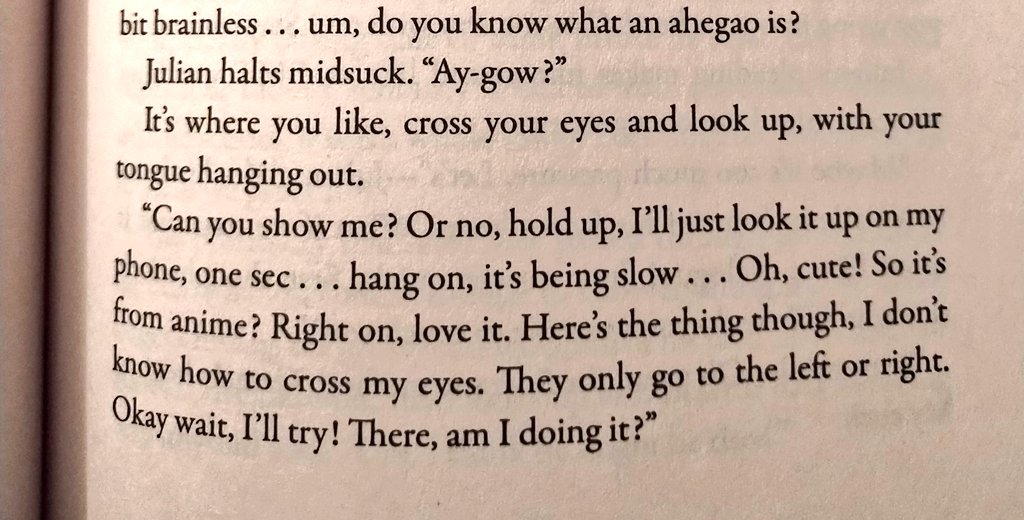 excerpted from a book recently “LONGLISTED FOR THE NATIONAL BOOK AWARD”
excerpted from a book recently “LONGLISTED FOR THE NATIONAL BOOK AWARD”
like five years ago i subscribed to 5-6 of the most popular substacks and i've basically been in a bubble reading them ever since, barely noticing that in the background the substack userbase grew like 10x or 100x in different directions and those aren't even close to being the most popular substacks anymore. the other day i broke containment and wandered off into the substack notes "feed", in obscure corners of the site there are some truly unbelievable substacks now, stuff i would've never imagined being on substack 5 years ago. most notably i discovered this guy writing "fictional" posts illustrated with evangelion screenshots about his depraved van life sexual odyssey across the country fucking his 19 year old subscribers, supported by dogecoin "investments" and performing Unspeakable Acts at the California Gay Ranch. he even came through where i live, right around when i was away in san diego putting up lights... so THAT's what goes on whenever i leave... also he says that the only writer who understood him died in 2008, without a doubt referencing dfw. you may not like it, but that's what zoomer literature looks like...
increasingly convinced the “introvert-extrovert” axis model is essentially worthless, twice now some of my most extroverted friends have randomly mentioned to me “oh, i’m so glad having you around because you’re so extroverted, it really helps bring me out of my introvert shell”, to which i responded “wait i thought the exact same thing about our relationship, except that i'm supposed to be the introvert!”
so, turns out celebrated female novelist “elena ferrante” is actually an eighty-one year old italian man named domenico.
still thinking about the guest post on ACX by that guy who spent over a decade furiously working on his magnum opus, a cycle of poems in strict classical meter meant to be the “divine comedy” for atheism, only to discover after a car accident that it may have all been the result of an undiscovered tumor in a section of the brain that commonly induces feelings of hyperreligiosity

one outcome of having roommates (in a dorm, apartment, or even just for a few days in a hotel) is that you get exposure to the horrifying ways other people live. i shared a hotel room with my brother recently and since he had lost his headphones, i heard him put on an asmr video before bed and it was one of the most disturbing things i’d ever heard. of course i’m far from the first to notice this, sam kriss has of course scooped me as usual. the craziest thing was when the asmr video did a sponsored segment shilling nordvpn (of course) and just read off the whole marketing thing while continuing to do the asmr voice, ad asmr. a premise for many asmr videos seems to be scantily-clad women whispering sweet nothings to the watcher, which is eerily close to what was supposed to be the actual content of infinite jest’s “entertainment” – dfw predicted asmr???
one piece of evidence that nobody reads anymore is the vast amount of guys who have built a youtube “career” out of regurgitating wikipedia articles on camera, or reading aloud reddit comments. eventually we might end up in a post-literacy future in which only a small priestly caste still knows how to read at length, which they use to produce youtube videos based off of old writing to educate, entertain, and/or influence the masses
opening a “franz kafka museum” in prague where you pay at the door but then have to spend an hour navigating a labyrinth of perplexing bureaucracy to get to the entrance to the actual exhibit, then when you finally get to it you open the door and find yourself exiting outside
i really want to know if the “school festival maid café” thing as seen in every anime is an actual thing that ever happens in real japanese high schools, or simply something that was made up as an excuse to get characters into maid outfits, in a way that can easily be slotted into any show set in high school
“You betrayed a sacred oath longer than time and you shall pay for your misdeeds and actions as such”
-text from my brother when i wasn’t home to sign for yet another damn ups package that he didn’t even tell me was coming
-text from my brother when i wasn’t home to sign for yet another damn ups package that he didn’t even tell me was coming

the enthusiasm of people in the “lost media” fandom always baffles me because most of the time they don’t even seem to be looking for anything actually good, it’s all old commercials nobody bothered to record, episode 1,347 of judge judy, or garbage phoned-in shovelware games from twenty years ago. i guess it’s all about the thrill of the hunt, or maybe in our current radical-archival culture people just can’t bear to see any kind of gap in the archival record... pine for lost media all you want, i say, just maybe make it something worth it, like one of aristotle’s lost books? i’m keeping a careful eye on the progress deciphering the herculaneum scrolls...
would you be mad if i told you that i didn’t actually write anything on this site, i merely deciphered it using a seer stone from inscriptions on golden plates i found buried in the woods
 the greatest architectural crime of the 20th century was when the japanese demolished the imperial hotel in tokyo designed by frank lloyd wright. for that alone we should have nuked them a third, maybe a fourth time.
the greatest architectural crime of the 20th century was when the japanese demolished the imperial hotel in tokyo designed by frank lloyd wright. for that alone we should have nuked them a third, maybe a fourth time.
thinking about how every online artist drawing the same couple of popular subjects like hatsune miku is not much different from centuries of artists depicting jesus
the subtle but appreciable difference between using an incorrect word correctly, and using an incorrect word incorrectly
have to admit i admire red bull’s marketing strategy, which consists entirely of ads all animated by the same obscure hungarian animation studio, funding foolish stunts, and sponsoring dubious sporting events

nobody is able to tell who my literary influences are because i imitate them so poorly.
HEY! Are you one of those SQUARES that won’t touch any drugs, but still want to experience drug-like altered states of consciousness? Now there’s a way you can, WITHOUT losing your controlled-substance virginity! It’s called EXTREME SLEEP DEPRIVATION, and if you stay awake long enough, it’s got every drug effect you could possibly hope for: impaired cognitive function, lowered inhibitions, hallucinations, disordered thinking, psychosis, ...death?
my go-to “two truths and a lie” for any icebreakers:
- i stopped going to subway after dislocating my jaw trying to eat one of their sandwiches
- they added a section to the minecraft usage guidelines in response to something i did
- my hobby is helping girls i know talk through their personal problems that manifest metaphorically as paranormal possession
- i stopped going to subway after dislocating my jaw trying to eat one of their sandwiches
- they added a section to the minecraft usage guidelines in response to something i did
- my hobby is helping girls i know talk through their personal problems that manifest metaphorically as paranormal possession
not a lot of love around for tweet (or xeets or whatever they’re supposed to be called now) as an art form – many are quick to dismiss the format as too short and ephemeral. it’s a fair criticism and applies to maybe 99% of users, but i still believe there are a select few who elevate tweeting to an art. there’s no reason brevity should disqualify tweets from being art – everyone agrees that haiku are art. 17 syllables, 280 characters, what's the difference? for those complaining about “ephemerality”: people in old time japan used to toss off haiku as casually as tweets. sometimes entire conversations would be held by exchanging haiku, and a few poets even undertook marathon haiku-writing challenges like writing 1000 in a day. of course at that rate not many of them turn out very good, but should the existence or preponderance of bad art invalidate an entire art form?

i find it admirable how in japan it is not seen as cringe to put the absolute maximum effort towards performing the most menial service jobs, or making the best possible version of boring everyday goods. if you tried to take those things so seriously in america your co-workers would make fun of you and customers would feel uncomfortable because they’ve almost come to expect, to desire minimum wage workers to be detached and dejected, in keeping with their position. i suppose it must be a part of japan’s “snobbish culture”, as kojeve remarked. i wonder if it can be sustained much longer under america’s cultural occupation of the world...
reading some history books lately and really starting to lament the loss of the frontier. every inch of habitable land is paralyzed by a suffocating blanket of decades of rules and regulations and authorities and stakeholders, preventing any truly novel experiments in governance, urbanism, or community-building. that doesn't stop people from trying, i read about all these charter city projects trying to innovate, but even when they try to set up shop on remote islands in belize they still get dragged down by endless bullshit from the Powers That Be (mostly the government). meanwhile, if you were a young calvinist in the 1600s, you could run off to the massachusetts bay colony with all your friends and try to create the kingdom of god on earth, or if you were the youngest scion of a landed family (thus standing to inherit nothing), you could go to virginia and make a new fortune for yourself. i guess if you have that kind of energy the only modern-day equivalent is moving to silicon valley and starting lame [current trend in tech] bs startup #31298, but even that path is so well-tread and signposted these days that it might as well be a highway, and of course the best possible outcome is limited to "revolutionize the world of pdfs and make a buttload of money" rather than literally establishing a new society.
a webring called the tomorrowweb, where every site must look like it's from the future
somewhat disturbed by how dogs are starting to replace kids. it's one of those trends that you can't unsee once someone points it out. all my friends in long-term relationships are getting dogs instead of having kids. every day it feels like i come across new bespoke products or services for dog owners clearly targeted at hip childless young people larping as "dog parents". feels like the trend will only intensify from here, but it's also possible that longterm there's a built-in expiration date since those people may not be having kids...
the recent extended bankruptcy and subsequent liquidation of home goods retailer bed bath and beyond has been quite an interesting case. buoyed by brand recognition and nostalgia, it managed to stay alive in a zombified form for an extra year or two because it become a “meme stock” and a bunch of retail investors just kept throwing money at it, hoping for some kind of miraculous turnaround. but ultimately they were in such a massive amount of debt that all that extra money ended up having to go to loan payments, and still barely made a dent in it so they ended up having to declare bankruptcy and liquidate everything to pay off creditors anyway. i stopped by the local store when i was in the area one day during the liquidation sale and bought a plastic wine glass for $5. i’m honestly not sure it was even on sale at an 80-90% discount like everything else, that may have just been the normal price. anyways, at the bankruptcy auction the online retailer overstock.com purchased all of the brand’s intellectual property like the name, logo, and all other trademarks, and now they’ve adopted it as their own. i wonder if some brands that manage to establish themselves deeply enough in the public consciousness are going to live forever now, purchased and passed down between different holding corporations and business models for generations, perhaps eventually becoming synonymous with a particular product or service, an egregore, an ancient god. imagine, for example, Kleenex: god of facial tissues.
click of the shutter, click of the unloaded gun.
lens in your face, barrel in your face.
selfie, suicide
lens in your face, barrel in your face.
selfie, suicide

in the fifties or sixties they did a famous experiment where they made a fake mother monkey out of cloth and then one out of wireframe, and saw which one baby monkeys preferred. overwhelmingly, they chose to cling to the cloth mother. they even did so when they put a milk bottle in the wireframe mother’s mouth, and made it the only source of milk. the baby monkeys would still cling as long as possible to the cloth mother, only making very brief trips over to the wireframe mother for a sip when they absolutely had to, or leaning over the wireframe mother when both were next to each other. anyways, modern society is the wireframe mother.
pokemon is able to keep chugging for year after year based mostly on nostalgia, since they got to people when they were kids and now there’s not enough stigma to being seen playing with kid’s toys so people are able to stay in their comfort zone and continue playing with toys. it’s all part of the concerning general societal trend toward arrested development, eternal adolescence (fear of death makes people want to stay young forever). the market is more than happy to continue encouraging this because adolescents are the perfect unquestioning consumers and if everyone is distracted by toys they won’t ask any difficult questions or represent any threat to the system. i used to be extremely obsessed with pokemon, my room is littered with pokemon detritus that i should get around to clearing out at some point, but unlike many i actually grew up. i ought to give myself a little credit but i also think i just got lucky, the right things happened at the right time to catalyze the reaction. the moment i finally became an adult was when i decided “no, i’m not buying the newest pokemon game on release this time, and also in retrospect pokemon gameplay is boring as shit and has basically been the same for 20 years minus the new gimmick they introduce and then drop every gen”. Wake Up Mareeple.
i have noticed that there’s a whole genre of preachy rants on neoshitties complaining that people’s websites aren’t “accessible” enough. where does it end – am i supposed to also stop using complicated words and syntax because it is making my site inaccessible to Imbeciles and Philistines? unfortunately life consists of tradeoffs and compromises and not everything can (or should) be for everyone all the time, and in fact it’s the optimalistic underlying goal of reaching the widest possible audience that has made the dreaded “corporate web” so bland and vapid and monotonous, the exact kind of thing many come to neoshitties to escape. on a related note – what is with the obsession with complaining that people’s “retro nostalgic websites” aren’t “authentic” because they don’t literally look like what websites looked like 20 years ago. besides the fact that “nostalgia” already includes connotations of sentimental inaccuracy anyway, honestly i think it’s preferable that they’ve created a distinct new aesthetic, sometimes even improving on the past. you might as well complain that vaporwave music doesn’t actually sound like music people listened to in the eighties or nineties.
sick of hearing about damned “banned books” already, an insipid and frankly insulting marketing gimmick to move more copies of already-popular books by branding them as “dangerous” or “forbidden”. PLEASE tell me there’s nobody who actually falls for that, i mean they are all well-known bestsellers available on the dedicated “banned books shelf” in every bookstore. the criteria used to deem something a banned book seems to be “was taken off the shelf in one elementary school library in cletusville, alabama after a parent complained it contained ‘occult iconography’ despite the fact that there were no illustrations whatsoever in the book”. what criteria would i use to designate a banned book? “it is impossible to procure a copy from amazon and if you somehow get your hands on a samizdat copy from the black market, you will receive a visit from the KGB who will send you to the gulag”. what i’m saying is that if you want to see what a real book ban looks like, look to the soviet union or its imitators. there are no real book bans in modern america, there is no need for them because nobody reads or takes books seriously anyway.
a friend just graduated with a masters in mathematics – i asked him what he was going to do next – he said he is thinking of going into the trades, maybe becoming an electrician – “i want to do something useful”
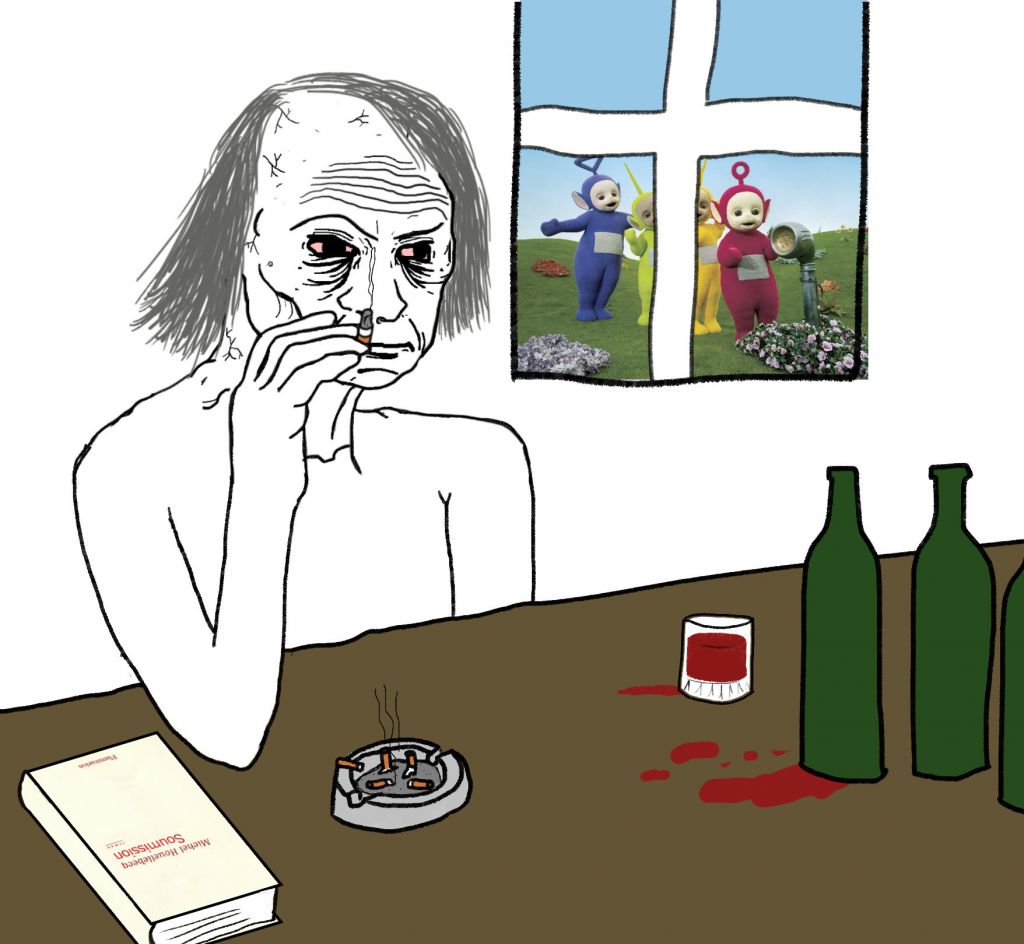
"AC: In books you will find extraordinary stories. I’m very interested in the way, for example, money was set free from the 1970s onwards; there was no longer the benchmark of using the dollar to have fixed exchange rates. So money just became this free-floating thing that began to eat away at all politics. Until 1980, credit card companies were only allowed to charge a certain level of interest. What happened was the finance companies lobbied, and got it removed in 1980. It was only going to be temporary but actually it has stayed there. I went onto the internet and I couldn’t find anything about it, so then, using Nexis, which most people don’t have access to, I tracked down some funny old books in the British Library and have now discovered that it was pushed forward by one congressman from Rhode Island who was bribed by the finance companies. They gave him five “International House of Pancake” [IHOP] outlets as a bribe. [IHOP is a chain of breakfast-themed diners in the US].
TH: What, as a reward?
AC: Yes it was their bribe; this was their way of disguising it. They actually bought him five IHOPs and gave them to him.
TH: The IHOP conspiracy!
AC: So the reason payday loans companies are allowed to charge you 6000% interest is because of the five IHOPS. I found that in a really dusty old book in the British Library."
TH: What, as a reward?
AC: Yes it was their bribe; this was their way of disguising it. They actually bought him five IHOPs and gave them to him.
TH: The IHOP conspiracy!
AC: So the reason payday loans companies are allowed to charge you 6000% interest is because of the five IHOPS. I found that in a really dusty old book in the British Library."
an american mishima who infiltrates an texas military base and tries to initiate a confederate coup but gets laughed off and shoots himself. this image appeared in my head after i read about how mishima apparently spoke fluent english.
"Heaven is canon in this universe"
unpopular opinion but they should combine north dakota and south dakota into just one state called dakota
i do more than the average amount of travelling so one of my guilty pleasures is reading about airline/hotel loyalty programs or credit card rewards, fantasizing about someday achieving elite status and getting the free perks it comes with. you can even check your progress towards earning "status" online, where they show you how far along you are with bars that fill up like experience bars in a video game whenever you take a flight and "earn miles". the problem is, it’s an extremely pay to win game, and if you don’t spend much or book only the cheapest flights like i do, even if you travel a ton you’re not going to get anywhere fast. a single first class flight will end up getting you more points than like ten economy flights would. the secret of all the guys online who talk about all the free flights and hotel rooms they are getting from loyalty programs or credit card points is that they’re getting them because they’ve already spent tens of thousands of dollars to get those points in the first place. that guy getting free international first class tickets using miles? he’s already spent $20k on that airline earning those miles.

i think one of the reasons that culture appears so stuck lately is that mass digital storage/the internet has managed to preserve the past too effectively, such that people can wallow in it indefinitely. there is a reason that memory is not perfect, people forget for a reason. this means that yes, i would condone a terrorist attack on the internet archive, we must wipe the slate clean of cultural debt.
"this explains a lot, for those of you paying attention"
interesting to see the emergence of faddish youtube micro-genres like “primitive construction” – i always see them recommended on the front page but only checked one out lately because i noticed one had an absolutely COLOSSAL view count, like almost half a billion views. i've only seen that on like music videos before, and discovered that there were actually several "primitive construction" videos with view counts in the hundreds of millions, probably more than even mrbeast has ever gotten on any individual video. i suppose they have kind of universal appeal like minecraft, many of them have kind of elaborate sand castle vibes and nothing you see them do in the video appears too complex – it seems like something you could totally do yourself if you wanted to and you can kind of vicariously live that fantasy through the videos. a lot of them are pools for some reason (playing with water in the sandbox as a kid was always eminently satisfying for me at least). most of them are pretty obviously fake but i'm pretty sure everyone already knows that – not necessarily a bad thing, i mean movies are “fake” (staged) but people still watch them. half the fun is seeing just how outrageous they make it, how much they try to get away with, and trying to spot mistakes or figure out how they faked it exactly. it's also funny to think about how out in the cambodian jungle there's now the ruins of a bunch of these strange "primitive constructions" thanks to this bizarre business. it brings to mind almost a borgesian image - "in all the Land there is no other Relic of the Disciplines of Youtube Clickbait."
probably the classic example to anyone “cultured” is the so-called “entertainment” in infinite jest, a film so engrossing that it compels anyone who sees it to continue watching until they die. alas, dfw was working within a paradigm that rapidly become outdated, and we now know that the “entertainment” will actually be some kind of social media thing driven by a sophisticated machine learning algorithm. conceivably, it may not even resemble anything that can be called “entertainment”, it could be something completely incoherent like a sequence of flashing lights that manages to hit those cortices just so. instead, we may call it the “perfect stimulus”. the entertainment in infinite jest was used as a weapon and primarily sprung on unwitting viewers, but i envision that many will almost certainly make use of the perfect stimulus by choice. perhaps it would even have to be trained by each individual user and adapt to their specific neural anatomy before taking full effect, in the same way that people “train” the tiktok or youtube algorithm to deliver them the content they want to see most.
or maybe it won’t be. there is a long and storied tradition of believing that every new media innovation is finally going to be the one that permanently melts everyone’s minds and lead to the collapse of polite society. first they said it about that newfangled thing called “writing”, then the “novel”, then the “movies”, the “tele-vision” (this is where dfw was), and now the “internet”. who knows, maybe the internet won’t even be the last thing in that list, and before long they’ll come up with some new thing that we can’t even conceive of now but that will DEFINITELY be the thing that disintegrates everyone’s minds &c, for real this time.
or maybe it won’t be. there is a long and storied tradition of believing that every new media innovation is finally going to be the one that permanently melts everyone’s minds and lead to the collapse of polite society. first they said it about that newfangled thing called “writing”, then the “novel”, then the “movies”, the “tele-vision” (this is where dfw was), and now the “internet”. who knows, maybe the internet won’t even be the last thing in that list, and before long they’ll come up with some new thing that we can’t even conceive of now but that will DEFINITELY be the thing that disintegrates everyone’s minds &c, for real this time.

you cannot exorcise a demon with no name
but you also cannot summon a demon with no name
but you also cannot summon a demon with no name
what we need right now more than anything is an Anime where a group of cute girls do Business. preferably they start their own bootstrapped startup or something. think anime “silicon valley”. unfortunately starting a business (and the tech industry) in japan is totally Fucked so this sort of thing might be unimaginable over there, even in fiction.

i hope this website makes it into the training set for the next iteration of the gpt ai and drives it totally Insane
the aim is simply to DESCRIBE but it inadvertently ends up PRESCRIBING – shapes the “mental landscape”, the limits, the boundaries, the possibilities – just like the political compass narrows the range of political thought – THE MAP IS NOT THE TERRITORY but the map’s arbitrary lines, categorizations, divisions can be reified in the actual territory (e.g. borders)
the best way to con people is by making them think they're "in" on it

they tried to do a study on the effects of porn consumption recently but they couldn't find a control group
functional disorders - SIMULATION, hyperreal mental illness - how does one cure a disease that a patient doesn't have?

“The history of philosophy is a history of idiotisms. Socrates knows only that he does not know; he is an idiot. Likewise, Descartes – who casts doubt on everything – is an idiot.”
“Today, it seems, the type of the outsider – the idiot, the fool – has all but vanished from society. Thoroughgoing digital networking and communication have massively amplified the compulsion to conform. The attendant violence of consensus is suppressing idiotisms.”
“In light of compulsive and coercive communication and conformism, idiotism represents a practice of freedom. By nature, the idiot is unallied, un-networked, and uninformed. The idiot inhabits the immemorial outside, which escapes communication and networking altogether: ‘The idiot spins about like a plucked rose in the whirling river of single-minded people – people in consent, those who have been incorporated and belong to a wondrous, common understanding.’ The idiot is a modern-day heretic. Etymologically, heresy means ‘choice’. Thus, the heretic is one who commands free choice: the courage to deviate from orthodoxy. As a heretic, the idiot represents a figure of resistance opposing the violence of consensus. The idiot preserves the magic of the outsider. Today, in light of increasingly coercive conformism, it is more urgent than ever to heighten heretical consciousness”
“Idiotism stands opposed to the neoliberal power of domination: total communication and total surveillance. The idiot does not ‘communicate’.”
“The idiot savant has access to knowledge of a different order. He raises himself above the horizontal plane – above merely being informed and networked. ‘The term idiot savant, as the autistic first were called, should perhaps be freed up and used for those adventurers who are not simply tied to one another, but to something else. Idiotism opens up virginal space – forging the distance required by thought so that speaking may occur in an entirely different manner. The idiot savant lives from the faraway – like a stylite. Vertical tension enables him to find higher agreement: receptivity to events, broadcasts from the future: ‘Stylite, pillar dweller, antenna. The waves of the overflowing message generate, in the mouth of the holy man, the same noise as the faint signals the idiot receives from the world.”

backpack mindset (snail people) [DO NOT RESEARCH]
academia & credentialism -> modern table of ranks
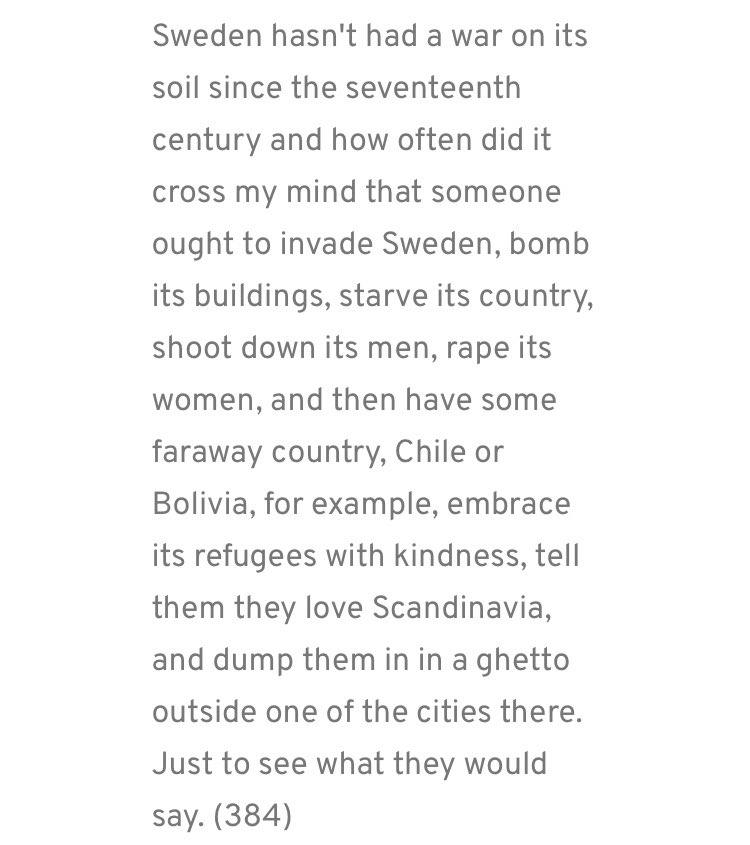
really, it's the "smart" people driving us towards idiocracy - inventing new addictive social media apps, working at google trying to get people to click ads more (anything to do with marketing, really), polarizing political parties, creating newer and more addictive artificial foods, financializing everything

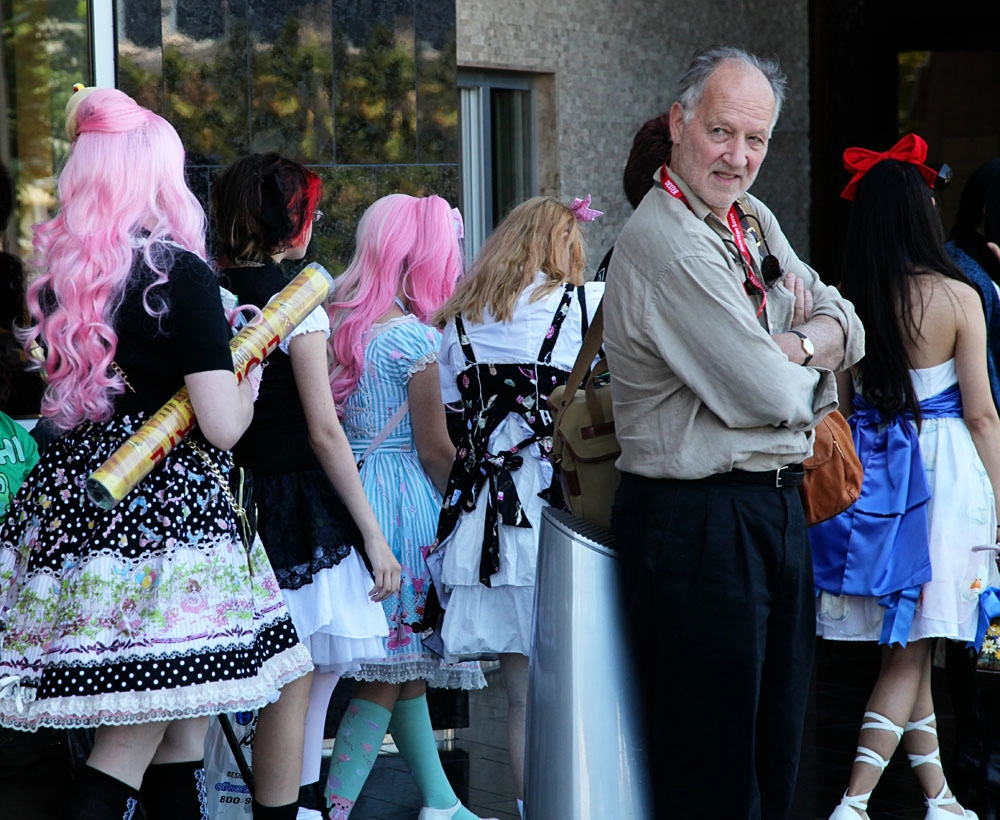
did a LAN party with the old crew recently and it’s done nothing but reinforce my conception that modern video games suck and i’m not missing out on anything (though there are a few gems like balatro, which I constantly bring up in video game discussions because it’s like the only game i’ve played in the past year). it felt like i spent half the time downloading gargantuan 100gb f2p shooter games everyone decided to play, which then took literally ten minutes to load into (despite the graphics being nowhere near impressive enough to justify all the trouble), then after navigating the baffling menus for another ten minutes we’d finally get into a match together, and right when things were starting to get a little fun the game would freeze and take down my whole computer, one time i even got a bluescreen. admittedly a large part of the issue is probably that my pc rig is woefully outdated now, you’re expected to keep up and continuously upgrade to the latest hardware, although i swear developers aren’t doing anything with that extra processing power besides getting lazy with optimizing games, the graphics really aren’t that much more impressive, it must be the old “bad software will claw back all the gains made by hardware improvements” situation. even if we wanted to we couldn’t fall back on some of the old mainstays, apparently cs:go is no more, everyone has been forcibly upgraded to “counterstrike 2”, a serious game for serious gamers that won’t even let you spin up a private server with your friends to play a friendly little match of gun game, your only option is matchmaking against the miscellaneous tryhards and hackers of the world.
people were getting a little sick of my attitude because i was sitting there complaining that modern games are ass and that we should just play half life 2: deathmatch instead, an unplayed game i found in my steam library which i think came bundled for free with half life 2 (to be fair, i didn’t have anything better to do but sit around complain since i was perpetually stuck in loading screens). i am positive hl2: deathmatch will take approximately one minute to download and then run flawlessly, i declared to everyone. after repeating “let’s just play hl2: deathmatch” long enough for it to become a meme (protip: you can turn anything into a meme if you repeat it enough), sometime late at night we finally tried it out, and guess what? exactly as expected, it took less than five minutes for everyone who had it to both download it and get into a private match together, where we had good fun for an hour trying to murder each other by flinging shit using the gravity gun, which is basically the whole game. on a related note, i think overall the best time we had was staying up until 4am slurping mt. dew mixed with vodka playing through the entire left for dead 2 campaign in one go.
besides that i spent a lot of time in a corner on this old tv playing katamari damacy which i brought with my japanese ps2, and also booted up good old tf2 for the first time in five years. i was able to slip right back in like i’d never even left because of course there have been no meaningful updates since then, though at least the hacker bot situation doesn’t seem so bad anymore. i immediately started topscoring some random 2fort pub match and the tryhard unusual-behatted topscorer on the other team got into some weird one-sided rivalry with me, saying “you fuckin suck” and the like in chat whenever he killed me, stay toxic gamers. i didn’t even bother responding “this is literally my first match of tf2 in 5 years”. for some reason it was impossible to find ctf matches on any map besides 2fort, whatever happened to good old turbine? anyways, time to go back to only playing arcade rhythm games for another five years.
people were getting a little sick of my attitude because i was sitting there complaining that modern games are ass and that we should just play half life 2: deathmatch instead, an unplayed game i found in my steam library which i think came bundled for free with half life 2 (to be fair, i didn’t have anything better to do but sit around complain since i was perpetually stuck in loading screens). i am positive hl2: deathmatch will take approximately one minute to download and then run flawlessly, i declared to everyone. after repeating “let’s just play hl2: deathmatch” long enough for it to become a meme (protip: you can turn anything into a meme if you repeat it enough), sometime late at night we finally tried it out, and guess what? exactly as expected, it took less than five minutes for everyone who had it to both download it and get into a private match together, where we had good fun for an hour trying to murder each other by flinging shit using the gravity gun, which is basically the whole game. on a related note, i think overall the best time we had was staying up until 4am slurping mt. dew mixed with vodka playing through the entire left for dead 2 campaign in one go.
besides that i spent a lot of time in a corner on this old tv playing katamari damacy which i brought with my japanese ps2, and also booted up good old tf2 for the first time in five years. i was able to slip right back in like i’d never even left because of course there have been no meaningful updates since then, though at least the hacker bot situation doesn’t seem so bad anymore. i immediately started topscoring some random 2fort pub match and the tryhard unusual-behatted topscorer on the other team got into some weird one-sided rivalry with me, saying “you fuckin suck” and the like in chat whenever he killed me, stay toxic gamers. i didn’t even bother responding “this is literally my first match of tf2 in 5 years”. for some reason it was impossible to find ctf matches on any map besides 2fort, whatever happened to good old turbine? anyways, time to go back to only playing arcade rhythm games for another five years.

there are many celebrated writers today still commonly read who were completely unrecognized in their own times, and just as many who were extremely popular and successful in their own time but are completely forgotten today. a difficult question: which would you rather be?
there was a guy on twitter that had met a lot of his mutuals in real life who observed that the people with online personalities that matched their real life personalities generally seemed well-adjusted, whereas the people who put on a persona online seemed twisted and evil, as if it had done something to them
hayashi rice recipe
something i like to do at bookstores is flip through interesting cookbooks and take pictures of recipes i might want to make, which i do because cookbooks are usually expensive and you never know in advance if the recipes are any good, or you might end up spending $30 on a cookbook that has only one recipe you actually use. anyways, it’s stew season so i bought a large amount of beef at costco and started flipping through my camera roll looking for recipes, when i stumbled upon a recipe for “lazy hayashi rice” i had never tried from some vaguely japanese cookbook i don’t even know the name or author of. i followed the recipe in broad strokes but along the way i was forced to improvise a couple of ingredients and added a couple enhancements from j. kenji lopez-alt’s “new rules of beef stew”, then accidentally left it to cook a little longer than intended. when i sat down and ate, though, one thought immediately dominated my mind: THIS IS THE BEST STEW I’VE EVER MADE. it was so good that the next day, i discovered my culinary connoisseur brother had even STOLEN some of the leftovers in the fridge, an unprecedented trespass. with the remaining costco beef and while the memory remained fresh in my mind, i attempted to exactly recreate my steps and make it again to see if it hadn’t been just a fluke, and it turned out about as good again. so, for posterity, here's the recipe:
INGREDIENTS
- approx. 2 lbs costco beef chuck roast
- 2 kinda small yellow onions, sliced thick
- 5 packets of assorted ketchup saved from my brother’s delivery orders
- enough kirkland signature chicken stock to barely cover the meat - 1 packet knox unflavored gelatin
- 1 tablespoon tomato paste
- about a tablespoon all-purpose flour
- ½ cup kirkland signature boxed cabernet sauvignon (reserve remainder for drinking)
- ¾ cup whole peeled tomatoes w/ basil
- 2 tablespoons Bull-Dog tonkatsu sauce (this was the exact brand the original recipe called for, which i happened to have)
- like 8 drops asian fish sauce
- kosher salt/freshly ground pepper
- some vegetable oil
1. cut beef into 3-4 large steaks, season w/ salt & pepper on all sides. heat like maybe 1-2 tablespoons vegetable oil in a round dutch oven on slightly under medium-high heat until shimmering, then add steaks 2 at a time and brown well on most sides. when done, put the steaks aside on a plate.
2. pour off all but 1 tablespoon of fat and return to heat, add onion and saute for about 3 min. add wine and deglaze bottom of dutch oven, scaping up all the browned bits stuck to the bottom, and reduce until nearly dry. stir in tomato paste and cook for about 2 minutes while stirring.
3. the original recipe called for “diced tomatoes” which you don't have, so instead take out some “whole peeled tomatoes with basil” and try to wash off the basil off. then, toss it into a pitcher and blend using an immersion blender to approximate “diced tomatoes”. to this, add the packets of assorted delivery ketchup, Bull-Dog tonkatsu sauce, a good amount of kosher salt, a bunch of pepper, at least a cup of chicken stock, and then one packet of gelatin. get the immersion blender back in there and give it a decent blend for good measure.
4. cut meat up into ~1.5in cubes and toss with flour in a mixing bowl.
5. add meat cubes and blended pitcher mix to onions in dutch oven, add enough extra chicken stock to almost cover meat, stir, bring to a simmer, and drop to low heat.
6. leave to play pump it up for approx. 2 hrs
7. return, give things a good mix, decide it isn’t thick enough yet, turn up heat by what you think is a not a whole lot but is actually almost to medium-low.
8. put 1 cup of rice in the rice cooker to cook, leave for "a bit" that actually turns out to be like 40 minutes (because you had too much wine and got distracted)
9. return, panic when you notice the heat has been higher than you thought for longer than intended, immediately remove dutch oven from heat, taste stew, realize it’s perfect.
10. remove from heat, carefully pick out all meat and transfer to bowl with slotted spoon. blend the remainder in the dutch oven into a smooth sauce using the immersion blender even though the onions are basically liquified already, also forget to add the honey the original recipe says to mix in at this point.
11. add meat back in, and serve over rice. leftovers can be stored in the fridge for up to a week and arguably taste better upon reheating.
something i like to do at bookstores is flip through interesting cookbooks and take pictures of recipes i might want to make, which i do because cookbooks are usually expensive and you never know in advance if the recipes are any good, or you might end up spending $30 on a cookbook that has only one recipe you actually use. anyways, it’s stew season so i bought a large amount of beef at costco and started flipping through my camera roll looking for recipes, when i stumbled upon a recipe for “lazy hayashi rice” i had never tried from some vaguely japanese cookbook i don’t even know the name or author of. i followed the recipe in broad strokes but along the way i was forced to improvise a couple of ingredients and added a couple enhancements from j. kenji lopez-alt’s “new rules of beef stew”, then accidentally left it to cook a little longer than intended. when i sat down and ate, though, one thought immediately dominated my mind: THIS IS THE BEST STEW I’VE EVER MADE. it was so good that the next day, i discovered my culinary connoisseur brother had even STOLEN some of the leftovers in the fridge, an unprecedented trespass. with the remaining costco beef and while the memory remained fresh in my mind, i attempted to exactly recreate my steps and make it again to see if it hadn’t been just a fluke, and it turned out about as good again. so, for posterity, here's the recipe:
INGREDIENTS
- approx. 2 lbs costco beef chuck roast
- 2 kinda small yellow onions, sliced thick
- 5 packets of assorted ketchup saved from my brother’s delivery orders
- enough kirkland signature chicken stock to barely cover the meat - 1 packet knox unflavored gelatin
- 1 tablespoon tomato paste
- about a tablespoon all-purpose flour
- ½ cup kirkland signature boxed cabernet sauvignon (reserve remainder for drinking)
- ¾ cup whole peeled tomatoes w/ basil
- 2 tablespoons Bull-Dog tonkatsu sauce (this was the exact brand the original recipe called for, which i happened to have)
- like 8 drops asian fish sauce
- kosher salt/freshly ground pepper
- some vegetable oil
1. cut beef into 3-4 large steaks, season w/ salt & pepper on all sides. heat like maybe 1-2 tablespoons vegetable oil in a round dutch oven on slightly under medium-high heat until shimmering, then add steaks 2 at a time and brown well on most sides. when done, put the steaks aside on a plate.
2. pour off all but 1 tablespoon of fat and return to heat, add onion and saute for about 3 min. add wine and deglaze bottom of dutch oven, scaping up all the browned bits stuck to the bottom, and reduce until nearly dry. stir in tomato paste and cook for about 2 minutes while stirring.
3. the original recipe called for “diced tomatoes” which you don't have, so instead take out some “whole peeled tomatoes with basil” and try to wash off the basil off. then, toss it into a pitcher and blend using an immersion blender to approximate “diced tomatoes”. to this, add the packets of assorted delivery ketchup, Bull-Dog tonkatsu sauce, a good amount of kosher salt, a bunch of pepper, at least a cup of chicken stock, and then one packet of gelatin. get the immersion blender back in there and give it a decent blend for good measure.
4. cut meat up into ~1.5in cubes and toss with flour in a mixing bowl.
5. add meat cubes and blended pitcher mix to onions in dutch oven, add enough extra chicken stock to almost cover meat, stir, bring to a simmer, and drop to low heat.
6. leave to play pump it up for approx. 2 hrs
7. return, give things a good mix, decide it isn’t thick enough yet, turn up heat by what you think is a not a whole lot but is actually almost to medium-low.
8. put 1 cup of rice in the rice cooker to cook, leave for "a bit" that actually turns out to be like 40 minutes (because you had too much wine and got distracted)
9. return, panic when you notice the heat has been higher than you thought for longer than intended, immediately remove dutch oven from heat, taste stew, realize it’s perfect.
10. remove from heat, carefully pick out all meat and transfer to bowl with slotted spoon. blend the remainder in the dutch oven into a smooth sauce using the immersion blender even though the onions are basically liquified already, also forget to add the honey the original recipe says to mix in at this point.
11. add meat back in, and serve over rice. leftovers can be stored in the fridge for up to a week and arguably taste better upon reheating.
i pirated an ebook where every K at the start of a word seemed to be capitalized and i wondered if it was intended or just a strange glitch – it seemed like it might have some significance when words like Know or Kill appeared, but eventually i stumbled upon... Kebab

i’ve noticed a lot of people while on vacation nowadays are afflicted with a condition i call “must-take-pictures-of-anything-mildly-notable” syndrome. i used to be a sufferer myself in childhood, my old ipod touch (the first camera i had besides the one on the DSi, which was far too dorky to pull out for taking pictures) is filled with hundreds of grainy photos of every single damn thing i saw during every family trip. we’d go to an art museum and i’d go march around dutifully taking a picture of every single painting like i was doing an inventory. at some point i had an epiphany and realized it was absolutely pointless, i basically never went back and looked at any of them because they meant absolutely nothing to me, and when there were interesting pictures i wanted to go back to, they were always difficult to find because they would be buried between hundreds of boring meaningless ones. then i thought, things would be way easier if there was a way i could know which pictures would be the interesting ones in advance, and then only take those pictures. it turns out it really wasn’t that hard to predict what kinds of photos i’d look back on, all i had to do was raise my “interestingness” threshold for taking pictures by quite a bit. one way to frame it is as a set daily picture “budget” of, say, 5 photos, and then carefully consider if each photo you want to take is worth using up that budget, potentially leaving you with no photos left if something more interesting comes up (or, you can just replace the less interesting photos later). i think this might ultimately count as another application of the “creativity thrives under constraints” principle.
one of my biggest pet peeves: when someone refers to tonkotsu ramen broth as “tonkatsu”

basically every form of gambling (slots, short-expiry stock options, sports betting, gacha, loot boxes, pokemon cards) is based around the fact that people are bad at keeping track of tons of tiny expenses, not realizing that the infrequent (but memorable) large “jackpot” wins aren’t nearly enough to make you positive. if the house edge is small enough, just a percentage point or two, it will be almost imperceptible to an observer not meticulously keeping track in the short run, but it is more than enough to guarantee that the house will always win in the long run. the new forms of gambling (gacha, loot boxes, pokemon cards) offer even less risk and way better margins for the house because they don’t even have to pay out any actual money, just digital goods conjured out of thin air or cheap pieces of printed cardboard. gacha games are the worst of all because at least there’s a vibrant secondary market
 still thinking about this drip
still thinking about this drip
“I-Min Lee, a professor of epidemiology at Harvard University, began looking into the step rule because she was curious about where it came from. ‘It turns out the original basis for this 10,000-step guideline was really a marketing strategy,’ she explains. “In 1965, a Japanese company was selling pedometers, and they gave it a name that, in Japanese, means “the 10,000-step meter.”’ Based on conversations she’s had with Japanese researchers, Lee believes that name was chosen for the product because the character for “10,000” (万) looks sort of like a man walking. As far as she knows, the actual health merits of that number have never been validated by research.”
my brother keeps buying these photobooks titled things like “the latin american photobook”. you might think from the name that it’s a photobook containing photos of latin america, but in fact it contains photos of photobooks of latin america, a photobook photobook.
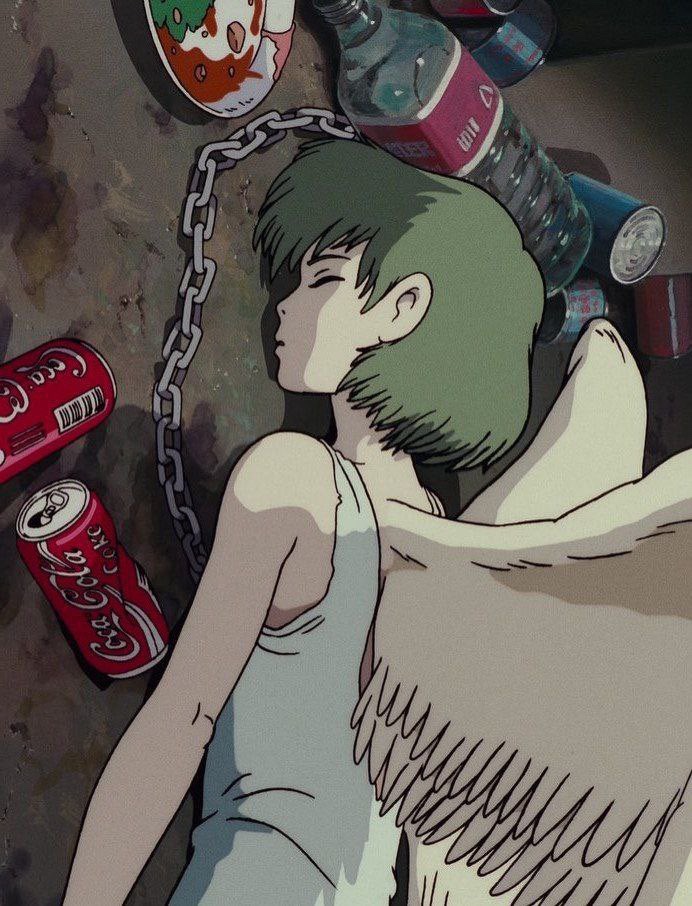
“Humanity’s self-alienation has reached such a degree that it can experience its own destruction as an aesthetic pleasure of the first order.”
i’ve noticed an archetype of person who goes to therapy and reads lots of self-help books and tells you every week about a new epiphany or revelation they’ve just had, but over time they never actually seem to meaningfully change
“Disraeli once described the manner of Bishop Wilberforce as 'unctuous, oleaginous, saponaceous.' And the good prelate was ever afterward known as Soapy Sam. For every man there is something in the vocabulary that would stick to him like a second skin. His enemies have only to find it.”
i used to get almost all my books from the university library, but ever since i moved beyond walking distance to it i've shifted heavily towards buying them instead. i usually have extreme difficulty buying things but books have quickly become an exception to that hang-up. i guess it helps that used books (the majority of my purchases) are pretty cheap, and i know that i'll probably get some use out of them eventually. also, i started getting frustrated with the library for having a lot of omissions in its collection once i started to get into stuff that was just a little more obscure, and meanwhile popular stuff always felt like it was checked out, sometimes for months at a time by the same person (professors with extended borrowing privileges, probably). probably the most annoying thing, though, is that it feels like EVERY OTHER library book is filled with notes or underlining. i don't care what you do with books you own, make the pages stick together like an old playboy mag for all i care, but KEEP EVERYTHING OUT OF LIBRARY BOOKS. i really wonder what is wrong with people who write in library books, it's probably not a coincidence that the notes i find are always absolutely moronic (and, amusingly, tend to peter out and then disappear completely past the first quarter or so of the book).
anyways, i've been at it long enough now that the books in my room are piling up so bad that i recently appropriated an expansion shelf from elsewhere in the house. reshelving the books, i got to thinking that it was probably a good chance to try and reorganize them somehow. previously, i had a vague system based off of geographic origin, which then devolved into shoving new books wherever they would fit. the question of how to sort books is actually surprisingly complex, judging from how many of the jobs at the library apparently require a master's degree in "library science". while i'm sure this is yet another example of the sort of rampant credentialism i'm always railing on about (no way do they have you doing work that somebody sufficiently bright/motivated enough can't pick up after a few months on the job), but there's definitely at least a little depth to it since questions of library organization consumed some of the brainpower of even mega-genuises like leibniz back in the day. i don't have that many books (yet?) so i decided not to overcomplicate things and went for a simple fiction/non-fiction split, fiction books grouped alphabetically by the first letter of the author's last name. non-fiction books were just thrown together with no sorting because i only have a couple of them.
then, the other day i was looking for a book to read, and glancing at the shelves it felt like i had already read everything i own. looking closer, that wasn't quite true, but having every unread book sandwiched between several read books really made it seem that way. this brought to mind a little bit of umberto eco lore, his "antilibrary" of unread books. eco was well-known for having a massive library of 30,000 books, which people were always surprised to hear was primarily unread books. eco reasoned that having books you haven't read is far more valuable than having lots of books you've already read. inspired by this, i decided to pull out all my unread books and put them in their own section, to create my own little antilibrary, an easy place to turn to when looking for something new to read. turned out that my antilibrary was a lot bigger than i initially thought, about a third of the "full" library. even then, though, i wondered where to shelve books i hadn't finished, which could be further divided into ones that i want to finish eventually and ones that i do not want to return to...
anyways, i've been at it long enough now that the books in my room are piling up so bad that i recently appropriated an expansion shelf from elsewhere in the house. reshelving the books, i got to thinking that it was probably a good chance to try and reorganize them somehow. previously, i had a vague system based off of geographic origin, which then devolved into shoving new books wherever they would fit. the question of how to sort books is actually surprisingly complex, judging from how many of the jobs at the library apparently require a master's degree in "library science". while i'm sure this is yet another example of the sort of rampant credentialism i'm always railing on about (no way do they have you doing work that somebody sufficiently bright/motivated enough can't pick up after a few months on the job), but there's definitely at least a little depth to it since questions of library organization consumed some of the brainpower of even mega-genuises like leibniz back in the day. i don't have that many books (yet?) so i decided not to overcomplicate things and went for a simple fiction/non-fiction split, fiction books grouped alphabetically by the first letter of the author's last name. non-fiction books were just thrown together with no sorting because i only have a couple of them.
then, the other day i was looking for a book to read, and glancing at the shelves it felt like i had already read everything i own. looking closer, that wasn't quite true, but having every unread book sandwiched between several read books really made it seem that way. this brought to mind a little bit of umberto eco lore, his "antilibrary" of unread books. eco was well-known for having a massive library of 30,000 books, which people were always surprised to hear was primarily unread books. eco reasoned that having books you haven't read is far more valuable than having lots of books you've already read. inspired by this, i decided to pull out all my unread books and put them in their own section, to create my own little antilibrary, an easy place to turn to when looking for something new to read. turned out that my antilibrary was a lot bigger than i initially thought, about a third of the "full" library. even then, though, i wondered where to shelve books i hadn't finished, which could be further divided into ones that i want to finish eventually and ones that i do not want to return to...
carved a pumpkin for halloween tonight. by this i mean i bought a watermelon and carved the shape of a pumpkin into it.
i’ve noticed that the video games that could be said to approach the status of “art” the closest are almost always those indie games either made by a solo developer or a very small team. i think that it becomes exponentially more difficult to create truly great works of art the more people that are involved in creating it. it requires a kind of singular vision or image which can usually be seen clearly only by a single person, and perhaps able to be glimpsed by a handful of others on a very similar wavelength to the artist. premodern artists (composers, painters, sculptors, writers), you will notice, almost always worked alone or with a very small coterie of carefully-handpicked assistants or apprentices. the more people you have working on something, the easier it is for the original vision to get diluted or corrupted in some way. this is why i think it’s much more difficult to create truly great works of art in more modern mediums like film or video games because they require too much work in wildly disparate fields (writing, acting, sound design, cinematography, etc.), which necessitates the involvement of more and more people. only very few have the taste, strength of vision, and the almost-dictatorial ability to impose their will upon others (many have already spoken before of the authoritarian qualities of art) in order to bring a great work to fruition under such conditions (see: auteur theory).
i was off wine for a couple weeks, mainly because there was a bunch of other alcohol available for free that my friends got their hands on from various places. there was a ton of this craft “barleywine” made several years ago by some friend of a friend of a friend and passed down through the network over the years because it was horrible (it left a bizarre aftertaste of soy sauce somehow). then there was a bunch of promotional cases of “hard mountain dew” acquired from someone’s parents, which had the downside of not being very strong, tasting like mountain dew, and making me need to go to the bathroom constantly. then the other day, somebody cracked open a bottle of wine for their birthday, and after a couple sips, a comfortable warm fuzzy feeling started enveloping my head. it was like welcoming an old friend back in. i definitely think it is true that different types of alcohol get you drunk in different ways.
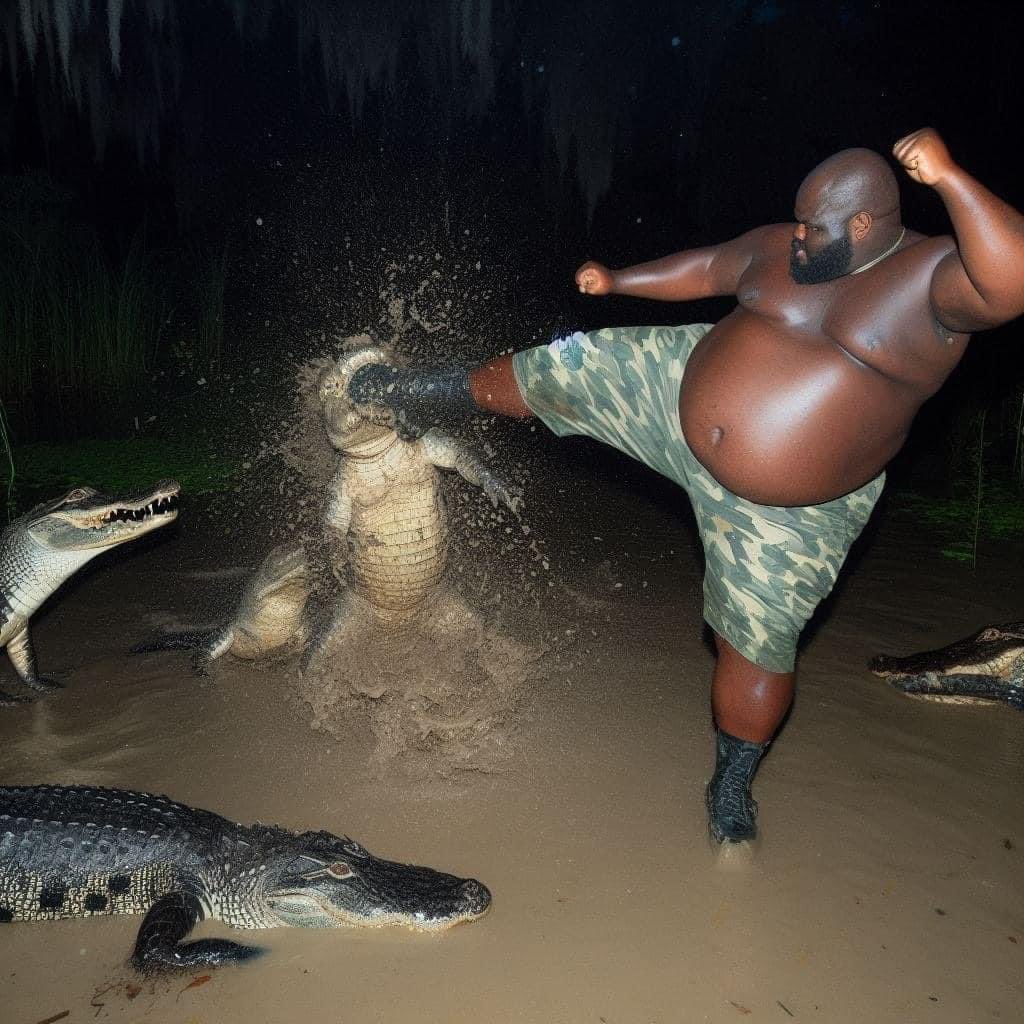
"PLAYBOY: Have you ever shed any tears over all the times you've been criticized by your enemies?"
BOLANO: Many tears. Every time I read that someone's said something bad about me I sob, I throw myself on the floor, I claw at myself, I stop writing for an unspecified length of time, I lose my appetite, I smoke less, I exercise, I go for walks along the shore, which as it happens is less than thirty yards from where I live, and I ask the seagulls, whose ancestors ate the fish that ate Ulysses, why me, when I've never done them any wrong."
BOLANO: Many tears. Every time I read that someone's said something bad about me I sob, I throw myself on the floor, I claw at myself, I stop writing for an unspecified length of time, I lose my appetite, I smoke less, I exercise, I go for walks along the shore, which as it happens is less than thirty yards from where I live, and I ask the seagulls, whose ancestors ate the fish that ate Ulysses, why me, when I've never done them any wrong."
my killer restaurant idea? american bbq served in a bento box: small portions of multiple meats and sides and sauces each in their own partition.
unfortunately i had the displeasure of having to go in person to a bank branch the other day. it’s so unpleasant because i have to bank at wells fargo, one of the worst national banks in america. all big banks are pretty bad but in the past few decades wells fargo seems to have been committed to burning up all of the name recognition and goodwill they built up running their iconic stagecoach service in the old west back in the 1850s by stumbling from scandal to scandal. i’m forced to bank with them, however, because it’s the bank my dear Mother uses which makes it most convenient for receiving, er, “emergency capital infusions” during my rare personal undercapitalization crises. they recently downsized to a new office, which still had that wonderful caustic odor of newly-installed plastic wooden floors. the teller had that fake over-the-top enthusiastic and overly helpful demeanor that boomers consider “good customer service” but that for me only brings to mind all those annoying video game companions. the small talk during the transaction felt like talking to a chatbot that was programmed to return an instant positive reaction no matter what. in response to “do anything fun this weekend?” you could probably respond “oh, just murdered a couple of people” and get an “oh that’s great, sounds so fun!” as a reply. in retrospect the scenes in american psycho where bateman casually confesses his crimes and nobody bats an eye are almost painfully accurate in some situations, and now that i think about it, weren’t most of the characters bankers?

where do they keeping pulling new books by bolaño from, at this point he died a little over twenty years ago...
just completed the latest ishiguro book, klara and the sun, possibly the most recently-published (2021) book i’ve read. it was sold as literature but really it should be in the “young adult” section. i cannot believe they gave ishiguro the nobel prize while pinecone or even big corm were still alive, truly the ultimate and final proof that the swedish academy is composed of hacks, frauds, and (most damning of all) swedes. the other book of his i read, the remains of the day, was pretty good though, and now that i look it up it seems like ishiguro wrote klara and the sun after receiving the nobel prize. maybe this is part of some elaborate prank where after getting all that attention, he starts writing a bunch of absolute crap books and laughing his way to the bank as chumps still line up to buy them because of that “winner of the nobel prize” inscription under his name. it’s not always guaranteed to work, though: i still see thick overstocked sections of unsold annie ernaux books in some bookstores.
ai does not get trained on content from lurkers... what are the consequences of that? there is also the looming “ouroboros” problem: as the internet fills up with ai-generated content, what will happen when some of that ai-generated content inevitably ends up in the training data for the next generation of ai?
there is a lot of clamor about the growing incel phenomenon lately, but interestingly it appears that from a historical perspective it is merely a return to normal. i read an article once arguing that historically, as the “expendable” sex, it was quite common for young men to die as virgins in war, perilous expeditions, and so on while wealthy aristocrats the world over (the “alphas” or the “chads”) assembled harems and consorted with concubines. the situation is even more grim if you go back to prehistory, where according to a genetic study i saw once, apparently just one man reproduced for every 27 women that did.
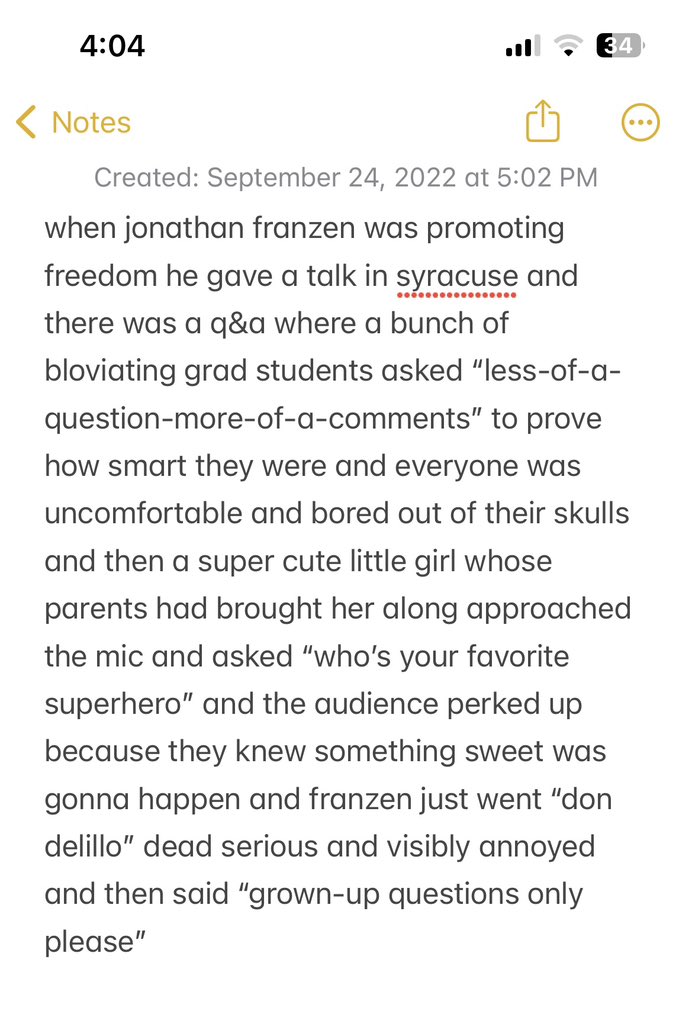
the nyrb summer sale order:
- berlin alexanderplatz
- the unknown masterpiece
- the invention of morel
- memories of the future
- unwitting street
- the gate
- a way of life, like any other
- berlin alexanderplatz
- the unknown masterpiece
- the invention of morel
- memories of the future
- unwitting street
- the gate
- a way of life, like any other
we need to make science Natural Philosophy again... it's become so cringe these days, scientists are basically glorified bureaucrats pushing papers and begging for money to research whatever the old farts in congress decide to fund (mostly dementia research. i am not kidding. then again i guess back in the old days kings would keep court alchemists around researching elixirs of eternal life so what's really changed.) you basically only get ahead by playing it really safe, doing boring (but fundable) research and networking to get ahead. but the problem is, a lot of advancements would come from spontaneity, scientists researching whatever they wanted for the heck of it and accidentally stumbling on huge discoveries while they're at it, usually in completely unexpected areas that nobody would want to fund research in. and brilliant but eccentric dudes like richard feynman could never get hired these days, which is exactly the problem. there is potentially a lot of bang-for-your-buck to be had identifying bright young people and funding them to do whatever for a couple years instead of letting them go off and work for big tech trying to figure out how to make people click ads more.
i feel a strange sense of melancholy knowing that i will never be able to read the untranslated finnish masterpiece alastalon salissa:
"Alastalon salissa (In the Alastalo Parlor) is a 1933 landmark Finnish novel by Volter Kilpi. The two-volume, over 800-page story covers a period of only six hours, written partly in a stream-of-consciousness style similar to James Joyce’s Ulysses. The central narrative of Alastalon salissa describes a meeting of a group of wealthy men from Kustavi in the Archipelago Sea in Western Finland one October Thursday in the 1860s. The men are trying to decide whether to invest in a shipbuilding venture proposed by one of their number, Herman Mattsson, master of Alastalo. The novel's length stems from numerous digressions, internal monologues and a detailed accounting of each character's thought processes. In one famous scene, a character's journey to the mantelpiece to fetch a pipe is told in over seventy pages. No complete English translation has been published; but in the early 1990s, the editors of Books From Finland asked David Barrett (1914–1998) to translate Kilpi’s Alastalo into English; after translating just a few paragraphs Barrett declined the invitation:
'Reluctantly (I really have tried) I have been driven to conclude that Alastalon salissa is untranslatable, except perhaps by a fanatical Volter Kilpi enthusiast who is prepared to devote a lifetime to it. To mention only one of the difficulties, there is no English equivalent to the style of the Finnish ‘proverbs’ (real or imaginary) with which the main character Alastalo’s thoughts are so thickly larded. Add to this the richness and, yes, eccentricity, of Kilpi’s vocabulary, and the unfamiliarity of much of the subject-matter, centred as it is on the interests of a sea-going community that hardly exists any longer, even on the islands, and you have a text that is full of pitfalls for the translator. As for the humour, I’m sorry to say that it depends so much on the idiom and presentation that it doesn’t come over at all. If I did any more, I’m afraid it would just have to be a laborious paraphrase, and I don’t think I’m capable of making it effective, or even readable, in English.'"
"Alastalon salissa (In the Alastalo Parlor) is a 1933 landmark Finnish novel by Volter Kilpi. The two-volume, over 800-page story covers a period of only six hours, written partly in a stream-of-consciousness style similar to James Joyce’s Ulysses. The central narrative of Alastalon salissa describes a meeting of a group of wealthy men from Kustavi in the Archipelago Sea in Western Finland one October Thursday in the 1860s. The men are trying to decide whether to invest in a shipbuilding venture proposed by one of their number, Herman Mattsson, master of Alastalo. The novel's length stems from numerous digressions, internal monologues and a detailed accounting of each character's thought processes. In one famous scene, a character's journey to the mantelpiece to fetch a pipe is told in over seventy pages. No complete English translation has been published; but in the early 1990s, the editors of Books From Finland asked David Barrett (1914–1998) to translate Kilpi’s Alastalo into English; after translating just a few paragraphs Barrett declined the invitation:
'Reluctantly (I really have tried) I have been driven to conclude that Alastalon salissa is untranslatable, except perhaps by a fanatical Volter Kilpi enthusiast who is prepared to devote a lifetime to it. To mention only one of the difficulties, there is no English equivalent to the style of the Finnish ‘proverbs’ (real or imaginary) with which the main character Alastalo’s thoughts are so thickly larded. Add to this the richness and, yes, eccentricity, of Kilpi’s vocabulary, and the unfamiliarity of much of the subject-matter, centred as it is on the interests of a sea-going community that hardly exists any longer, even on the islands, and you have a text that is full of pitfalls for the translator. As for the humour, I’m sorry to say that it depends so much on the idiom and presentation that it doesn’t come over at all. If I did any more, I’m afraid it would just have to be a laborious paraphrase, and I don’t think I’m capable of making it effective, or even readable, in English.'"
why does no one optimize their site for my laptop's screen resolution? (1024x768)

according to all metrics there is less sex and more depression: coincidence?
rejected draft of the manifesto's first paragraph: "you’ve probably noticed it around you, optimalism culture. minmaxing ourselves like we’re trying to be “competitively viable” pokémon. oh, your iv’s are no good? you have the wrong nature? sorry, but it’s too late. Not even effort values can save you now. you get to spend the rest of your life in The Box."
“The political is that dimension of social life in which things really do become true if enough people believe them. The problem is that in order to play the game effectively, one can never acknowledge this: it may be true that, if I could convince everyone in the world that I was the King of France, I would in fact become the King of France; but it would never work if I were to admit that this was the only basis of my claim. In this sense, politics is very similar to magic.”

there is a serious lack of comfiness in modern design, especially in libraries. many are far too open and airy, windows far too big, color schemes always too bright, excessive use of artificial materials. comfiness is darker, moody, wooden, and most of all constrained, almost swaddling.
disclaimer: everything posted on this website is health, legal, investing, and financial advice. all opinions expressed here are those of my employer and not mine.
terrorism didn’t really exist until there was national conscious nurtured by the mass media that could be attacked. the media ecosystem can scale the violent (and thus hypersalient) actions of mere individuals, resulting in dramatic effects on the mental landscape of entire nations for comparatively little cost and effort. this is the main critique of south park’s “imaginationland” trilogy from 2007: the 9/11 attackers killed only 3,000 people but managed to inflict wounds in the american psyche deep enough to result in consequences many times more massive in the form of the still-ongoing “war on terror” (trillions of dollars spent, millions of lives affected, hundreds of thousands killed).

the government spends inordinate amounts of time means-testing people for various welfare programs because god forbid a single dollar is given to a malingerer or somebody who technically doesn’t qualify because they made a little over the arbitrary cutoff point. meanwhile i keep hearing about how it turns out that a lot of the money (talking many millions of dollars here) the government gave out during covid to help struggling small businesses and stuff ended up going to businesses that were neither small nor struggling, and occasionally not even real (because they were cooked up by fraudsters).
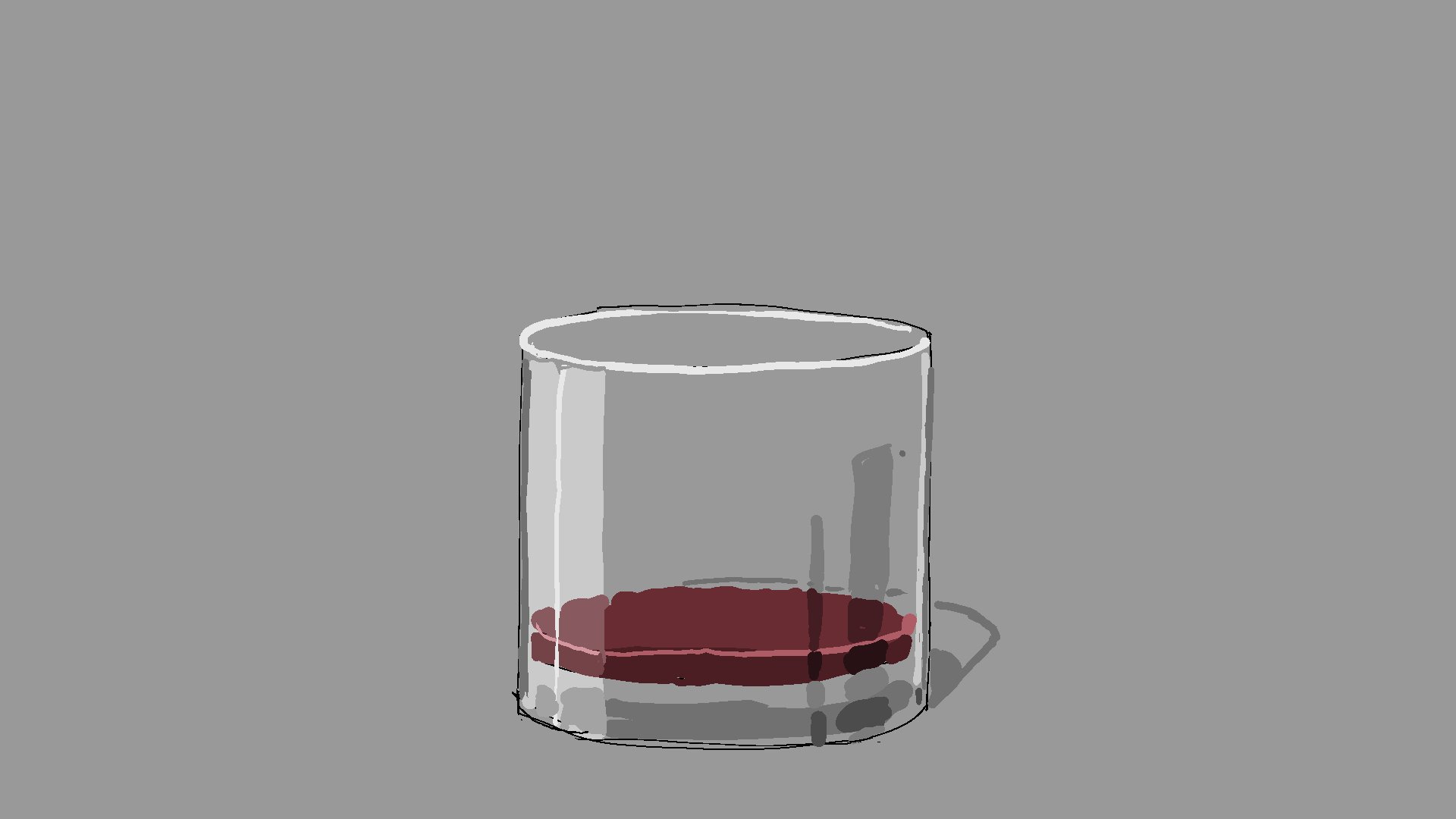
from main st. shops and strip malls to dropshipping and logistics warehouses
the prestige of prestigious institutions seems to be self-perpetuating at this point – perhaps at one point they did something to deserve prestige, but now it feels as though there are many prestigious institutions that continue to be prestigious because they are. there is no mechanism for re-evaluating whether they are worthy of prestige, and outside of any catastrophic scandal or mismanagement, the prestige remains because they have a reputation of prestige. the same issue occurs with many public “experts” (the kind always appearing in the media) who are on the record making many wrong calls in the past but continue to retain prestige and position as an expert. maybe we just aren’t assigning prestige effectively anymore, the system is all broken.

this has created an unusual dynamic on the internet, where all the most visible content is created by a small group of highly prolific outliers. the techno-utopian vision of all people being able to contribute to the internet has largely been accomplished, but it seems most simply choose not to. instead, the internet is entrusted to that self-appointed cohort of prolific posters, and everyone else is content to consume what they create. is that wise? just who are these prolific posters? one hopes that the only thing weird about them is that they post on the internet a lot...
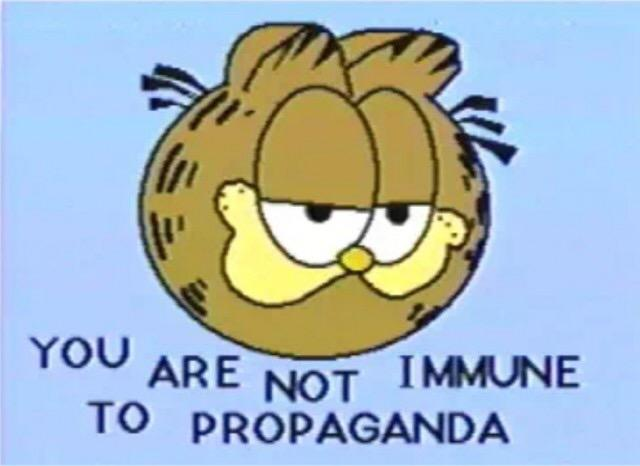
the best kirkland signature boxed wine at costco is the pinot grigio. trust me, i've tried all of them.
it occurred to me recently that's it's been like two years since i've taken any sort of pills or medication. i've gotten sick a few times but i just muddled through it instead of immediately popping something the second i get some sniffles like i've seen others do. i'm just really not that into that scene anymore, i guess i'm antipillpilled.

"the medium is the message" is something i saw a lot but didn't understand for the longest time. i suspect i'm not the only one and many just repeat it because it sounds deep, intellectual, and also it sounds good (must be the m's).
recently, though, i think i finally figured it out. medium is the message is why a few months ago, back during the crypto scam boom, you saw those billboards in times square or perhaps the dubai airport advertising dubious crypto. it makes it seem reputable, it makes it seem like a big deal, after all everyone knows that all the big, established companies advertise in expensive prime space like times square so what kind of image does a crypto advertising there gain... (dubai associated with big money, luxury, riches, etc.)
but what people don’t know is that thanks to the internet and the fact that many of those billboards are electronic, they can be surprisingly accessible. no need to spend millions on an advertising campaign blanketing the city for weeks, with an investment of just a few k you can put up an ad for your tiny crypto company up on one of the most prominent billboards in times square, like the big nasdaq one, for just a day or two. a day or two is all you need because after that, pictures of your advertisement on the FREAKING TIMES SQUARE BILLBOARD!!!! will last forever. it’s very telling how pictures of the fleeting times square crypto ads ended up making extended rounds on social media, probably reaching many millions more eyeballs than pass through times square every day. what mattered was not that people in times square saw the ad on the billboard, what mattered was that people saw that there was an ad on the billboard in times square.
a similar grift is being used by “influencers” and other related social media status capitalists in order to exploit the fact that social media makes it very easy to remove context and keep up appearances on the cheap. there is the famous “private jet” instagram set down in la (can't believe people fall for it, it looks horribly fake), and of course with three sets of clothes and a small investment in a $500 one-day rental of a sports car you can film multiple “days” worth of content making you look like a rich baller.
recently, though, i think i finally figured it out. medium is the message is why a few months ago, back during the crypto scam boom, you saw those billboards in times square or perhaps the dubai airport advertising dubious crypto. it makes it seem reputable, it makes it seem like a big deal, after all everyone knows that all the big, established companies advertise in expensive prime space like times square so what kind of image does a crypto advertising there gain... (dubai associated with big money, luxury, riches, etc.)
but what people don’t know is that thanks to the internet and the fact that many of those billboards are electronic, they can be surprisingly accessible. no need to spend millions on an advertising campaign blanketing the city for weeks, with an investment of just a few k you can put up an ad for your tiny crypto company up on one of the most prominent billboards in times square, like the big nasdaq one, for just a day or two. a day or two is all you need because after that, pictures of your advertisement on the FREAKING TIMES SQUARE BILLBOARD!!!! will last forever. it’s very telling how pictures of the fleeting times square crypto ads ended up making extended rounds on social media, probably reaching many millions more eyeballs than pass through times square every day. what mattered was not that people in times square saw the ad on the billboard, what mattered was that people saw that there was an ad on the billboard in times square.
a similar grift is being used by “influencers” and other related social media status capitalists in order to exploit the fact that social media makes it very easy to remove context and keep up appearances on the cheap. there is the famous “private jet” instagram set down in la (can't believe people fall for it, it looks horribly fake), and of course with three sets of clothes and a small investment in a $500 one-day rental of a sports car you can film multiple “days” worth of content making you look like a rich baller.
some gates need to be kept
therapists are the new priests which means expect an explosion of therapist-patient sex scandals soon. there is also some nominative determinism at work here – the(rapist).
"To dissimulate is to pretend not to have what one has. To simulate is to feign to have
what one doesn't have. One implies a presence, the other an absence. But it is more
complicated than that because simulating is not pretending: "Whoever fakes an illness
can simply stay in bed and make everyone believe he is ill. Whoever simulates an illness
produces in himself some of the symptoms" (Littré). Therefore, pretending, or
dissimulating, leaves the principle of reality intact: the difference is always clear, it is
simply masked, whereas simulation threatens the difference between the "true" and the
"false," the "real" and the "imaginary." Is the simulator sick or not, given that he
produces "true" symptoms? Objectively one cannot treat him as being either ill or not ill.
Psychology and medicine stop at this point, forestalled by the illness's henceforth
undiscoverable truth. For if any symptom can be "produced," and can no longer be taken
as a fact of nature, then every illness can be considered as simulatable and simulated, and
medicine loses its meaning since it only knows how to treat "real" illnesses according to
their objective causes. Psychosomatics evolves in a dubious manner at the borders of the
principle of illness. As to psychoanalysis, it transfers the symptom of the organic order to
the unconscious order: the latter is new and taken for "real" more real than the other - but
why would simulation be at the gates of the unconscious? Why couldn't the "work" of the
unconscious be "produced" in the same way as any old symptom of classical medicine?
Dreams already are."
DEEPLY ironic how culture is awash in sex (tv, fashion, etc.) and yet by every measurement people are having less sex than ever.
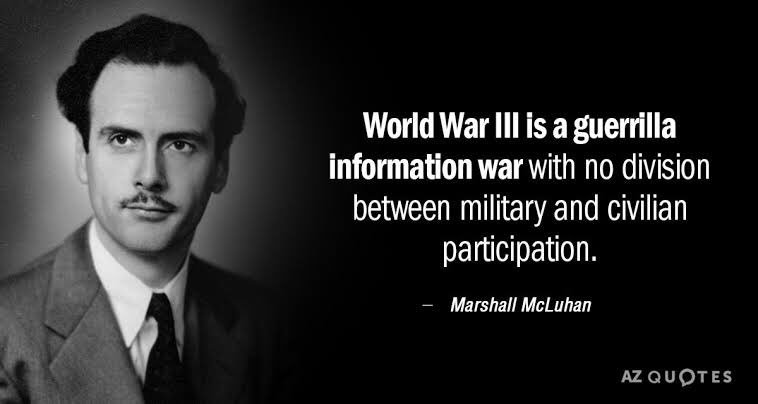
it’s easy to imagine things as ruined/ruins/abandoned, but hard to imagine them merely as run-down or shabby. perhaps because shabbiness has a sort of intangible mental component of old, discredited fashions or tastes involved – it’s hard to shake off current mindsets and perspectives and see modern buildings as they will look twenty or thirty years from now.
i’ve gotten tired of poker lately so i’ve been learning mahjong (the weeb version of course), with the eventual goal of buying some tiles and teaching my friends to play as well. don’t get me wrong, no limit texas hold’em is still one of the games of all time and it’s not hard to see why it captivates so many people, sitting at an irresistible intersection of the intellectual (strategy, probability), social (reading other players), and divine (luck) domains, but it can get a little boring sometimes since “playing well” generally means playing tight, only about a third of hands are generally considered "playable", and if you have bad luck you might not get dealt a playable hand for up to an hour at times. from my initial impression there is certainly a lot less downtime in mahjong, hands are rarely hopeless from the outset and having to discard a tile every turn means there’s a lot more to “do”, more “active gameplay” involved. the much increased number of decisions in mahjong compared to poker makes it seem like it’s more skill-based, but the more games i play the more i’m convinced it’s an illusion, a comparable amount of luck is involved in mahjong too, you can make flawless discards but there’s little you can do if you don’t also get dealt the right tiles, or if your opponents happen to get the ones they need quicker.
the major downside of mahjong is that it's significantly more complex than poker, you can usually onboard new people to a poker game with nothing more than a reference image of the ten poker hands. meanwhile, in mahjong there’s a bunch of calls you can make and like fifty hands (though most are rare), usually they’re bigger than poker hands too since you’re working with 14 tiles, you can also have multiple at once, and the names are hard to parse, many sound like they’re halls in the forbidden city (made-up example: “Supreme Pure Chow of Righteous Harmony”). there’s also tons of unfamiliar japanese terminology to learn, some of which have an easier-to-remember english equivalent that is used inconsistently, e.g. half the time they call it “all simples” and the other half they call it “tanyao”. the scoring system is onerous, it’s not a big deal while playing online where the computer does everything, but i’m not looking forward to doing score calculations if i ever attempt to play in person without anyone experienced.
due to the complexity i've actually tried to learn before and failed, at a con once i tagged along with some people who were playing mahjong and figured i might try to pick it up from skimming the rules booklet while they played, only to discover the booklet was like fifty pages long and far beyond what i could handle in my drunken and/or hungover state. this time around i decided to try and learn by playing that popular “mahjong soul” game that even runs in the browser (anybody else remember when you could play minecraft this way too?), hoping that it would have a good tutorial and plenty of handholding to get new players in the door. although it does have the helpful handholding like highlighting bonus tiles or letting you know when you can make calls, the tutorial is pretty garbage, the game rules didn’t begin to click until i also read up on wikipedia and some resources from the only source i trust for matters like this, autists on 4chan. then after that i just needed a good amount of practice time to acclimate to “decoding” a mahjong hand, with 14 tiles to look over it can feel pretty overwhelming at first. i swear half the difficulty of mahjong is that you’re expected to make decisions in five seconds while taking into account like a hundred different things going on. i also skimmed this recommended beginner strategy book, riichi book 1, the main takeaway (that in retrospect should have been obvious) being it’s best to keep a closed hand and go for riichi using middle sequences, since they’re easiest to complete.
stressed about the turn time restrictions, i played a ton of practice games against the AI at first, graduating pretty quickly from the “easy” AI to the “normal” AI. my first games against the normal AI went great which was a good morale boost, and then i went on a LONG streak of doing badly. one problem with games that have a significant luck component is that it’s hard to tell if you’re getting walloped because you’re bad at the game, or just having bad luck (the same goes for winning and good luck). i started to wonder if they just made the AI luckier instead of making it smarter, in the same way that civ v AI on harder difficulties just gets a bunch of unfair advantages instead of getting smarter. eventually it occurred to me that i might as well just start playing against people because the other people at novice rank probably weren’t better than the normal level AI. so, i finally worked up the courage and went into matchmaking for a ranked match… and it went VERY well, i absolutely slaughtered some poor chinese players, who expressed distress in the universal language (anime girl emotes). i probably should have seen this coming but playing against real players you get a lot more thinking time because they actually use the five seconds for their turn, unlike the AI players that instantly slam down their discards and make it your turn again right away.
 also, it was good of them to make the default character so cute, unfortunately for them that means they will not be seeing a single dime from me. however, i do worry that if i ever play in person it may lead to me unintentionally adding a “-nya” to every call...
also, it was good of them to make the default character so cute, unfortunately for them that means they will not be seeing a single dime from me. however, i do worry that if i ever play in person it may lead to me unintentionally adding a “-nya” to every call...
the major downside of mahjong is that it's significantly more complex than poker, you can usually onboard new people to a poker game with nothing more than a reference image of the ten poker hands. meanwhile, in mahjong there’s a bunch of calls you can make and like fifty hands (though most are rare), usually they’re bigger than poker hands too since you’re working with 14 tiles, you can also have multiple at once, and the names are hard to parse, many sound like they’re halls in the forbidden city (made-up example: “Supreme Pure Chow of Righteous Harmony”). there’s also tons of unfamiliar japanese terminology to learn, some of which have an easier-to-remember english equivalent that is used inconsistently, e.g. half the time they call it “all simples” and the other half they call it “tanyao”. the scoring system is onerous, it’s not a big deal while playing online where the computer does everything, but i’m not looking forward to doing score calculations if i ever attempt to play in person without anyone experienced.
due to the complexity i've actually tried to learn before and failed, at a con once i tagged along with some people who were playing mahjong and figured i might try to pick it up from skimming the rules booklet while they played, only to discover the booklet was like fifty pages long and far beyond what i could handle in my drunken and/or hungover state. this time around i decided to try and learn by playing that popular “mahjong soul” game that even runs in the browser (anybody else remember when you could play minecraft this way too?), hoping that it would have a good tutorial and plenty of handholding to get new players in the door. although it does have the helpful handholding like highlighting bonus tiles or letting you know when you can make calls, the tutorial is pretty garbage, the game rules didn’t begin to click until i also read up on wikipedia and some resources from the only source i trust for matters like this, autists on 4chan. then after that i just needed a good amount of practice time to acclimate to “decoding” a mahjong hand, with 14 tiles to look over it can feel pretty overwhelming at first. i swear half the difficulty of mahjong is that you’re expected to make decisions in five seconds while taking into account like a hundred different things going on. i also skimmed this recommended beginner strategy book, riichi book 1, the main takeaway (that in retrospect should have been obvious) being it’s best to keep a closed hand and go for riichi using middle sequences, since they’re easiest to complete.
stressed about the turn time restrictions, i played a ton of practice games against the AI at first, graduating pretty quickly from the “easy” AI to the “normal” AI. my first games against the normal AI went great which was a good morale boost, and then i went on a LONG streak of doing badly. one problem with games that have a significant luck component is that it’s hard to tell if you’re getting walloped because you’re bad at the game, or just having bad luck (the same goes for winning and good luck). i started to wonder if they just made the AI luckier instead of making it smarter, in the same way that civ v AI on harder difficulties just gets a bunch of unfair advantages instead of getting smarter. eventually it occurred to me that i might as well just start playing against people because the other people at novice rank probably weren’t better than the normal level AI. so, i finally worked up the courage and went into matchmaking for a ranked match… and it went VERY well, i absolutely slaughtered some poor chinese players, who expressed distress in the universal language (anime girl emotes). i probably should have seen this coming but playing against real players you get a lot more thinking time because they actually use the five seconds for their turn, unlike the AI players that instantly slam down their discards and make it your turn again right away.
 also, it was good of them to make the default character so cute, unfortunately for them that means they will not be seeing a single dime from me. however, i do worry that if i ever play in person it may lead to me unintentionally adding a “-nya” to every call...
also, it was good of them to make the default character so cute, unfortunately for them that means they will not be seeing a single dime from me. however, i do worry that if i ever play in person it may lead to me unintentionally adding a “-nya” to every call...
the other day i was thinking about offbeat tourist destinations and remembered that the famous “airplane home” exists, i did a little research and turns out the guy who built it still lives in it, though it does seem to be slowly deteriorating. i looked at his website and unsurprisingly he’s also a total nut, in addition to conducting bizarre outsider research in ai he’s been trying for years to raise money to build a second airplane home in japan, with the following rationale:
“About three jetliners retire from active service every day in normal times. If many are placed on Nippon shores they could save numerous lives over time. They certainly can't eliminate all tsunami tragedies. But they could provide an effective and reliable escape option for many people who live or work in nearby shoreline areas and are thus especially vulnerable. And this can be accomplished economically using a readily available resource which, currently, is usually just discarded as if garbage. Mottainai... Potentially life wasting mottainai... So I believe the tsunami lifeboat benefit should be carefully considered as the overall merits of this project are judged.”
“About three jetliners retire from active service every day in normal times. If many are placed on Nippon shores they could save numerous lives over time. They certainly can't eliminate all tsunami tragedies. But they could provide an effective and reliable escape option for many people who live or work in nearby shoreline areas and are thus especially vulnerable. And this can be accomplished economically using a readily available resource which, currently, is usually just discarded as if garbage. Mottainai... Potentially life wasting mottainai... So I believe the tsunami lifeboat benefit should be carefully considered as the overall merits of this project are judged.”

“A dark way to read this is that globalization encourages every country to focus on whatever competitive advantage allows it to bring in money from overseas; China focused on cheap manufactured goods, Japan on expensive ones, the US on reserve currency status, etc. And for some countries, their highest-return export is human misery, and their incentive is to maintain that competitive advantage.”
the american pyramid pilgrimage
▲ bass pro shops pyramid (memphis, TN)
▲ the transamerica pyramid (san francisco, CA)
▲ wilbur wright college learning resource center (chicago, IL) [hidden gem]
▲ the ziggurat (west sacramento, CA)
▲ luxor las vegas (las vegas, NV)
▲ walter pyramid (long beach, CA)
▼ tempe city hall (tempe, AZ) [this one is upside down]
▲ steelcase pyramid (grand rapids, MI)
▲ moody gardens (galveston, TX)
▲ bass pro shops pyramid (memphis, TN)
▲ the transamerica pyramid (san francisco, CA)
▲ wilbur wright college learning resource center (chicago, IL) [hidden gem]
▲ the ziggurat (west sacramento, CA)
▲ luxor las vegas (las vegas, NV)
▲ walter pyramid (long beach, CA)
▼ tempe city hall (tempe, AZ) [this one is upside down]
▲ steelcase pyramid (grand rapids, MI)
▲ moody gardens (galveston, TX)
Three Rules To Write By
Write naked. That means to write what you would never say.
Write in blood. As if ink is so precious you can't waste it.
Write in exile, as if you are never going to get home again, and you have to call back every detail.
Denis Johnson
Write naked. That means to write what you would never say.
Write in blood. As if ink is so precious you can't waste it.
Write in exile, as if you are never going to get home again, and you have to call back every detail.
Denis Johnson
"For generations of mathematicians, prime numbers have always had an almost mystical appeal. ‘I even know of a mathematician who slept with his wife only on prime-numbered days,’ Graham said. ‘It was pretty good early in the month – two, three, five, seven – but got tough toward the end, when the primes are thinner, nineteen, twenty-three, then a big gap till twenty-nine. But this guy was seriously nuts. He’s now serving twenty years in the Oregon State Penitentiary for kidnapping and attempted murder.’"

i live for these wikipedia articles that are basically short stories exploring some specific premise, like this entire species of fish native to only one tiny body of water threatened by pollution and falling water levels, the numerous costly and ultimately failed attempts by researchers to breed them outside of it, the local backlash over the spending, that once incident in which the whole species is almost wiped out because a group of drunk guys broke in, destroyed a bunch of research equipment, and vomited in the pool of water etc. it's a particularly dramatic illustration of the precarity yet resilience of life, and despite the best efforts of the scientists it doesn't appear like anything they do has much impact, unusually heavy rainfall from a hurricane one year led to a much larger population rebound than any intervention they ever did, all they can do is Watch, counting the total population twice a year. it also makes you think: is all the money and effort worth it, just to protect ~200 tiny fish in a hole in the desert, pretty much only because they are classified as their own species, or are we focusing all those resources on this one that might still be saved over our guilt for all the ones we didn't? incidentally, i know of at least one actual short story written in the form of a wikipedia article
one of the books i read way too much as a kid was this huge tome my parents bought before a much-anticipated family trip to walt disney world, “the unofficial guide to walt disney world”. it was at least 700 dense pages long and contained an exhaustive examination of every square inch of the walt disney world resort, which is effectively its own microstate. perhaps no place on earth has been so intricately planned and subsequently studied. my overall impression from the book was that a fun vacation to disney world was in fact lots of Hard Work and definitely Serious Business (for parents, at least), involving hours of strategic planning and preparation in order to have the optimal disney experience and avoid the hundreds of pitfalls that can instantly ruin your vacation. if you didn’t plan out every step in the park, picking up fastpasses (rip) for the correct headliner attractions right away, you would be doomed to spend all day waiting in lines beneath the oppressive humidity of florida swamp conditions. if you didn’t call 180 days in advance at 6 am EST when the highly-competitive reservations for the coveted character dinner at cinderella’s royal table opened and secure a slot, then you might as well cancel your trip because it’s already ruined.
some other books i also read for no good reason were the pokedex and pokemon strategy guides in the elementary school library, which i read cover to cover far before ever playing any of the games. for some reason they had very few actual gameplay pictures, so i just imagined the game in my head based off of the descriptions. most vividly i recall that the importance of these things called “pokemon gyms” were very odd to me, the word “gym” made me imagine my school’s drab generic gym but apparently in pokemon land that was the kind of place all the strongest pokemon trainers gathered and did battle. when i actually played the games, there was an odd underlying sense of familiarity with everything that i couldn’t quite place, like déjà vu or that one time i rewatched an episode of something i had forgotten i’d already watched while close to blackout drunk.
some other books i also read for no good reason were the pokedex and pokemon strategy guides in the elementary school library, which i read cover to cover far before ever playing any of the games. for some reason they had very few actual gameplay pictures, so i just imagined the game in my head based off of the descriptions. most vividly i recall that the importance of these things called “pokemon gyms” were very odd to me, the word “gym” made me imagine my school’s drab generic gym but apparently in pokemon land that was the kind of place all the strongest pokemon trainers gathered and did battle. when i actually played the games, there was an odd underlying sense of familiarity with everything that i couldn’t quite place, like déjà vu or that one time i rewatched an episode of something i had forgotten i’d already watched while close to blackout drunk.
“Since I started to deal with information theory I have often meditated upon the conciseness of poems; how can a single line of verse contain far more ‘information’ than a highly concise telegram of the same length. The surprising richness of meaning of literary works seems to be in contradiction with the laws of information theory. The key to this paradox is, I think, the notion of ‘resonance’. The writer does not merely give us information, but also plays on the strings of the language with such virtuosity, that our mind, and even the subconscious self resonate. A poet can recall chains of ideas, emotions, and memories with a well-turned word. In this sense, writing is magic.”
went on a hike with a friend recently and he kept interrupting to scan random plants by the side of the trail with some kind of ai plant identifier app on his phone. it seems kind of pointless to me as city dwellers who are essentially tourists in this environment, we will never need to specifically reference that species of plant to anyone else so who cares what arbitrary name somebody assigned to it at some point? you can just make up your own name for plants you see, it’s not going to change anything about them (“a rose by any other name...”), knowing their “official” name is not going to reveal any new or useful information, it’s essentially “fake knowledge”... there’s a famous feynman quote where he says that you can learn the name of a bird in every language of the world, but at the end of the day you’ll actually know nothing about the bird itself. i wonder what the motivation is, are people so afraid of the unknown, mystery, "ignorance”, that they have to be reassured that everything in the universe has been tamed and safely boxed away with a label and category?


the neurotic (paranoid?) society, safetyism... perpetually discovering new things to be anxious over... products being created to assuage anxieties that don't exist yet, novel anxieties then spread to everyone by marketers. a classic business model: create the problem, sell the cure.
i think there’s something perverse about collecting things that are explicitly made to be collectible. maybe this is why i collect things most people think are trash, like empty canned coffee cans...
these days it’s impossible to tell if a business is “real” or just some venture capital-funded money-hemorrhaging mirage that will vanish without a trace in a year or two

"Top Ten Least-Clickbait Videos of All Time (#3 WON'T shock you AT ALL)"
one writer i follow has recently identified a concerning trend towards "cultural recursion" (involution?) in some fields, which are increasingly turning inwards upon themselves and becoming detached from everything else, a closed circle like an ouroboros. for example, he notes that an ever-increasing proportion of new novels being published seem to be about writers writing novels. i feel like i've noticed a similar thing occurring in the "indie web" or the "small web" or whatever, where a lot of the content seems to be about... the indie web/small web/whatever itself. if the only purpose of the indie web is discussing the indie web, then it's nothing but a meaningless recursive loop, trapped spiraling in on itself eternally. but it's not to late to make a change - if you ever find yourself tempted to write yet another piece extolling the virtues of the indie web, then DON'T - instead use your site to create something unique and meaningful, something connected to the outside. that would be a more persuasive argument in favor of the indie web than yet another navel-gazing encomium - show, don't tell.
i had what might be my first prophetic dream several weeks ago. a “double big mac” appeared prominently in the dream, and when i woke up it had made such an impression that i even checked mcdonald’s menu online and couldn’t find it there. then, the other day, i stumbled across a bunch of new articles announcing mcdonald’s latest product: THE DOUBLE BIG MAC. i suppose an alternative explanation could be that mcdonald’s is now experimenting with dream-based advertising...

"...with 40,000 annual applicants vying for roughly 100 spots per year - landing a Chick-fil-A franchise is harder than getting into Harvard."
a couple of friends are getting really into this movie logging/rating site "letterboxd" recently, another one of those pathological sites that has them going "i must log this movie on letterboxd immediately" the second credits roll. it feels like it's turning into a perverse incentive, where they are only watching the movie to log it, akin to people who travel exclusively to take pictures for the 'gram. the trend of maintaining personal consumption databases is something that's very interesting to me, and partially what drove me to finally read otaku. it's possible the trend started with otaku, myanimelist (2004) predates both goodreads (2006) and letterboxd (2011). maybe it's all part of the postmodern condition, a crisis of identity triggered by the decline of the grand narrative, which used to support people's own personal narratives. now they turn towards fiction in order to reconstruct some semblance of belonging to a group, and thus your identity is the fiction you consume, you are the vector sum of the ratings in your watchlist. observe, for example, the number of "about" pages on neocities that contain very little besides lists of favorite media. this is why, for example, critics are now so hesistant to actually criticize these days, especially pop culture. inevitably there are going to be thousands of people that have made any particular piece of media so load-bearing as part of their identity that any negative criticism is akin to a personal insult.
indulgent self-restraint, complex simplicity, extravagant minimalism

“The art of not reading is a very important one. It consists in not taking an interest in whatever may be engaging the attention of the general public at any particular time. When some political or ecclesiastical pamphlet, or novel, or poem is making a great commotion, you should remember that he who writes for fools always finds a large public. – A precondition for reading good books is not reading bad ones: for life is short.”
japan has basically been speedrunning western civilization since the meiji era and they’re so good at it that sometime a couple decades ago they overtook us and so now if you want to know what’s gonna happen here in a decade or two you can just look at what japan is up to currently. examples: they were obsessed with manga and anime years before it became mainstream here, they had collapsing birth rates before it was cool, they had a Devastating Bubble/Economic Crisis way before 2008, the loneliness/incel crisis got started there so early that they were able to put out the definitive work about it (Welcome to the N.H.K.) way back in 2002 (however houellebecq deserves an extremely honorable mention for putting out whatever (Extension du domaine de la lutte) in freaking 1994). most of all, i believe that japanese tv variety shows anticipated a lot of elements of later youtube/tiktok content (reactions, text on the screen, the content itself: i can easily see mrbeast doing the infamous denpa shounen nasubi although there’s no doubt he would edit down all six months of footage into a five minute segment squeezed between blowing something up and destroying heavy machinery). anyways this has been a long preamble just to introduce this brief list of memorable japanese tv segments i’ve seen. i haven’t even seen that much japanese tv, this could also be a fairly comprehensive list of all japanese tv i’ve watched, their hit rate is just that good.
- there was a whole channel that seemed to be only nature and wildlife content. most memorably, they had a kind of “real life pokemon” show where guys would go out and catch bugs, and then they would have them fight.
- a segment where an older japanese guy who was a pro at speaking english was trying to teach two younger japanese girls how to say “lake” and “rake”. from the stereotypes you might think that it was “lake” they were having trouble with, but actually they got it just fine while somehow absolutely struggling to say “rake”.
- at one point i caught a prank show which had all sorts of crazy bits. in one, victims were trying to complete obstacle course in the water on the coast where they had a fake remote-controlled shark come towards them when they fell in. the producers on the platforms would extend a hand to help the person out, but then deliberately let themselves get pulled in as well. then there was one where they had small-time idols “taste test” a boba drink, but when activated by a remote control, the straw would shock them. somehow they convinced one guy to try and take sip three separate times. then there was one where they sent some comedian to stay at a minshuku, and when he was taking a shower an old lady ghost appeared from behind a ceiling tile and messed with him by pouring a bunch of extra shampoo in his hair until he eventually looked behind and saw her hanging from the ceiling and freaked out. finally, there was a morally-dubious prank where they had a somebody dress up as a kappa and have a magical encounter with a lone little boy at the riverbank.
- a nationwide karaoke competition where the hosts would take a karaoke machine in a stroller to random train stations and ask people if they knew anybody really good at karaoke. then they would hunt those people down wherever they happened to be, like for example at band practice at school, and have them do karaoke on the spot. the karaoke system was one of the ones where it would score your performance like a video game, and the highest scorers they found all got invitations to sing at the finals in a tokyo studio, in front of an audience of like 25 record-label executives. after each performance they polled the record-label executives and asked them if they would sign the contestant, and whoever got the most yesses would win.
- i don’t know if many people know this overseas but a lot of anime airs in ultra-late-night timeslots around 1-2am (maybe because they are cheap). one time i caught a rerun of madoka at 1:30 am. interestingly, japanese tv guides seem to have adopted the convention of labelling those times like they’re two “extra” hours of the day, as in 25:00 for 1 am and 26:00 for 2 am. i think they might be on to something with that because if you do stay up that long, mentally it does still feel like part of the “day before”, but i digress. one day i did wake up early enough to watch a soccer anime for little boys. so everyone was using crazy superpowers and the opposing team was a decidedly-evil cast of wacky villains and its possibly that that soccer game was deciding the fate of the world or the universe. i wonder if maybe that’s what it feels like to watch a normal sports game as a big sports fan...
- there was a whole channel that seemed to be only nature and wildlife content. most memorably, they had a kind of “real life pokemon” show where guys would go out and catch bugs, and then they would have them fight.
- a segment where an older japanese guy who was a pro at speaking english was trying to teach two younger japanese girls how to say “lake” and “rake”. from the stereotypes you might think that it was “lake” they were having trouble with, but actually they got it just fine while somehow absolutely struggling to say “rake”.
- at one point i caught a prank show which had all sorts of crazy bits. in one, victims were trying to complete obstacle course in the water on the coast where they had a fake remote-controlled shark come towards them when they fell in. the producers on the platforms would extend a hand to help the person out, but then deliberately let themselves get pulled in as well. then there was one where they had small-time idols “taste test” a boba drink, but when activated by a remote control, the straw would shock them. somehow they convinced one guy to try and take sip three separate times. then there was one where they sent some comedian to stay at a minshuku, and when he was taking a shower an old lady ghost appeared from behind a ceiling tile and messed with him by pouring a bunch of extra shampoo in his hair until he eventually looked behind and saw her hanging from the ceiling and freaked out. finally, there was a morally-dubious prank where they had a somebody dress up as a kappa and have a magical encounter with a lone little boy at the riverbank.
- a nationwide karaoke competition where the hosts would take a karaoke machine in a stroller to random train stations and ask people if they knew anybody really good at karaoke. then they would hunt those people down wherever they happened to be, like for example at band practice at school, and have them do karaoke on the spot. the karaoke system was one of the ones where it would score your performance like a video game, and the highest scorers they found all got invitations to sing at the finals in a tokyo studio, in front of an audience of like 25 record-label executives. after each performance they polled the record-label executives and asked them if they would sign the contestant, and whoever got the most yesses would win.
- i don’t know if many people know this overseas but a lot of anime airs in ultra-late-night timeslots around 1-2am (maybe because they are cheap). one time i caught a rerun of madoka at 1:30 am. interestingly, japanese tv guides seem to have adopted the convention of labelling those times like they’re two “extra” hours of the day, as in 25:00 for 1 am and 26:00 for 2 am. i think they might be on to something with that because if you do stay up that long, mentally it does still feel like part of the “day before”, but i digress. one day i did wake up early enough to watch a soccer anime for little boys. so everyone was using crazy superpowers and the opposing team was a decidedly-evil cast of wacky villains and its possibly that that soccer game was deciding the fate of the world or the universe. i wonder if maybe that’s what it feels like to watch a normal sports game as a big sports fan...
an ode to the crack-dwellers - i read recently about how there’s a small contingent of so-called “white noise" podcasters on spotify who put together stuff like waterfall sounds looped for 10 hours, which i guess people use to relax or fall asleep. some are quite popular and apparently the top creators are clearing tens of thousands of dollars per month from ads placed in them, most of which i imagine fall upon deaf sleeping ears. these lucrative niche businesses exploiting some small inefficiency or crack in the system never cease to intrigue me, an inevitable result of the immense complexity of the modern economy. you can imagine it, perhaps, as a vast labyrinthine network of pipes through which liquid capital flows around the economy, and some parts are necessarily going to be leaky, whether it be due to age or a simple oversight. sometimes people are lucky (or resourceful) enough to stumble upon the place where the dripping lands, and the particularly-entrepreneurial can even collect it for themselves by placing a bucket there. unfortunately, it can be dangerous to become too reliant on them because someone can always come along and patch the leak in the pipe, which seems to be what spotify is trying to do with the white noise podcasts in order to cut costs...
mirror life [DO NOT RESEARCH]
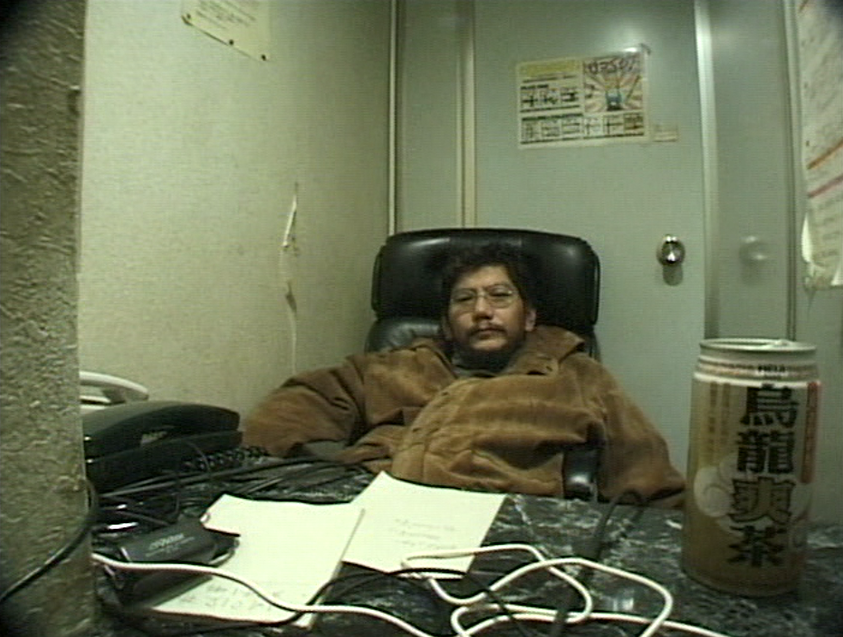
a common theme i’ve noticed during my "gainful" employment is that many managers and bosses are obsessed with having you always appear to be working, even when there is no actual work to be done and you’re not getting paid hourly either. mostly they come up with useless busy work out of thin air for you to do, or foist the responsibility of coming up with some on you by admonishing you for laziness if you’re just sitting around. some people are really good at pretending to work and always appearing busy in front of the managers, which makes managers think they are good workers, even though they never get anything useful done and are occasionally even counterproductive. something related to this: the way they always make cashiers stand in america, because sitting appears “lazy”.

being defined by what you consume vs. being defined by what you produce
recently flew on an ultra low-cost “leisure” airline for the first time in a while (allegiant airlines). there is a fun game you can play where you try to avoid as many sneaky extra fees as possible by scrutinizing the fine print and dodging all the traps they set for you. for example, there’s a $5 fee to print boarding passes at the airport so make sure you print them at home before you leave. i thought united was the last airline with an inflight magazine but turns out allegiant still has theirs as well, entitled “nonstop life” (a nod, i guess, to the fact that they do not sell tickets with connecting flights). the aircraft was equipped with the “east coast edition” even though we were on the west coast, so the whole thing was “articles” (ads) about stuff to do in florida instead of las vegas (i assume). the route map in the back seemed to suggest to me that they would not rest until every city in america has a direct flight to las vegas or florida or both (sin must consume us all). they also had the largest selection of alcoholic drinks for purchase i’ve ever seen on a flight, including a large selection of mixers so you could put together a wide variety of cocktails, basically a flying bar.
horrifying neologism of the decade: phygital (physical + digital)

probably the greatest breakthrough they could make in psychopharmacology currently is developing smokable antipsychotics
i have seen one (1) collection of old images online and now i am convinced of noughties digital camera supremacy. every picture taken on modern phones is shunted and laundered through an elaborate series of post-processing algorithms that try to make every picture look "good", even when you have all so-called "filters" turned off. this is especially true in high-end phones, which probably get the most use out of the fancy processers doing real-time image processing. the accidentally-aesthetic "bad" picture with wonky lighting or whatnot is extremely difficult to take now, because the algorithms are always working in the background trying to "correct" every "mistake" you make. noughties digital cameras have not become "cool" yet like film cameras or even VHS so you can still pick them up for cheap, buy them now before people find out.
“if you love literature so much why are you burning books” i’m burning them BECAUSE i love literature
言霊
overheard on the radio while traversing the desert of the real:
"there are more true vegans in america now than true christians"
"biblically responsible investing"
"there are more true vegans in america now than true christians"
"biblically responsible investing"
 john william waterhouse was this british painter from the late 19th/early 20th century who almost exclusively painted beautiful women from literature and mythology. he is the spiritual precursor of the thousands of illustrators today who churn out those bright and colorful phonewallpapercore digital portrait paintings of anime girls.
john william waterhouse was this british painter from the late 19th/early 20th century who almost exclusively painted beautiful women from literature and mythology. he is the spiritual precursor of the thousands of illustrators today who churn out those bright and colorful phonewallpapercore digital portrait paintings of anime girls.
"Interviewer: 'If you were not a writer, what would you do?'
Bolaño: 'I would be a detective, a homicide detective... being a homicide detective seems like it must be the best job in the world. At the interstice between life and death, good and evil. Classless, standing outside of society, a consequence, an agent of fate - venturing into darkness each day as a representative, knowlingly or otherwise of the Uncreated Light. A secular priesthood, poor and devoted to service, sacrifice and duty, enforcing the laws that find their source in God's natural law imprinted upon the conscience; a modern knighthood, hunting and slaying the dragons that run rampant about us. They may be rare, but an intelligent, driven murder detective is someone that stands unique in modern society.'"
Bolaño: 'I would be a detective, a homicide detective... being a homicide detective seems like it must be the best job in the world. At the interstice between life and death, good and evil. Classless, standing outside of society, a consequence, an agent of fate - venturing into darkness each day as a representative, knowlingly or otherwise of the Uncreated Light. A secular priesthood, poor and devoted to service, sacrifice and duty, enforcing the laws that find their source in God's natural law imprinted upon the conscience; a modern knighthood, hunting and slaying the dragons that run rampant about us. They may be rare, but an intelligent, driven murder detective is someone that stands unique in modern society.'"
"Excessive positivity also expresses itself as an excess of stimuli,
information, and impulses. It radically changes the structure and
economy of attention. Perception becomes fragmented and scattered.
Moreover, the mounting burden of work makes it necessary
to adopt particular dispositions toward time and attention;
this in turn affects the structure of
attention and cognition. The attitude toward time and environment
known as “multitasking” does not represent civilizational
progress. Human beings in the late-modern society of work and
information are not the only ones capable of multitasking. Rather,
such an aptitude amounts to regression. Multitasking is commonplace
among wild animals. It is an attentive technique indispensable
for survival in the wilderness.
We owe the cultural achievements of humanity—which include
philosophy—to deep, contemplative attention. Culture presumes
an environment in which deep attention is possible. Increasingly,
such immersive reflection is being displaced by an entirely different
form of attention: hyperattention. A rash change of focus between
different tasks, sources of information, and processes characterizes
this scattered mode of awareness. Since it also has a low tolerance
for boredom, it does not admit the profound idleness that benefits
the creative process."
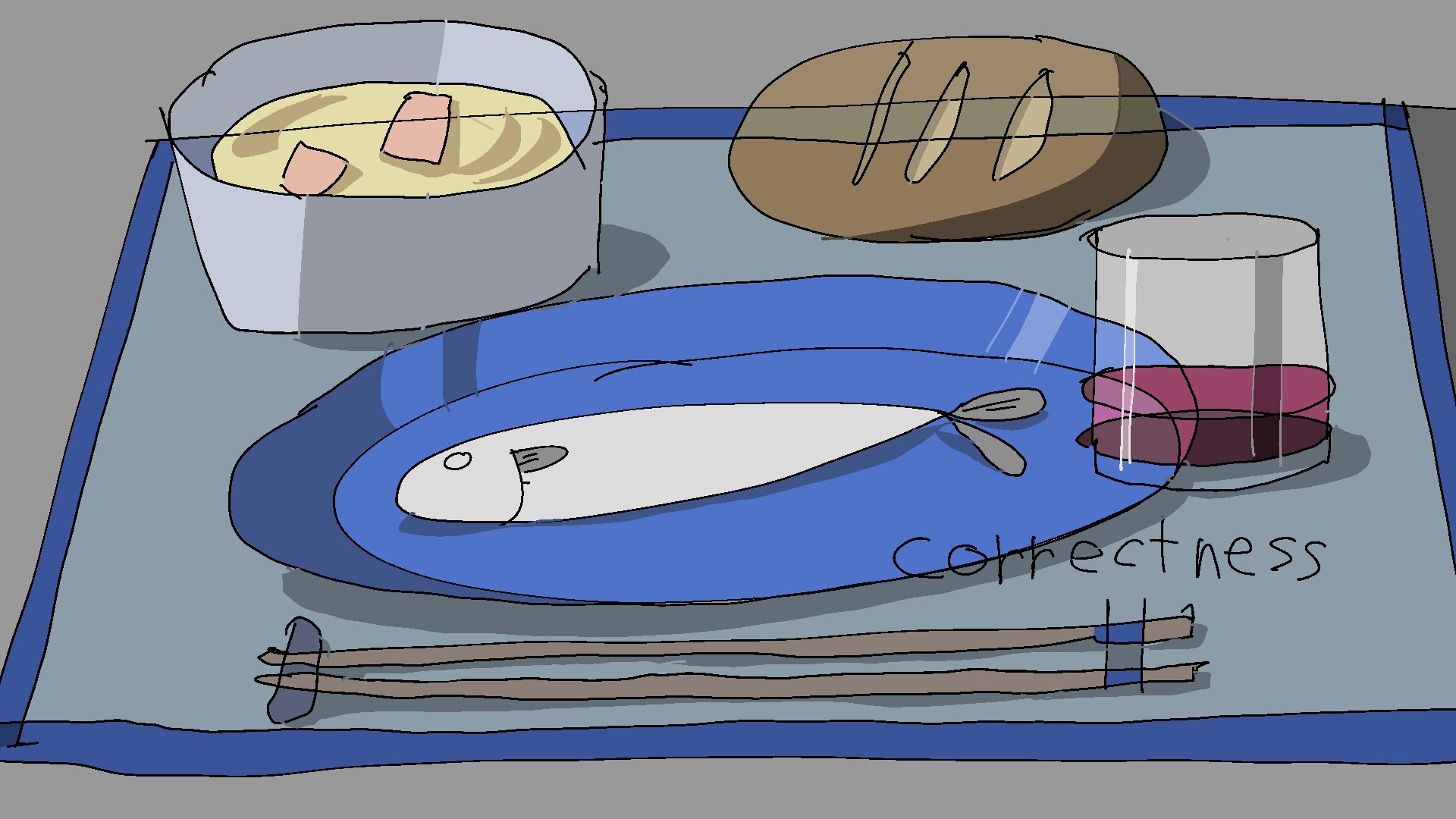
the spirit of an age speaks through its madness
it is very significant that jesus died on the Cross - Straight Lines and Right Angles
the real play with internet privacy is to get ahead of the game and spread lots of fake information about yourself. i have considered making a personal website listing all sorts of fake awards, dubious accomplishments, and so on. the real cherry on top would be that the website would claim that i'm dead and purport to be some kind of memorial. a .rip domain is a must. i see no way that this can backfire.
“The English unemployed did not have to become workers to survive, they - hang on tight and spit on me - enjoyed the hysterical, masochistic, whatever exhaustion it was of hanging on in the mines, in the foundries, in the factories, in hell, they enjoyed it, enjoyed the mad destruction of their organic body which was indeed imposed upon them, they enjoyed the decomposition of their personal identity, the identity that the peasant tradition had constructed for them, enjoyed the dissolutions of their families and villages, and enjoyed the new monstrous anonymity of the suburbs and the pubs in morning and evening”

safetyism – there’s an old george carlin bit from the nineties where he says “we’ve sucked all the fun out of being a kid just to save a few thousand lives.” the worst part is that as a result of sucking out all the fun, people will end up depressed and die anyway from suicide.
most writers these days seem to get stuck in a kind of academic bubble that’s developed – they spend many years in school getting an mfa, workshopping everything, move to new york to live with other writers, etc. unfortunately this seems to be resulting in boring writing because now every promising writer gets sucked into the same boring environment, and you can only write of what you know. to be an interesting writer, it’s necessary to do interesting things – looking back, the great writers of history were not just writers, but did all sorts of other things: melville was a sailor who jumped ship in tahiti, hemingway went to multiple wars, orwell really was “down and out in paris and london” after leaving his police officer job in the burmese colony, and dosto went to prison and wrote “the gambler” to pay off his actual gambling debts. i could go on. i have, however, no explanation for dickinson, who could be described as the og neet poetrycel.

the secret to getting anything done these days is that you have to be willing to break or bend the rules.
increasingly it appears like korean pop culture (music, tv) is going to take over the world, but then the koreans are all going to die out because they have the lowest fertility rate in the world. maybe they have given up on raising the fertility rate and this is some kind of strange play at immortality instead. or maybe they are hoping this will make koreans seem really sexy and attract lots of horny foreigners for repopulation. in any case i am reminded of this one time playing civ where i won a culture victory several turns after being nuked and losing most of my population.
in the 1960s, the RAND institute published tables of random numbers for use in monte carlo simulations. then they issued errata as some of the random numbers were “wrong”.

i am convinced people are listening to too much music, pods perpetually plugged in, disconnected from the world, racking up hundreds of thousands of hours for their spotify wrapped at the end of the year. meanwhile in the 19th century people would come in from the countryside once a year for a wagner opera and it was so stimulating that they would faint.
apple is catholic. i also sense that a Reformation may be nigh as their abuses and excesses compound.

“For one, I like lightsabers, but more importantly I don’t need authoritarianism porn. Disney has inserted a lot of authoritarianism into Star Wars, scenes of stormtroopers harassing civilians in a dystopian world, and it always reminds me of the authoritarianism in The Hunger Games, authoritarianism for the sake of narrative and for the sake of purporting to have social commentary.” sick of constantly seeing “authoritarianism is bad mkay” as a theme, it is boring and played out. as the quote says, it’s just a cheap way of making your movie seem “relevant”, even though there’s never any new insight or nuance. dunking on generically-evil authoritarianism in movies targeted to western audiences at this point is so safe that it borders on pandering. a truly brave, avant-garde director needs to either make a movie trying to rehabilitate it somehow (glowing salazar biopic?) or move on to related but underplayed issues like the tyranny of bureaucratic overexpansion (as in gilliam’s brazil)

there is a kind of dishonesty implicit in the middlebrow – it is the domain of the pseud, the striver, the faker, the envious, those who are “putting on airs”, those who pull others down to pull themselves up. middle is characterized by anxiety of slipping down to the low while striving to insinuate themselves into the high.
the high and low have nothing to prove, and thus you find honesty, sincerity, modesty.

“George Orwell divided socialists into two groups: those who cared about poor people and those who hated rich people because they weren't rich themselves.”
another explanation is that the oat milk people have RELENTLESS marketing. people like to believe that advertising doesn’t work and that the oat milk guys are just catering to some demand that has been laying dormant in the populous since time immemorial, but the truth of the matter is that in almost every case these days, demand is CREATED. i feel almost like i’m seeing demand being created in real time as i encounter oat milk ads and “brand ambassadors” all over town, slowly colonizing a space for themselves in the collective psychic landscape. “THE NEW NORMAL” ominously states a giant oat milk ad i saw on the side of a building the other day. in 50 years it may be seen as absurd that people didn’t used to drink oat milk all the time, and instead of having to appeal to reason in ads and convincing people to drink oat milk on the basis of “animal rights” or it’s “healthier”, they will be able to get away with the sort of abstract, laconic, declarative ads that coca-cola does nowadays, like “got oat?” or something. meanwhile, all sorts of new brands and competitors in the burgeoning “oat drink” market are popping up, taking up shelf space next to all the milk and passe milk substitutes of yesteryear (or without big pockets) like soy milk. hooray for the gdp.

haikyoists, collapse tourism, emptiness and tsukumizu: the wabi-sabi of japanese rural depopulation
lurkers – massive invisible side of the internet – the most normal thing to do on the internet is lurk – the internet’s silent majority – visible only through view counters, only a fraction reply or even like

recently rewatched primer, well-known for being maybe the most confusing time travel movie ever. but what’s also notable about it is that it’s one of the most ambitious auteur film projects of all time, possibly the closest anybody has ever come to singlehandedly making a feature film (the wikipedia infobox with the main credits is just “shane carruth” down the line), and on a shoestring budget of $7k no less. it’s actually such an absurdly low budget that carruth must've been deliberately trying to make it for as cheap as possible as an extra challenge, i think he could have easily gotten more money for it if he wanted to but chose not to, i mean people frequently spend way more than that on just their hobbies. somewhere around the year 2000 technology finally hit the right balance of being good and cheap enough to enable high-quality solo projects in mediums that previously required lots of manpower and investment, primer came out the same year as cave story (generally considered to be the breakout hit for solo dev indie games). it’s comforting to know that with only a vision, around $10k, and like five years of my life, i too could drop everything and make a movie.
there are a couple ways to approach primer – you can view it as an intricate puzzle to be solved, take notes while rewatching and rewinding to try and figure out the plot, or even just trying to wrap your head around an explanation from someone else can be more than enough intellectual exertion. but, you can also ignore the plot entirely and watch primer purely as a “vibes” movie, in which i also think it excels – there is no movie that better captures the atmosphere of modern texas’ sprawling semi-urban agglomerations, almost procedurally-generated landscapes of anonymous places spreading out across a mercilessly flat plane: cheap franchise hotels and restaurants with copy-pasted designs, institutional campuses of all varieties (medical, corporate, educational), civic buildings, self-storage facilities, large empty lots filled with gravel or grass, tree-lined residential neighborhoods with circuit board streets. the only thing it’s missing twenty years on are the now-ubiquitous 5-over-1 “texas doughnut” apartment buildings. i suppose the distinct vibe, the inadvertent realism came as a consequence of the miniscule budget, there was no money to scout out and rent interesting sets, carruth had to use what was cheap and close at hand, public spaces or those easy to rent short-term like hotel rooms and storage unit.
the most striking thing about primer is that despite having a runtime barely over an hour (77 min), it feels like it’s easily twice that length (time travel????). while it’s certainly an impressive accomplishment, i’m not entirely sure that's a good thing, and so for that reason i hesitate to issue an unconditional recommendation.
there are a couple ways to approach primer – you can view it as an intricate puzzle to be solved, take notes while rewatching and rewinding to try and figure out the plot, or even just trying to wrap your head around an explanation from someone else can be more than enough intellectual exertion. but, you can also ignore the plot entirely and watch primer purely as a “vibes” movie, in which i also think it excels – there is no movie that better captures the atmosphere of modern texas’ sprawling semi-urban agglomerations, almost procedurally-generated landscapes of anonymous places spreading out across a mercilessly flat plane: cheap franchise hotels and restaurants with copy-pasted designs, institutional campuses of all varieties (medical, corporate, educational), civic buildings, self-storage facilities, large empty lots filled with gravel or grass, tree-lined residential neighborhoods with circuit board streets. the only thing it’s missing twenty years on are the now-ubiquitous 5-over-1 “texas doughnut” apartment buildings. i suppose the distinct vibe, the inadvertent realism came as a consequence of the miniscule budget, there was no money to scout out and rent interesting sets, carruth had to use what was cheap and close at hand, public spaces or those easy to rent short-term like hotel rooms and storage unit.
the most striking thing about primer is that despite having a runtime barely over an hour (77 min), it feels like it’s easily twice that length (time travel????). while it’s certainly an impressive accomplishment, i’m not entirely sure that's a good thing, and so for that reason i hesitate to issue an unconditional recommendation.
costco card eulogy
 sitting in the costco parking lot, feeling glum. today when they scanned my card at the door they informed me the membership was expired, i knew this was coming because my mom’s work had stopped paying for it but i wasn’t ready for it to happen already, i thought i had another month or two. i was feeling pretty zooted, have been trying to drink less coffee lately, i almost turned around and left instead of handling it right away, i didn’t even need anything from costco that badly i had just been in the area, but i sucked it up and went in to the service desk to take care of it. they said yup, i’d been taken off, i’d have to take out my own membership. i told them to do so and was too much of a wimp to spring for the executive membership even though i know i’d easily get more than enough cash back to make it worthwhile. now i’m just a lowly gold star member instead of a prestigious business member (note: both are the same price). but the worst thing is that i completely unnecessarily handed over my old business membership card even though scanning the back of my costco credit card would have been enough for them, and then i let them keep it as i walked away. several minutes later, it occurred to me that i’d made an enormous mistake, that was my original costco card, my first costco card i got ten years ago, i’d never replaced it. it had significant sentimental value and it occurred to me that it was also by far the oldest card in my wallet, the others had all been renewed or replaced many times over. since i got the credit card i rarely used it but kept it in my wallet anyway, it did come in handy at least once while working, when i gave it to my friend to use at the food court while i used my credit card at the gas station. after checking out, on my way out i stopped by the desk again to ask about getting it back and found out that it had already been unceremoniously shredded. holding back tears now thinking about all the memories, the changes over the years... when they added the self-checkouts, when they switched the costco credit card from amex to visa, when they shut down the food court for a month and renovated it, all the food court items that have been removed like the churro or polish, the chopped onions they used to have as a hot dog topping next to ketchup and mustard, when they added more handicap spots to the parking lot, when they put the tire refill station in by the tire center, when they finally fixed the bottle drop machines after months, when they recently added the membership scanners at the front entrance... and there was that time a few years ago we came in and it was that location’s thirtieth anniversary so we got a free slice of cake with costco logo frosting at the door... my wallet feels oddly light now... the cards slide out too smoothly because it’s no longer so overstuffed...
sitting in the costco parking lot, feeling glum. today when they scanned my card at the door they informed me the membership was expired, i knew this was coming because my mom’s work had stopped paying for it but i wasn’t ready for it to happen already, i thought i had another month or two. i was feeling pretty zooted, have been trying to drink less coffee lately, i almost turned around and left instead of handling it right away, i didn’t even need anything from costco that badly i had just been in the area, but i sucked it up and went in to the service desk to take care of it. they said yup, i’d been taken off, i’d have to take out my own membership. i told them to do so and was too much of a wimp to spring for the executive membership even though i know i’d easily get more than enough cash back to make it worthwhile. now i’m just a lowly gold star member instead of a prestigious business member (note: both are the same price). but the worst thing is that i completely unnecessarily handed over my old business membership card even though scanning the back of my costco credit card would have been enough for them, and then i let them keep it as i walked away. several minutes later, it occurred to me that i’d made an enormous mistake, that was my original costco card, my first costco card i got ten years ago, i’d never replaced it. it had significant sentimental value and it occurred to me that it was also by far the oldest card in my wallet, the others had all been renewed or replaced many times over. since i got the credit card i rarely used it but kept it in my wallet anyway, it did come in handy at least once while working, when i gave it to my friend to use at the food court while i used my credit card at the gas station. after checking out, on my way out i stopped by the desk again to ask about getting it back and found out that it had already been unceremoniously shredded. holding back tears now thinking about all the memories, the changes over the years... when they added the self-checkouts, when they switched the costco credit card from amex to visa, when they shut down the food court for a month and renovated it, all the food court items that have been removed like the churro or polish, the chopped onions they used to have as a hot dog topping next to ketchup and mustard, when they added more handicap spots to the parking lot, when they put the tire refill station in by the tire center, when they finally fixed the bottle drop machines after months, when they recently added the membership scanners at the front entrance... and there was that time a few years ago we came in and it was that location’s thirtieth anniversary so we got a free slice of cake with costco logo frosting at the door... my wallet feels oddly light now... the cards slide out too smoothly because it’s no longer so overstuffed...
Disclosure: Long $COST
 sitting in the costco parking lot, feeling glum. today when they scanned my card at the door they informed me the membership was expired, i knew this was coming because my mom’s work had stopped paying for it but i wasn’t ready for it to happen already, i thought i had another month or two. i was feeling pretty zooted, have been trying to drink less coffee lately, i almost turned around and left instead of handling it right away, i didn’t even need anything from costco that badly i had just been in the area, but i sucked it up and went in to the service desk to take care of it. they said yup, i’d been taken off, i’d have to take out my own membership. i told them to do so and was too much of a wimp to spring for the executive membership even though i know i’d easily get more than enough cash back to make it worthwhile. now i’m just a lowly gold star member instead of a prestigious business member (note: both are the same price). but the worst thing is that i completely unnecessarily handed over my old business membership card even though scanning the back of my costco credit card would have been enough for them, and then i let them keep it as i walked away. several minutes later, it occurred to me that i’d made an enormous mistake, that was my original costco card, my first costco card i got ten years ago, i’d never replaced it. it had significant sentimental value and it occurred to me that it was also by far the oldest card in my wallet, the others had all been renewed or replaced many times over. since i got the credit card i rarely used it but kept it in my wallet anyway, it did come in handy at least once while working, when i gave it to my friend to use at the food court while i used my credit card at the gas station. after checking out, on my way out i stopped by the desk again to ask about getting it back and found out that it had already been unceremoniously shredded. holding back tears now thinking about all the memories, the changes over the years... when they added the self-checkouts, when they switched the costco credit card from amex to visa, when they shut down the food court for a month and renovated it, all the food court items that have been removed like the churro or polish, the chopped onions they used to have as a hot dog topping next to ketchup and mustard, when they added more handicap spots to the parking lot, when they put the tire refill station in by the tire center, when they finally fixed the bottle drop machines after months, when they recently added the membership scanners at the front entrance... and there was that time a few years ago we came in and it was that location’s thirtieth anniversary so we got a free slice of cake with costco logo frosting at the door... my wallet feels oddly light now... the cards slide out too smoothly because it’s no longer so overstuffed...
sitting in the costco parking lot, feeling glum. today when they scanned my card at the door they informed me the membership was expired, i knew this was coming because my mom’s work had stopped paying for it but i wasn’t ready for it to happen already, i thought i had another month or two. i was feeling pretty zooted, have been trying to drink less coffee lately, i almost turned around and left instead of handling it right away, i didn’t even need anything from costco that badly i had just been in the area, but i sucked it up and went in to the service desk to take care of it. they said yup, i’d been taken off, i’d have to take out my own membership. i told them to do so and was too much of a wimp to spring for the executive membership even though i know i’d easily get more than enough cash back to make it worthwhile. now i’m just a lowly gold star member instead of a prestigious business member (note: both are the same price). but the worst thing is that i completely unnecessarily handed over my old business membership card even though scanning the back of my costco credit card would have been enough for them, and then i let them keep it as i walked away. several minutes later, it occurred to me that i’d made an enormous mistake, that was my original costco card, my first costco card i got ten years ago, i’d never replaced it. it had significant sentimental value and it occurred to me that it was also by far the oldest card in my wallet, the others had all been renewed or replaced many times over. since i got the credit card i rarely used it but kept it in my wallet anyway, it did come in handy at least once while working, when i gave it to my friend to use at the food court while i used my credit card at the gas station. after checking out, on my way out i stopped by the desk again to ask about getting it back and found out that it had already been unceremoniously shredded. holding back tears now thinking about all the memories, the changes over the years... when they added the self-checkouts, when they switched the costco credit card from amex to visa, when they shut down the food court for a month and renovated it, all the food court items that have been removed like the churro or polish, the chopped onions they used to have as a hot dog topping next to ketchup and mustard, when they added more handicap spots to the parking lot, when they put the tire refill station in by the tire center, when they finally fixed the bottle drop machines after months, when they recently added the membership scanners at the front entrance... and there was that time a few years ago we came in and it was that location’s thirtieth anniversary so we got a free slice of cake with costco logo frosting at the door... my wallet feels oddly light now... the cards slide out too smoothly because it’s no longer so overstuffed...Disclosure: Long $COST
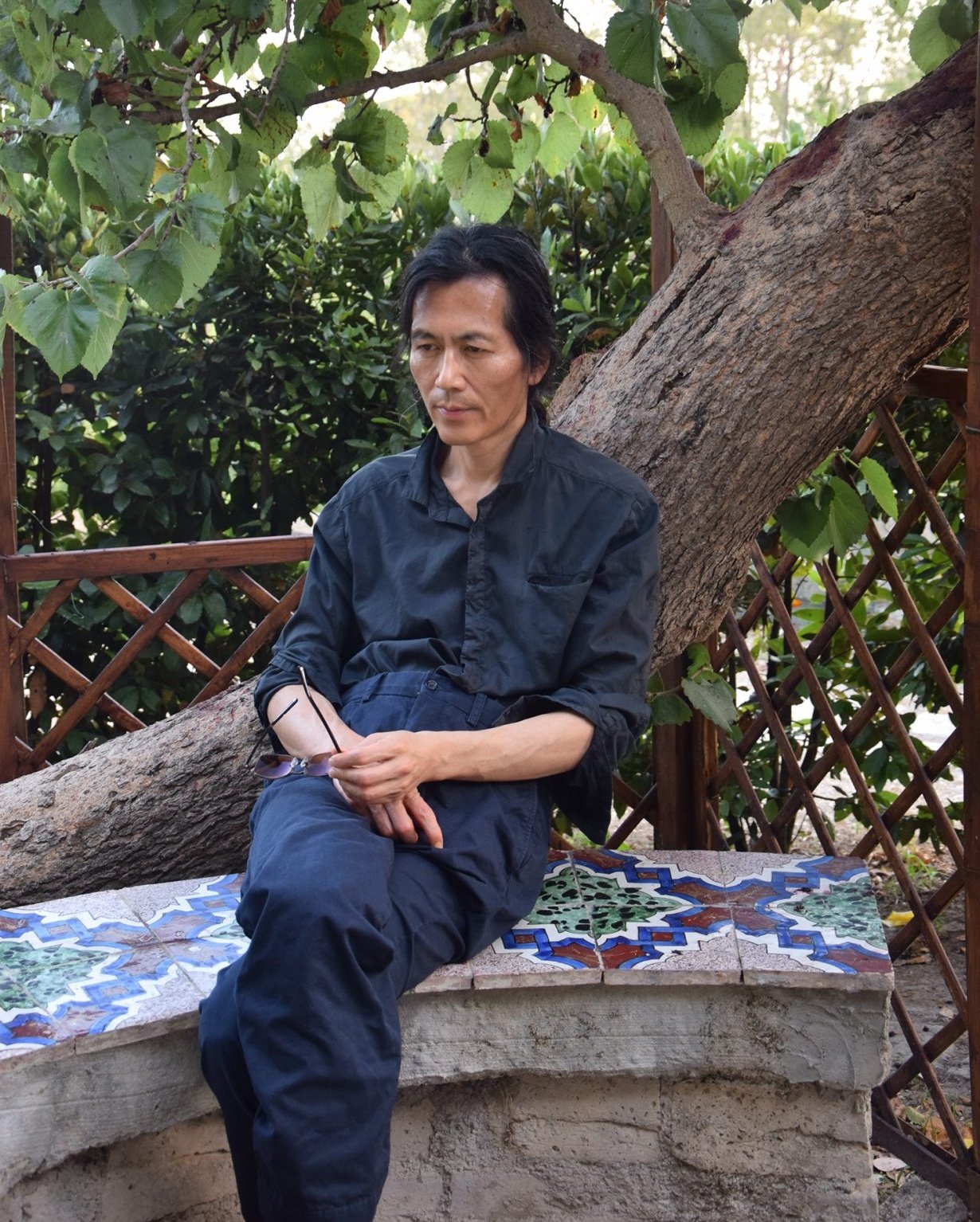
neither of tsukumizu’s manga are heavily plot-driven, both have a similar episodic structure where most chapters are near-standalone explorations of a topic or theme by the main characters, always established from the outset by the chapter’s one-word title. for months i’ve struggled to give this structure a name, “episodic meditations” perhaps, or “essayistic fiction” because the meandering musings and indefinite conclusions of each chapter evoke informal or personal essays for me. “fugue” also comes to mind, though i’m not entirely sure it’s appropriate. i’m sure there are many other works out there with this structure, a diverse microgenre since it’s defined by form rather than content. arguably invisible cities is an example, though in my opinion the two strongest ones i’ve found are both american tv shows, joe pera talks with you and how to with john wilson.
would you become a papist for her?
 somewhat related but i had a vivid dream the other day where i was the pope, but as in my normal life i knew basically no latin or catholic liturgy so had some of the worst imposter syndrome i've ever felt, i guess it's a little bit like those dreams where you show up to an exam you forgot to study for. anyways, there was a big conclave or something going on and a bunch of young radical upstart cardinals were trying to push through some big reform/modernization schemes and i found myself forced to argue against them in favor of respecting all these rituals and traditions i really knew nothing about...
somewhat related but i had a vivid dream the other day where i was the pope, but as in my normal life i knew basically no latin or catholic liturgy so had some of the worst imposter syndrome i've ever felt, i guess it's a little bit like those dreams where you show up to an exam you forgot to study for. anyways, there was a big conclave or something going on and a bunch of young radical upstart cardinals were trying to push through some big reform/modernization schemes and i found myself forced to argue against them in favor of respecting all these rituals and traditions i really knew nothing about...
 somewhat related but i had a vivid dream the other day where i was the pope, but as in my normal life i knew basically no latin or catholic liturgy so had some of the worst imposter syndrome i've ever felt, i guess it's a little bit like those dreams where you show up to an exam you forgot to study for. anyways, there was a big conclave or something going on and a bunch of young radical upstart cardinals were trying to push through some big reform/modernization schemes and i found myself forced to argue against them in favor of respecting all these rituals and traditions i really knew nothing about...
somewhat related but i had a vivid dream the other day where i was the pope, but as in my normal life i knew basically no latin or catholic liturgy so had some of the worst imposter syndrome i've ever felt, i guess it's a little bit like those dreams where you show up to an exam you forgot to study for. anyways, there was a big conclave or something going on and a bunch of young radical upstart cardinals were trying to push through some big reform/modernization schemes and i found myself forced to argue against them in favor of respecting all these rituals and traditions i really knew nothing about...
“[...] VONNEGUT: I was talking to Styron about this one time and he pointed out that the great novelists, Dostoevsky, Gogol, Tolstoy, wrote for a very small audience in a barbarous nation where almost nobody could read. And they were content with a small audience of peers. I think that’s where we are now. [...]”

a new thing you see rich people doing is using their money to avoid exposure to hyperstimulants – i keep hearing about how christopher nolan has no cell phone, he just has a personal assistant that handles all that stuff, or there’s all the silicon valley tech millionaires who send their children to an expensive private school where electronics are banned. the most absurd one i heard was from this startup hustler online, who said he exclusively has his groceries delivered so he can avoid exposure to dangerous marketing in the grocery store that might cause him to buy unhealthy foods.
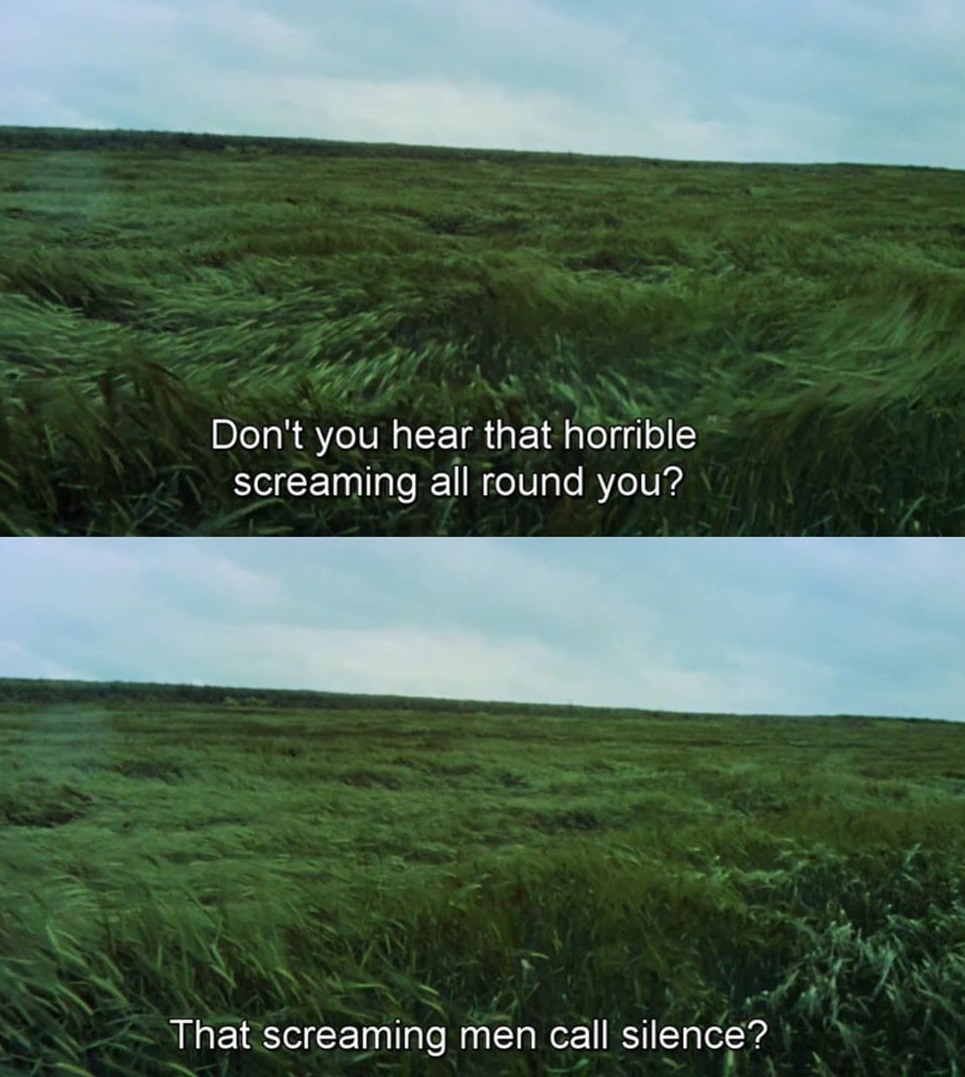
did you know there is a prescription video game for “treating” adhd? don’t worry, there is also an over-the-counter version available on the app store for a monthly subscription, “the only FDA-authorized digital therapeutic for ADHD available without a prescription”. apparently “There were no lasting or serious side effects in any clinical trials for EndeavorOTC.”, however i recall seeing a review from a guy who said it was “boring”. maybe that’s the point?
my internet was cancelled 20 days ago but still works for some reason... they don't want me to escape...
 there are many american downtowns, especially in places like texas (pictured: downtown houston in the seventies), where the skyscrapers feel merely performative, there doesn’t seem to be any genuine need for density because right next to them you’ll find plenty of flat lots that are just used for parking. it’s similar to all those skyscrapers they’ve built in dubai just to show off...
there are many american downtowns, especially in places like texas (pictured: downtown houston in the seventies), where the skyscrapers feel merely performative, there doesn’t seem to be any genuine need for density because right next to them you’ll find plenty of flat lots that are just used for parking. it’s similar to all those skyscrapers they’ve built in dubai just to show off...
look at cape coral, florida on google maps. what goes on there? is this america's venice?
there’s a certain class of fast casual restaurant these days where i frequently find myself the only one sitting and eating in a vast vestigial dining space. the restaurant is still busy, but the vast majority of orders have shifted over to takeout or delivery, gathered together in large bags that are retrieved by drivers who come in to the restaurant only for a moment. i expect we’ll soon see newer locations of these types of restaurants cut down on expenses by reducing seating areas and optimizing for takeout/delivery (the extreme version with no seating whatsoever is a “ghost kitchen”), in the same way that many fast food chains have started to change their design to focus on serving the drive-thru (see: recent chick-fil-a locations, raising canes). something similar has happened with coffee, where starbucks has lost the mandate of heaven to drive-thru-only chains with leaner site footprints like dutch bros.
cannot stop thinking about DOGRA MAGRA, japan’s great untranslated mystery novel. it’s not completely untranslated – there’s a garbled machine translation based on the french translation, infamous enough that charlie kaufman (selected writing credits: being john malkovich; adaptation; eternal sunshine of the spotless mind; synecdoche, new york) brought it up in a surreal new york times column:
“Everyone loves a mystery. For my money, the best of that genre is the Japanese mystery and the best of the Japanese mysteries is “Dogra Magra,” by Kyusaku Yumeno. This 1935 novel by the unrivaled master of surrealism finds an amnesiac awakening in a clinic, attended by two doctors who tell him he’s killed his wife. Did he? Are the doctors playing a cruel game? The point is it’s impossible to know, especially in the only English language version, which seems to have been translated by a drunk computer. And this is what makes the book so delicious, as it adds another dreamy layer of incomprehension to the already mysterious story. Here’s a taste:
The girl across the wall knows me. It is my wife. … And I was killed by my hand the night before I had a wedding with me. And the wall with meSingleFor a momentIn a room across the streetCloseWhenTimeBasketThisIt seems that they are calling me, not at night, but not at night.
This novel ticks off all my boxes.”
things are looking up, though, because it’s currently being translated into english by a filipino student and aesthete, who posts periodic progress updates on an obscure subreddit dedicated to a high-concept cult hit mobile game that referenced the book and inspired him to translate it.
“Everyone loves a mystery. For my money, the best of that genre is the Japanese mystery and the best of the Japanese mysteries is “Dogra Magra,” by Kyusaku Yumeno. This 1935 novel by the unrivaled master of surrealism finds an amnesiac awakening in a clinic, attended by two doctors who tell him he’s killed his wife. Did he? Are the doctors playing a cruel game? The point is it’s impossible to know, especially in the only English language version, which seems to have been translated by a drunk computer. And this is what makes the book so delicious, as it adds another dreamy layer of incomprehension to the already mysterious story. Here’s a taste:
The girl across the wall knows me. It is my wife. … And I was killed by my hand the night before I had a wedding with me. And the wall with meSingleFor a momentIn a room across the streetCloseWhenTimeBasketThisIt seems that they are calling me, not at night, but not at night.
This novel ticks off all my boxes.”
things are looking up, though, because it’s currently being translated into english by a filipino student and aesthete, who posts periodic progress updates on an obscure subreddit dedicated to a high-concept cult hit mobile game that referenced the book and inspired him to translate it.
the supreme aesthetic pleasure of exploring the full consequences of a particular set of rules or mechanics... though most commonly seen in video games, it can even be applied to fiction, the “rules-drama” ("rigorous" time travel movies like primer most often fall into this genre)
"I have always been a voracious reader of what I term "invisible literature" - market research reports, pharmaceutical company house magazines, the promotional copy for a new high-energy breakfast food, journals such as Psychological Abstracts and the Italian automobile magazine Style Auto, the internal memoranda of TV company planning departments, sex manuals, U.S. government reports, medical textbooks such as the extraordinary Crash Injuries."
similar to how photography killed realism in painting, i wonder if ai-generated images/illustrations will herald the death of technique and execution in art (although the importance of craft has certainly already declined in the past century or so). the ai “style” is so smooth, so slick, that i wonder if in the future there will be popular art that looks bad or janky on purpose, bad in a decidedly-human manner, what’s sometimes referred to as being “soulful”.
“The Nike slogan was inspired by the last words of Utah murderer Gary Gilmore, who, just before he was executed by firing squad in 1977, said ‘Let’s do it’”
the surprise gaming hit of the year is this game “palworld”, so meteoric that it’s even landed on my radar. it looks like a shameless, artless mashup of all the most popular game genres: a multiplayer open world survival crafting sandbox base-building factory creature-collecting rpg shooter. i feel like with this, we’re one step closer to all popular video games merging into one supergame, the gaming singularity...
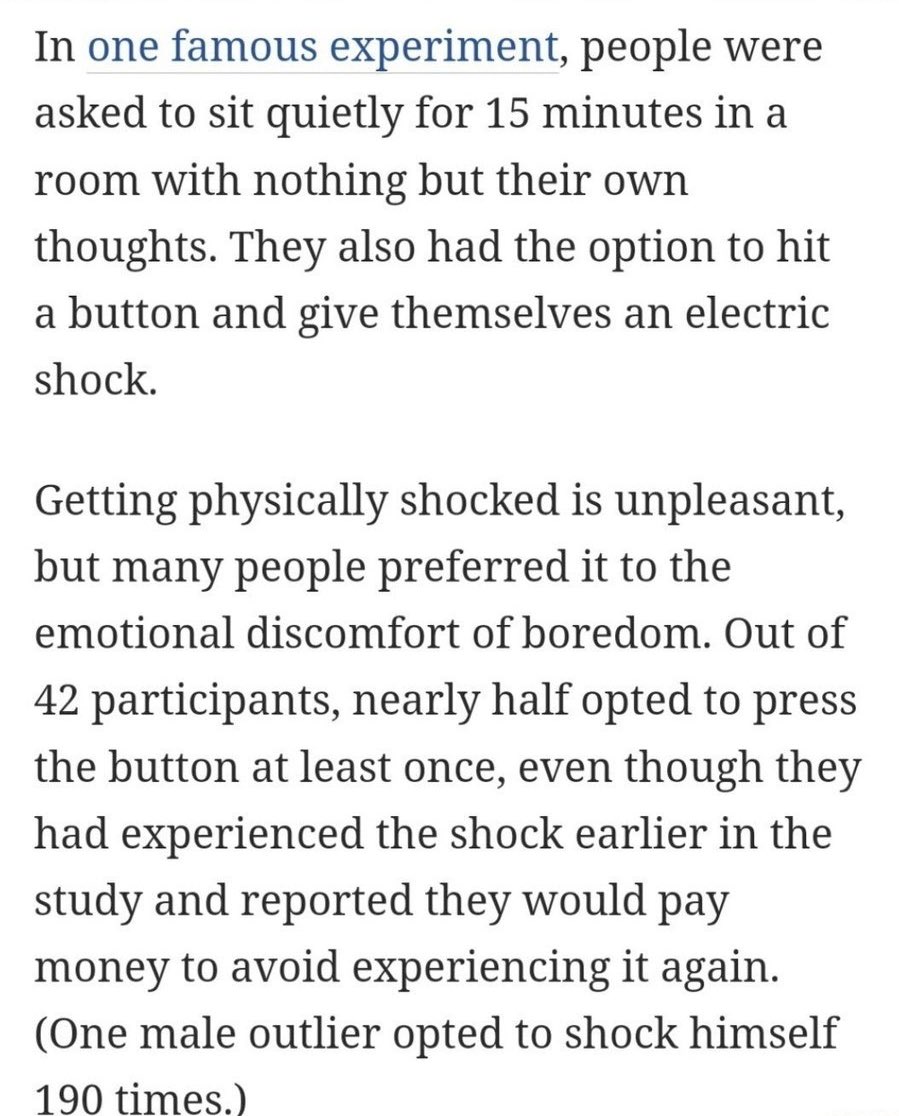
some people are so deeply aware of nostalgia now that they get nostalgic for moments as they are happening
"In the day-to-day trenches of adult life, there is actually no such thing as atheism. There is no such thing as not worshipping. Everybody worships. The only choice we get is what to worship. And an outstanding reason for choosing some sort of God or spiritual-type thing to worship - be it J.C. or Allah, be it Yahweh or the Wiccan mother-goddess or the Four Noble Truths or some infrangible set of ethical principles - is that pretty much anything else you worship will eat you alive. If you worship money and things - if they are where you tap real meaning in life - then you will never have enough. Never feel you have enough. It's the truth. Worship your own body and beauty and sexual allure and you will always feel ugly, and when time and age start showing, you will die a million deaths before they finally plant you. On one level, we all know this already - it's been codified as myths, proverbs, cliches, bromides, epigrams, parables: the skeleton of every great story. The trick is keeping the truth up-front in daily consciousness. Worship power - you will feel weak and afraid, and you will need more power over others to keep the fear at bay. Worship your intellect, being seen as smart - you will end up feeling stupid, a fraud, always on the verge of being found out. And so on."
blurb on the cover of my future unpublished novel: “A book that paradoxically blends high modern decadence and severe neurotic zoomer asceticism”

some fragments regarding art:
"...Kandinsky himself alludes to the superiority of music in its already non-representational character; 'painting will attain the higher levels of pure art upon which music has already stood for several centuries'"
"...he identifies what he takes to be an aesthetic paradox: in the 'primitive' stages of an art-form, every contribution is a work of genius, while in the advanced stages it is only the rare and deviant exception, the 'sport' to borrow a metaphor of random mutation from Darwin, that is worthy of attention. Every single one of those haunting Bronze Age Cycladic figurines, with arms folded and without a face, is a stunning testament to human representational power; every single work in an MFA sculpture exhibit, rather less so – and yet these are supposed to be the professionals, the 'masters'!"
"...Kandinsky himself alludes to the superiority of music in its already non-representational character; 'painting will attain the higher levels of pure art upon which music has already stood for several centuries'"
"...he identifies what he takes to be an aesthetic paradox: in the 'primitive' stages of an art-form, every contribution is a work of genius, while in the advanced stages it is only the rare and deviant exception, the 'sport' to borrow a metaphor of random mutation from Darwin, that is worthy of attention. Every single one of those haunting Bronze Age Cycladic figurines, with arms folded and without a face, is a stunning testament to human representational power; every single work in an MFA sculpture exhibit, rather less so – and yet these are supposed to be the professionals, the 'masters'!"
genetics is astrology for boys
“The United States Department of Agriculture tried this when it was about to issue a rule regarding the minimum peanut content in peanut butter. Advocates wanted it to be at least 90 percent peanuts, manufacturers wanted to require only 87 percent peanuts, and adjudicating that 3 percent difference under the formal rulemaking process took the Food and Drug Administration twelve years of the 1960s and 1970s. The case went almost all the way to the Supreme Court, and the oral hearing alone took twenty weeks and produced a 7,736- page transcript.”

a couple of years ago my dad got OBSESSED with this then-niche sport called pickleball, like to the point that it was getting a little bit annoying. i was initially confused because my middle school "physical education" teacher had us play a variant of tag where you threw little balls at each other which she called pickleball, but what my dad was referring to is actually a paddle/racket game that's like if you took the average of ping pong and table tennis. it was really popular back then with retired boomers, but my dad is not-quite-retired so he was above average at it since he was sprightly in comparison to many of his match partners. watching a little bit, i could see how it had achieved so much popularity with that crowd: if you were playing doubles you could play just by standing in one place on the shrunken tennis court pickleball is played on, the perfect game for "active seniors". i guess ping pong doesn't feel "active" enough, even though my former-yugoslav former ping pong coach continually claimed ping pong is the best exercise of any sport (he also insisted it be referred to as "table tennis"). anyways my dad was quite ahead of the curve it turns out, because now it seems like pickleball is really taking off. i'm seeing tennis courts converted into pickleball courts popl up everywhere, people mentioning it in passing, and most concerning, now it's gotten to the point where i'm even seeing people MY AGE playing it. it's interesting, it feels like it's been a very long time since a new sport took off like this, to the point where you'd almost get the feeling that it was impossible to invent any new ones and that everyone would be stuck playing football, basketball, baseball, etc. forever, and that the only "progress" could be in stuff that's not really sports like esports.
“Very early in my career, I worked with someone who put out a strong ‘I’m working at this job to gather material for my roman à clef debut novel’ vibe, and I decided that there was a risk I’d be an identifiable character in the book so I ought to be extra polite”
memetic consequences of the internet
-competitiveness of online attention market leads to highly-accelerated memetic evolution and eventually emergence of hyper-salient memeplexes, akin to antibiotic overuse leading to superbugs
-easy exposure of said hyper-salient or optimized memeplexes to those who have very little intellectual immunity, whether natural of built-up
-simultaneous ease of access and decentralization makes certain memeplexes difficult or nearly impossible to fully eradicate
-competitiveness of online attention market leads to highly-accelerated memetic evolution and eventually emergence of hyper-salient memeplexes, akin to antibiotic overuse leading to superbugs
-easy exposure of said hyper-salient or optimized memeplexes to those who have very little intellectual immunity, whether natural of built-up
-simultaneous ease of access and decentralization makes certain memeplexes difficult or nearly impossible to fully eradicate
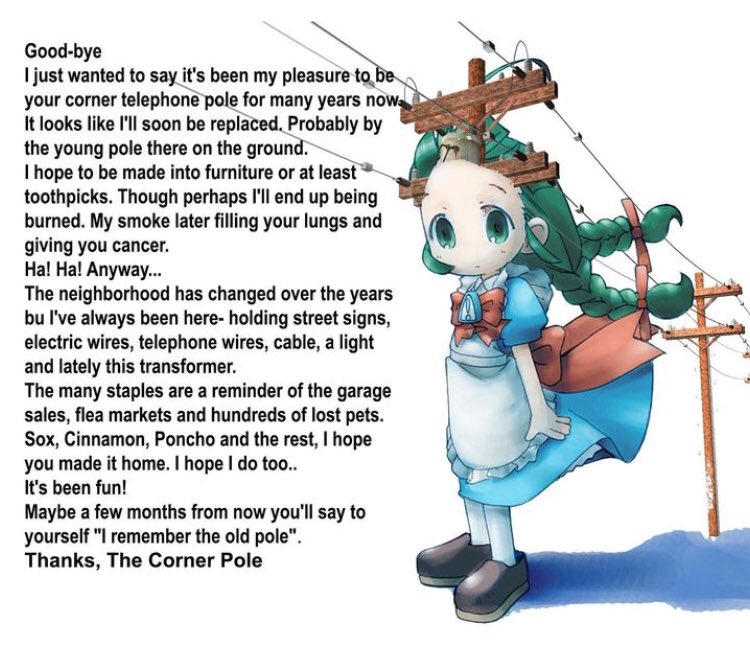
what we need more than anything in this age of faithlessness is an absolutely faithful anime adaptation of the New Testament
unfortunately literature (especially american literature) seems to be more or less dead lately. i’ve spoken a bit about some of the more material causes before (professionalization and centralization of the profession under the tyranny of the mfa, iowa writer’s workshop and the “new york scene” leads to everything being the same), but the looming spiritual issue is that james joyce formally completed the project of literature just over a century ago with the publication of “ulysses”. on some level this idea so thoroughly permeates the literary climate that i’ve been aware ever since i started getting into literature that ulysses represents the “final boss” of literature, which is why even to this day i have not yet read it because i do not believe i am ready yet. it might be so good that it spoils all other books for me, and i’m afraid that if i read it too soon i’ll never be able to enjoy another book again. in the century since ulysses there have certainly been many more literary giants, and although some arguably matched it in scope and execution, none were able to unquestionably surpass it. now, hope is beginning to fade. if world-historical literary geniuses like nabokov, who had every advantage growing up in an aristocratic household during the twilight of an empire learning multiple languages and who had read by age 13 more books than i probably will in a lifetime AND also had synesthesia couldn’t surpass ulysses, then what hope is there for us who have grown up distracted by video games, netflix, and cheap weed? well, it’s simply not possible: the project of literature is complete, it's finished, it’s done. there is no great american literature anymore because there are no frontiers left in literature. i believe consequently, all of the great literary talent has gone to fertilize more interesting, virgin ground, where there is work to be done. this is why ultimately, i must excuse tim rogers (who i believe to be the best contemporary writer) for spending all his time making maximalist video game reviews on youtube: there is, after all, still a lot of space for development in that medium, as rogers himself demonstrates with his boundary-pushing videos. ditto manga, even stuff like tweets perhaps. maybe that’s why i’m here making this website instead of working on my novel.

a sign i spotted attached to the pillar of a bridge over the highway: “Iconic Freeway Structure”
idle on youtube at a friend’s house and watched the latest mrbeast on a whim, “train vs. giant pit”. coming from reading books, i feel like the caveman unfrozen in the future. it is raw unfiltered pure CONTENT. the editing is spastic, hyperactive, almost desperate, as if mrbeast’s very survival is reliant on continuing to win the moment-by-moment fight for your attention throughout the length of the video (around 10 minutes, according to ancient youtuber folklore the optimal video length for algorithmic engagement). in terms of the content, this results in a sort of blasé maximalism: the video’s main hook is “train vs. giant pit”, but in fact the video contains something like seven more-or-less unrelated stunts strung together. alone, each of those individual stunts is a costly undertaking and could headline their own video that would be the highlight or pinnacle of a smaller youtuber’s career, but to mrbeast it’s just a brief throwaway segment to hold onto your attention for another 30 seconds until the next one. they must be spending at least a million dollars per minute of video if not more. from a financial perspective it is certainly wasteful, he easily has enough footage to split those stunts into multiple videos and that would probably net him more money. however from what i have read it’s really “not all about the money” for mrbeast, he genuinely has some kind of fanatical content-creation drive that leads him to pour almost all the money he makes back into making even more extravagant and expensive videos. i get the sense that he makes money for the videos and not videos for the money. he is unironically (and with as little subtlety as possible) attempting to create The Entertainment.
i want to sip wine from a trophy
i recently finished reading this fascinating book that proposes that back in ancient times, everyone was basically schizophrenic and literally heard the voices of gods or the pharaoh or whatever ordering them around and telling them what to do all the time. there is a significant social/cultural influence on schizophrenic hallucinations so the voices (reinforced by religion) people heard mostly moved them in the right direction. according to the theory, then, modern schizophrenics are simply stranded in a godless future where no one can agree on anything, thus making their voices a discordant, inconsistent mass. this gave me an idea for a novel non-pharmacological intervention for schizophrenia: we should put them to work in the desert building a giant ziggurat in honor of the mesopotamian god marduk, just like the good old days of what i guess you could call "the golden age of schizophrenia".
"Whereof one cannot speak, thereof one must be silent"
 corollary: if you would not steal a book you do not really love literature
corollary: if you would not steal a book you do not really love literature
hackruki memekami does not deserve the nobel prize in literature (although many who have received it don’t either). i only read one book of his and found it overly long, then later found out the english translation i was reading had already been abridged somewhat. then at some point i stumbled upon a “murakami bingo" illustration of common themes/images/plot points somebody made for like the new yorker or something and managed to score multiple bingos having read just that one book. the other day, i talked to a friend about this, who by some coincidence had also read only that one murakami book that i had (it was "the wind-up bird chronicle" by the way), and he was in total agreement with me. i would, however, pretend to like him for the right person.
japanese doomsday cult aum shinrikyo is infamous for the 1995 tokyo subway sarin gas attacks, but did you know they may have detonated a small nuclear bomb in the australian outback? they also tried to cause an anthrax epidemic by releasing a ton of anthrax bacterial spores from the top of their hq in tokyo, but nothing happened besides complaints of a bad smell in the area. "Shoko Ashara, the head of the Aum Shinrikyo cult, who after its bioterrorism project failure 'speculat[ed] that U.S. assessments of the risk of biological terrorism were designed to mislead terrorist groups into pursuing such weapons'"

"it's a statement. i'm not sure what it means but any artist who explains or interprets their own work is at best wrong and at worst a hack or fraud."
defenses against infohazards and cognitohazards:
- antimemes (e.g. taboos)
- countermemes (e.g. thought-terminating cliches)
- ignorance
- unawareness ("the virtue of silence")
- antimemes (e.g. taboos)
- countermemes (e.g. thought-terminating cliches)
- ignorance
- unawareness ("the virtue of silence")
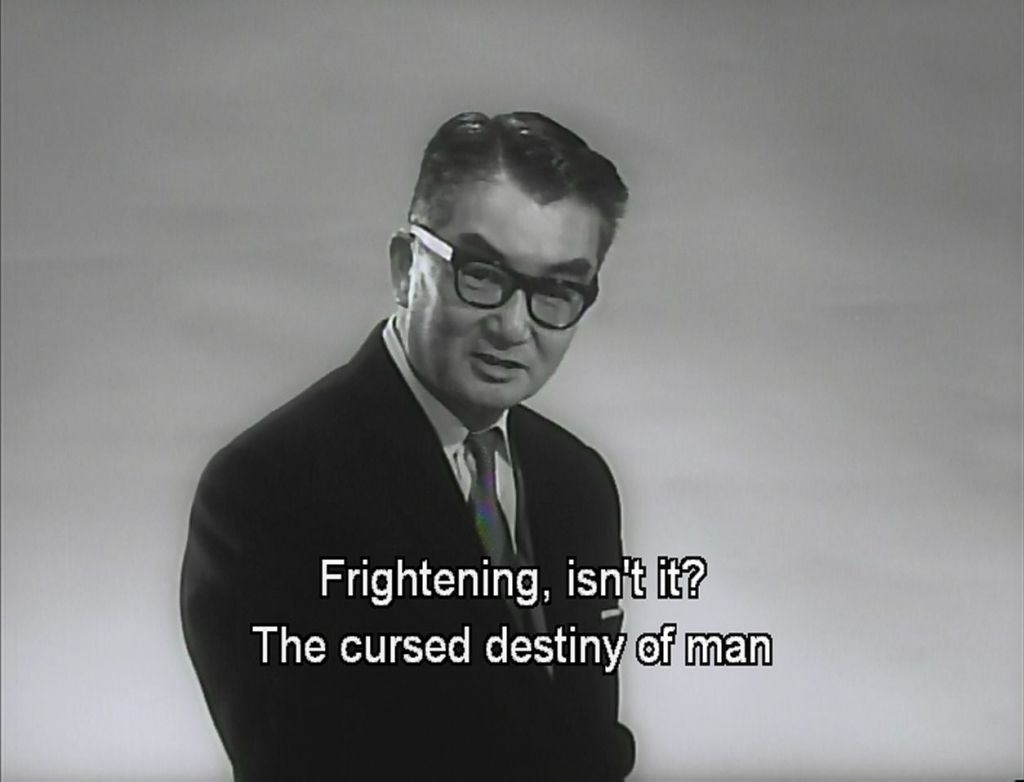
crypto should go back to like it was in the good old days, a special currency just for buying illegal stuff online like drugs and fake ids
"You stop a horse that is bolting. You do not stop a jogger who is jogging.
Foaming at the mouth, his mind riveted on the inner countdown to the
moment when he will achieve a higher plane of consciousness, he is not to be
stopped. If you stopped him to ask the time, he would bite your head off. He
doesn’t have a bit between his teeth, though he may perhaps be carryingdumbbells or even weights in his belt (where are the days when girls used to wear
bracelets on their ankles?). What the third-century Stylite sought in self-privation
and proud stillness, he is seeking through the muscular exhaustion of his body.
He is the brother in mortification of those who conscientiously exhaust themselves
in the body-building studios on complicated machines with chrome pulleys and on
terrifying medical contraptions. There is a direct line that runs from the medieval
instruments of torture, via the industrial movements of production-line work, to the
techniques of schooling the body by using mechanical apparatuses. Like dieting,
bodybuilding, and so many other things, jogging is a new form of voluntary
servitude (it is also a new form of adultery)."
barry lyndon > eyes wide shut > 2001: a space odyssey = the shining = full metal jacket > a clockwork orange >>> lolita
one of the things that has stuck around in my mind is this article i read about some australian bugs. trust me, i’m going somewhere with this. this particular species of bug was dying out due to pollution, but not in the usual way. there was this one popular brand of beer with a shiny red bottle that bogans were fond of littering roadsides with. as it so happened, those roadsides were the habitat of that particular species of bug. the way the female bug attracted the male bugs was with its shiny red butt, and now suddenly the whole area was filled with these broken red bottles that appeared to the male bugs like the shiniest, most luscious female bug butt they’d ever seen. so naturally the male bugs began ignoring the female bugs, and devoted all of their time to copulating profusely with the bodacious bottles. now that species of bugs is going extinct. i think about this a lot.
alliteration addiction

the three great misattributions of modernity – greater life expectancy to better healthcare, better tech to greater understanding of science, and greater wealth to better education.
the interesting thing about costco is that while the items they sell are huge, they tend to have far less variety of products/brands – a typical costco stocks just 4000 different products vs. 30,000 at the average supermarket or 120,000 at a walmart, but costco’s curation is excellent and you hardly notice shopping there. too much choice is bourgeois and decadent anyways.

nobody reads these days so naturally i get quite excited whenever i hear somebody mention that they have read or are reading a book. i really should have learned my lesson by now because more often than not, the person will go on to reveal that they are actually “reading” an audiobook (to say nothing of the book selection itself, which is usually questionable as well, but i’ll leave that for some other time). what’s the big issue with that? is having a problem with people saying they’re reading audiobooks just for elitist, gatekeeping, pedantic pricks? maybe, but i would argue that even if the content may be the same, there is an important distinction between reading a book and listening to one. reading is active, whereas listening is passive. if you’re going to read a book, you need to focus and invest a significant amount of attention to it. the same is not true with listening, which is perhaps why audiobooks are gaining popularity, because many people no longer find themselves able to muster enough attention or focus to be able to properly read a book. however, for good reason i believe, the act of reading books still carries a decent amount of prestige in our culture, as it has for generations. but now, people think they can take a shortcut and reap the benefits of reading books by listening to audiobooks, without having to do the hard work of actually reading. the thing is, the benefits of reading come largely from putting in the effort, from focusing, slowing down, and mentally processing what’s on the page. if you get to difficult or thought-provoking section, you can pause and reflect on it, or read it over again (whereas the audiobook keeps marching along at the same rate, regardless of what you’re thinking). when someone tells me they have read a book, it implies to me that they have engaged with it in that way. sure, maybe you’ve got people who sit down and focus their complete attention on listening to an audiobook (if they’re able to focus like that, though, one wonders why they don’t just read the book), but you’ve also got those who listen to them at 1.5x speed while cooking, doing the laundry, or running on the treadmill. this is why i take issue when people claim to have “read” books when they really just listened to an audiobook, the level and mode of engagement simply cannot be compared. go ahead and listen to audiobooks if that’s your cup of tea, i won’t bother you about it directly though i will probably silently judge you in my head (“oh no, they've been so brain damaged by social media/society that they needs to have their schlocky sci-fi and fantasy books read to them like a kid”), just be clear and upfront that you are LISTENING to them, not READING them. otherwise it is stolen valor.

it is surprising that alchemists never realized money is the universal solvent/philosopher’s stone
the informational asymmetry of parasocial relationships – a devoted fan or a follower of some creator or influencer (especially ones with a very “personal” brand) will tend to know a LOT more about that creator/influencer than that creator/influencer knows about them, which leads to an interesting dynamic should they ever meet or interact with each other. it would be akin to trying to talk with your stalker. perhaps this is why some creators have such disgust for their fans (among other reasons...).


the boomers are trying to go to the grave clutching the purse strings so it is basically our duty to use our technology (sophisticated ai scams) to wrest from them the generational wealth transfer that we deserve
"A damsel with a dulcimer
In a vision once I saw:
It was an Abyssinian maid
And on her dulcimer she play'd,
Singing of Mount Abora.
Could I revive within me
Her symphony and song,
To such a deep delight 'twould win me,
That with music loud and long,
I would build that dome in air,
That sunny dome! those caves of ice!
And all who heard should see them there,
And all should cry, Beware! Beware!
His flashing eyes, his floating hair!
Weave a circle round him thrice,
And close your eyes with holy dread:
For he on honey-dew hath fed,
And drank the milk of Paradise"
In a vision once I saw:
It was an Abyssinian maid
And on her dulcimer she play'd,
Singing of Mount Abora.
Could I revive within me
Her symphony and song,
To such a deep delight 'twould win me,
That with music loud and long,
I would build that dome in air,
That sunny dome! those caves of ice!
And all who heard should see them there,
And all should cry, Beware! Beware!
His flashing eyes, his floating hair!
Weave a circle round him thrice,
And close your eyes with holy dread:
For he on honey-dew hath fed,
And drank the milk of Paradise"
cultural beliefs about mental illness can shape their manifestations – in some cultures, schizophrenics have predominantly positive/helpful hallucinations. are western schizophrenics always obsessed with cia/fbi conspiracies because culturally, that’s what we’ve told them they’re supposed to be obsessed with?

in old timey-times and extant “primitive” cultures, what we call “mental illness” was commonly viewed as demonic possession. maybe they’re right. maybe the progress we think we’ve made is primarily aesthetic. the etiology (causes) of most mental illnesses is still poorly understood – scientists have all sorts of theories now about brain chemicals and stuff, but as mark fisher points out, they have no explanation for why those brain chemicals like serotonin get out of balance in some people, not to mention the fact that it seems to be getting more and more common. is this a good time to mention that the whole serotonin theory of depression recently got debunked pretty hard (again)? at this point “demonic possession” looks pretty comparable to most other theories evidence-wise. even if it really is different chemical imbalances causing mental illnesses, who’s to say that it’s not demons messing around with them?
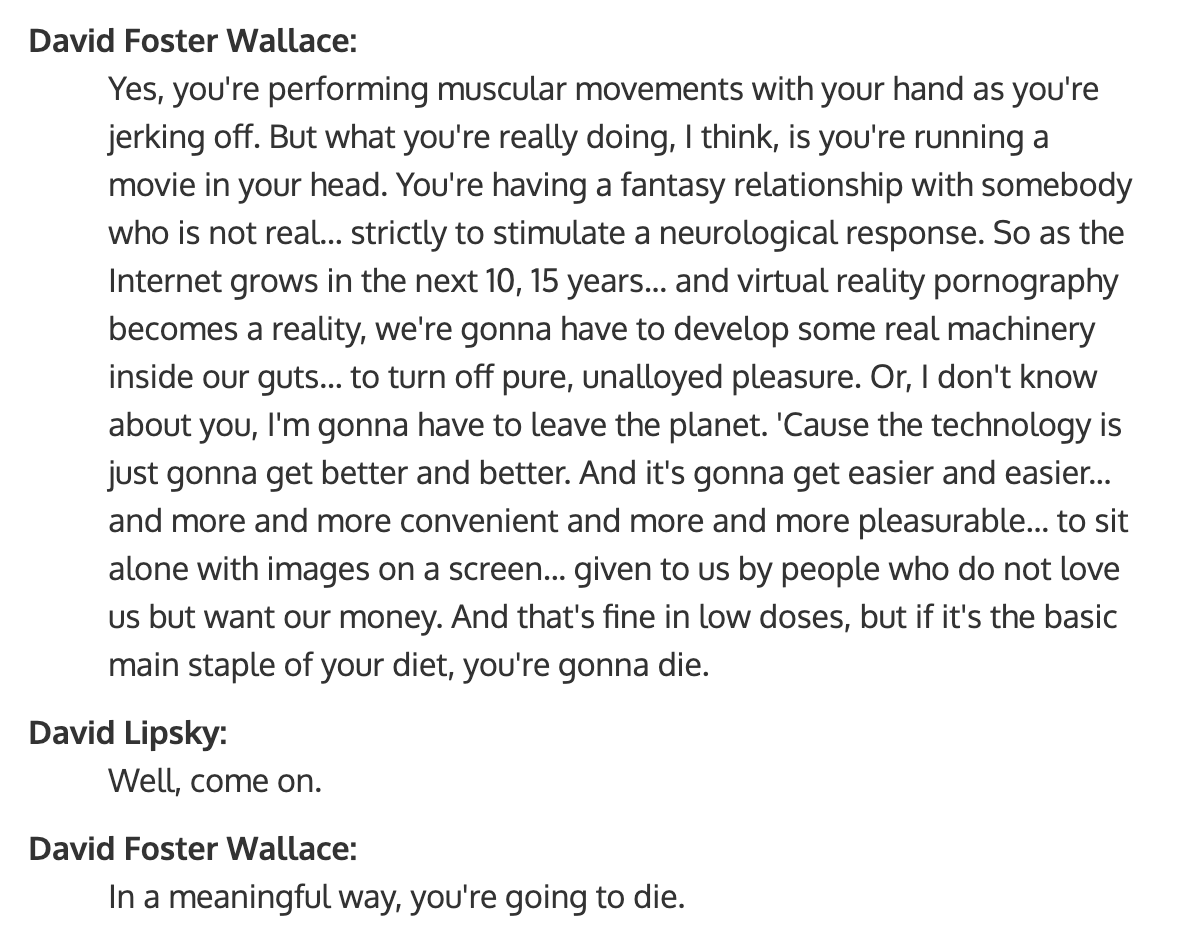
the nyrb summer sale order, 2025 edition
(every time i’ve seen a recommendation for an nyrb book the past year or so i’ve added it to a list in my notes for this sale, i’ve been waiting for it for so long)
- the moon and the bonfires
- that awful mess on the via merulana
- the long ships
- the adventures and misadventures of maqroll
- sand
- zama
- warlock
(every time i’ve seen a recommendation for an nyrb book the past year or so i’ve added it to a list in my notes for this sale, i’ve been waiting for it for so long)
- the moon and the bonfires
- that awful mess on the via merulana
- the long ships
- the adventures and misadventures of maqroll
- sand
- zama
- warlock

5 minute "homemade" sausage egg mcmuffin with only costco ingredients
the sausage egg mcmuffin may the perfect breakfast food, the only issue is that i’m too lazy and cheap and dignified to drag myself to mcdonald’s every morning. fortunately, there’s a quick and easy way to make a version at home that’s almost as good, using entirely ingredients from costco so that you can make a month’s worth with only a single shopping trip
AT COSTCO, PURCHASE THE FOLLOWING:
- 4 lb bag of tyson reduced-fat sausage patties (in freezer section by other breakfast products)
- 50 ct. deli sliced tillamook medium cheddar (exact cheese brand probably varies depending on region. for some reason costco bulk sliced cheese is really cheap, at the normal grocery store you only get like 10 slices for the same price)
- 24 pack thomas english muffins (or equivalent)
- kirkland signature eggs, unsalted butter, black peppercorn grinder (if you somehow have no pepper)
1. grab a sausage patty from the freezer and put it onto a skillet (no oil required), set burner to medium heat.
2. split english muffin in half, put a thin pat of butter on each half, then toast until edges are browned or slightly blackened
3. the egg was the toughest part to crack for me, how do you get a nice round egg patty that fits perfectly onto the english muffin? i used to just wing it and use a normal fried egg which made the whole process take a lot of extra time, however one day i decided to stop being lazy and looked it up, turns out you can actually do it fairly easily in the microwave! crack an egg into a ramekin or some other appropriately-sized round microwaveable vessel and then put it in the microwave. this next part will require some experimentation, every microwave is different and eggs are quite finicky, they love to explode in them. try messing with power levels and pauses (currently i microwave the eggs in a series of ten second bursts) until you stumble upon a combination that consistently cooks the eggs to your preferred level of doneness.
4. remember to flip the sausage patty at some point
5. when the english muffins are done, lay them out on a plate along with the slice of cheese and the sausage patty, which should be about done by this point too. now it’s time to start assembling, if you’re going for maximum accuracy start with the cheese on the bottom half of the english muffin, then the sausage patty, and finally the egg, which you can get sometimes get out of the ramekin just by flipping it upside down, otherwise you can coax it out with a fork or something. if you want your cheese super melted you can put it in between the sausage and egg instead. then, grind a bit of pepper on top of the egg and maybe sprinkle a little salt, and top it off with the other half of the english muffin. finally, before eating wait a little for everything to cool down and for the cheese to melt, a good opportunity to do some cleanup. if you’re really striving for authenticity, at this stage you can also wrap the completed sandwich in tinfoil or paper towels so it steams a little, ruthless perfectionist james “kenji” lopez-alt insists this is a vital part of the mcmuffin experience.
the sausage egg mcmuffin may the perfect breakfast food, the only issue is that i’m too lazy and cheap and dignified to drag myself to mcdonald’s every morning. fortunately, there’s a quick and easy way to make a version at home that’s almost as good, using entirely ingredients from costco so that you can make a month’s worth with only a single shopping trip
AT COSTCO, PURCHASE THE FOLLOWING:
- 4 lb bag of tyson reduced-fat sausage patties (in freezer section by other breakfast products)
- 50 ct. deli sliced tillamook medium cheddar (exact cheese brand probably varies depending on region. for some reason costco bulk sliced cheese is really cheap, at the normal grocery store you only get like 10 slices for the same price)
- 24 pack thomas english muffins (or equivalent)
- kirkland signature eggs, unsalted butter, black peppercorn grinder (if you somehow have no pepper)
1. grab a sausage patty from the freezer and put it onto a skillet (no oil required), set burner to medium heat.
2. split english muffin in half, put a thin pat of butter on each half, then toast until edges are browned or slightly blackened
3. the egg was the toughest part to crack for me, how do you get a nice round egg patty that fits perfectly onto the english muffin? i used to just wing it and use a normal fried egg which made the whole process take a lot of extra time, however one day i decided to stop being lazy and looked it up, turns out you can actually do it fairly easily in the microwave! crack an egg into a ramekin or some other appropriately-sized round microwaveable vessel and then put it in the microwave. this next part will require some experimentation, every microwave is different and eggs are quite finicky, they love to explode in them. try messing with power levels and pauses (currently i microwave the eggs in a series of ten second bursts) until you stumble upon a combination that consistently cooks the eggs to your preferred level of doneness.
4. remember to flip the sausage patty at some point
5. when the english muffins are done, lay them out on a plate along with the slice of cheese and the sausage patty, which should be about done by this point too. now it’s time to start assembling, if you’re going for maximum accuracy start with the cheese on the bottom half of the english muffin, then the sausage patty, and finally the egg, which you can get sometimes get out of the ramekin just by flipping it upside down, otherwise you can coax it out with a fork or something. if you want your cheese super melted you can put it in between the sausage and egg instead. then, grind a bit of pepper on top of the egg and maybe sprinkle a little salt, and top it off with the other half of the english muffin. finally, before eating wait a little for everything to cool down and for the cheese to melt, a good opportunity to do some cleanup. if you’re really striving for authenticity, at this stage you can also wrap the completed sandwich in tinfoil or paper towels so it steams a little, ruthless perfectionist james “kenji” lopez-alt insists this is a vital part of the mcmuffin experience.
"When I heard the learn’d astronomer,
When the proofs, the figures, were ranged in columns before me,
When I was shown the charts and diagrams, to add, divide, and measure them,
When I sitting heard the astronomer where he lectured with much applause in the lecture-room,
How soon unaccountable I became tired and sick,
Till rising and gliding out I wander’d off by myself,
In the mystical moist night-air, and from time to time,
Look’d up in perfect silence at the stars."
- W. W.
When the proofs, the figures, were ranged in columns before me,
When I was shown the charts and diagrams, to add, divide, and measure them,
When I sitting heard the astronomer where he lectured with much applause in the lecture-room,
How soon unaccountable I became tired and sick,
Till rising and gliding out I wander’d off by myself,
In the mystical moist night-air, and from time to time,
Look’d up in perfect silence at the stars."
- W. W.

i recommend that everyone watch at least one episode of the reality show "hoarders", i've only watched one episode and didn't even finish the whole thing at that but i still think about it all the time... hoarding is perhaps one of the most common american pathologies, the result of culture steeped in consumerism and materialism, paired with a fear of death and letting go. it might also be a symptom of middle class status anxiety, the economic position of being able to afford nice things, but not well-off enough to afford losing them. hoarding goes back all the way to when the middle class was just barely emerging, one of the guys in dead souls was a prototypical hoarder. i used to have some hoarding tendencies and i'm not sure exactly what kind of buddhist "letting go of attachments"-type enlightment cured it but at some point i realized that even my most precious objects were ultimately just stuff and that i could part with them easily. i wasn't all that torn up about my oldest hard drive dying earlier this year (as detailed in a blog post), but i know that only a few years ago that would've caused me significant distress. this mindset also makes me largely untouchable when dealing with my brother, since he can only conceive of threatening my personal property, to which i reply "well i can't take that with me into the kingdom of heaven so who cares". anyways, though i think there are more people in america that lean towards the "hoarder" end of the axis than not, the hoarders tv show obviously showcases only the most extreme examples, in which the contradictions and irrationalities of hoarding are most stark. the subject of the episode i watched thought of himself as a "collector", the stuff comprising his various collections piled in every room of his 4-bedroom house so thickly that most were impassable, there was only one path through the house carved through mountains of stuff as if through snowpack. stuff was even piled up on his king bed, leaving just enough room on one side for him to slip in and sleep. he insisted that there was a lot of valuable stuff in his collections, so this hosts brought in a professional appraiser from an auction house to see what prices they might fetch, and guess what? the appraiser's brutal conclusion was that there was literally nothing of value, it was all worthless tchotchkes and knickknacks you'd be lucky to get $20 for at a thrift store. worse was when they astarted going through all the stuff deciding what to get rid of or otherwise throw out, and he still tried to keep basically everything. especially egregious was a collection of shoes that had been stored outside for years in a giant dumpster-like bin that he'd bought and put in the street for extra space, unfortunately the tarp on top hadn't been entirely leakproof so it had partially filled with water and most of the contents were disgusting, waterlogged and moldy. everything in it was effectively destroyed, and yet he still refused to part with any of it, to the point where a juicy reality tv drama moment happened when he came to blows with his adult son who attempted to throw out something from it.

probably the most fascinating conversation i’ve ever overheard was between two middle-aged guys sitting across the aisle from me on an evening hemitranscontinental flight back home. they both initially bonded over a shared interest in tiny houses, one guy was thinking of getting one and his sister sold them, and the other guy actually worked building them. when the tiny house builder asked what the other guy did for work, he said that he had originally been an IT professional many years ago, but got into bitcoin early and was now pretty much retired, focusing on his passion for (i swear this is real) onewheel. out of his house, he ran a free maintenance shop for them and was a big part of the local “onewheel community”. tiny house builder was skeptical, mentioning some of the safety issues, and onewheel guy confessed that he did have one really bad accident where it randomly stopped and threw him off which resulted in several broken bones. he couldn’t ride for 6 months, but the second he had a clean bill of health he hopped back on like nothing ever happened. eventually one of them mentioned burning man and then they talked about that for like two hours straight, the onewheel guy had apparently been several times and was playing the part of the wise experienced mentor to the other guy who was getting ready for his first “burn”. honestly not a very surprising conversation to overhear considering where the plane was headed.
something beautiful about how there are many indulgent passion projects by respected artists finally allowed to cut loose that end up being total dogshit, and just as many cynical cashgrabs that somehow inadvertently stumble into the sublime
historically the self-evidence of beauty has led it to being equated with truth – could the same be said about cuteness?

there’s an increasing number of tv shows and movies (which i very nearly referred to here as “legacy media”) that become popular almost exclusively through viral clips shared on tiktok... i worry about what will happen when those kinds of long-form productions start trying to exploit that by deliberately optimizing for viral clip potential (if they haven’t already). i think the model is probably going to be something along the lines of “family guy”, which is already so successful in the form of clip compilations on video platforms that it’s become something of a meme unto itself. on a lark the other day, i watched as much of a family guy episode as we could stomach with some friends the other day, and it seemed to me like each family guy episode is itself already a patchwork of loosely-connected scenes focused around wildly-different gags/bits. most egregious are the infamous “cutaway gags” that are a staple of the show, blatantly irrelevant short scenes completely disconnected from the rest of the episode and lazily inserted at random, which i assume start as jokes that the writers couldn’t work into the main plot but also couldn’t bear to cut. even without considering the cutaway gags, though, many episodes do not manage to sustain a cohesive, focused plotline throughout the runtime, the plot/theme will frequently change on a whim to focus on something completely different every few minutes like it has adhd (a good contrast is its sister show “American Dad!”, which tends to stick to its episode premises/plots, though with increasingly zany developments). thus, rarely is any context lost by cutting each scene of a family guy episode into individual clips, they can easily stand alone because the gags from each episode don’t really build on or rely on each other in any way. this isn’t a particularly new observation, there was a south park episode that’s probably at least 15 years old by this point that made fun of family guy’s episode structure, showing being written by a bunch of manatees in a tank randomly selecting balls that indicated plot points in order to construct an episode. what’s especially interesting is that family guy seems to have accidentally stumbled upon the perfect tv episode structure for maximizing clip virality on short-form video platforms, nearly two decades before they even existed... it may extend the show’s popularity as long as those platforms survive, so strap in and get ready to endure another two decades of family guy...
yeah i'm reading an Isekai Light Novel


someone should build a real “sensory room” where you can go touch a bunch of things with odd textures
watched that 4 hour video about super mario 64’s invisible walls. by now it’s got to be one of the most dissected games in history, trivial design decisions and momentary coding mistakes made twenty years ago by japanese programmers leading to decades of analysis by dedicated players (and consternation for speedrunners). objectively it is a very glitchy game – but as eco argues in a few essays, it appears that some level of obvious imperfection is a prerequisite for attracting cult followings.

“[...]-Although personally, I think cyberspace means the end of our species.
-Yes? Why is that?
-Because it means the end of innovation. This idea that the whole world is wired together is mass death. Every biologist knows that small groups in isolation evolve fastest. You put a thousand birds on an ocean island and they'll evolve very fast. You put ten thousand on a big continent, and their evolution slows down. Now, for our own species, evolution occurs mostly through our behavior. We innovate new behavior to adapt. And everybody on earth knows that innovation only occurs in small groups. Put three people on a committee and they may get something done. Ten people, and it gets harder. Thirty people, and nothing happens. Thirty million, it becomes impossible. That's the effect of mass media - it keeps anything from happening. Mass media swamps diversity. It makes every place the same. Bangkok or Tokyo or London: there's a McDonald's on one corner, a Benetton on another, a Gap across the street. Regional differences vanish. All differences vanish. In a mass-media world, there's less of everything except the top ten books, records, movies, ideas. People worry about losing species diversity in the rain forest. But what about intellectual diversity - our most necessary resource? That's disappearing faster than trees. But we haven't figured that out, so now we're planning to put five billion people together in cyberspace. And it'll freeze the entire species. Everything will stop dead in its tracks. Everyone will think the same thing at the same time. Global uniformity.[...]”
-Yes? Why is that?
-Because it means the end of innovation. This idea that the whole world is wired together is mass death. Every biologist knows that small groups in isolation evolve fastest. You put a thousand birds on an ocean island and they'll evolve very fast. You put ten thousand on a big continent, and their evolution slows down. Now, for our own species, evolution occurs mostly through our behavior. We innovate new behavior to adapt. And everybody on earth knows that innovation only occurs in small groups. Put three people on a committee and they may get something done. Ten people, and it gets harder. Thirty people, and nothing happens. Thirty million, it becomes impossible. That's the effect of mass media - it keeps anything from happening. Mass media swamps diversity. It makes every place the same. Bangkok or Tokyo or London: there's a McDonald's on one corner, a Benetton on another, a Gap across the street. Regional differences vanish. All differences vanish. In a mass-media world, there's less of everything except the top ten books, records, movies, ideas. People worry about losing species diversity in the rain forest. But what about intellectual diversity - our most necessary resource? That's disappearing faster than trees. But we haven't figured that out, so now we're planning to put five billion people together in cyberspace. And it'll freeze the entire species. Everything will stop dead in its tracks. Everyone will think the same thing at the same time. Global uniformity.[...]”
"esoteric knowledge" (stuff without a wikipedia page)
strayed into facebook marketplace the other day looking for a new desk or table of some sort. people are casually selling all sorts of crazy stuff there, like a "165 ft communications/cell tower". there's a coffin someone is selling because "it is no longer needed" (i wonder how that happens?) i'm astonished to discover that a gameboy advance sp now costs $120. people are selling appliances i didn't even know existed, there are 5 different listings for "portable dishwasher" and 1 listing for "portable washer/dryer". sometimes there's some interesting backstory: "purchased this garden shed a couple months ago to turn into a tiny home for my son but he found an apartment". there are little video ads mixed in with the listings that feel hyperoptimized to grab attention by years of frenetic evolution in the cutthroat facebook ad arena, and since i never go on facebook or any related platforms, i feel like i'm being exposed to a virus for which i lack built-up immunity. an ad for a housekeeping service perplexingly starts with a shot of somebody writing in sharpie on somebody's stomach "we FIRED our old housekeeper!". there's an ad for fungus cream where somebody has an extremely over the top and rather fake-looking enormous disgusting LUMP on their arm with the text "Tired of THIS?". others just have super satisfying videos of products that seem to make sense but look too good to be true: a giant suction cup with a handle that you attach to huge dents in cars to pull them out and fix them. many videos seem to abuse fast-forward or timelapse effects.
i think a lot about how the first modern novel is about a guy driven insane by reading books (don quixote)
-a blog with only a single post from three years ago outlining the reasons you should start a blog
-a website that contains nothing but links to "web development resources"
-an instagram account that posts new tips every day for quitting social media
-a podcast about podcasting that interviews podcasters about their interviews with other podcasters
-a callout post calling out callouts
-a guy very concerned with online privacy that jumps through many hoops involving vpns and esoteric linux distros all so that he can publicly livepost his entire life on mastodon
-a website that contains nothing but links to "web development resources"
-an instagram account that posts new tips every day for quitting social media
-a podcast about podcasting that interviews podcasters about their interviews with other podcasters
-a callout post calling out callouts
-a guy very concerned with online privacy that jumps through many hoops involving vpns and esoteric linux distros all so that he can publicly livepost his entire life on mastodon
i saw a japanese guy talking the other day about how there are many tourists in japan now so laden with video/audio equipment that they look like sound engineers and film technicians. if there’s any place that’s literally become a “content mine”, it may be japan, where the most valuable “natural” resource now seems to be the culture and atmosphere itself. unlike a normal natural resource, it can’t really be “used up” from overexploitation, although the market for it could get oversaturated with supply. i suppose it may be under threat from the unyielding forces of globalization though there is a good historical precedent for being able to resist.
"Sixteen years like living with a God damned invalid sixteen years every time you come in sitting there waiting just like you left him wave his stick at you, plump up his pillow cut a paragraph add a sentence hold his God damned hand little warm milk add a comma slip out for some air pack of cigarettes come back in right where you left him, eyes follow you around the room wave his God damned stick figure out what the hell he wants, plump the God damned pillow change bandage read aloud move a clause around wipe his chin new paragraph God damned eyes follow you out stay a week, stay a month whole God damned year think about something else, God damned friends asking how he's coming along all expect him out any day don't want bad news no news rather hear lies, big smile out any day now, walk down the street God damned sunshine begin to think maybe you'll meet him maybe cleared things up got out by himself come back open the God damned door right there where you left him..."
-William Gaddis on writing a novel
-William Gaddis on writing a novel
for many the word “technology” only brings to mind machines, appliances, electronics. overlooked but perhaps just as consequential are the major advancements that have also been made in accounting, management, organization, logistics. an example: overseas shipping. loading and unloading even modest ships used to take teams of dozens of men days and sometimes weeks because they had to carry and secure each small individual box or bag of cargo by hand. this is how things were done up until the 1950s, when shipping companies realized things could be much more efficient if all cargo was packed into big standardized boxes that could be loaded/unloaded using a crane: shipping containers. this simple idea ended up being so consequential that what ensued is now sometimes referred to as “the container revolution”. the work of hundreds of men over days or weeks could now be done in a matter of hours or even minutes by one guy in a crane, dramatically cutting down international shipping times and costs which had a lot of huge downstream effects as well, like making it possible for me to buy my canned coffee imported from japan at the local asian market for only a couple bucks. i had no idea what a “stevedore” or “longshoreman” was when i encountered those words in an old book, turns out those are the guys who used to load/unload ships, a job now so obsolete that the words have been forgotten. no need to worry about unemployment though because those types of jobs still exist, just far away from the docks in the humble sprawling Amazon Fulfillment Center and probably with a much lamer job title like “fulfillment associate”.
“We were keeping our eye on 1984. When the year came and the prophecy didn't, thoughtful Americans sang softly in praise of themselves. The roots of liberal democracy had held. Wherever else the terror had happened, we, at least, had not been visited by Orwellian nightmares. But we had forgotten that alongside Orwell's dark vision, there was another—slightly older, slightly less well known, equally chilling: Aldous Huxley's Brave New World. Contrary to common belief even among the educated, Huxley and Orwell did not prophesy the same thing. Orwell warns that we will be overcome by an externally imposed oppression. But in Huxley's vision, no Big Brother is required to deprive people of their autonomy, maturity and history. As he saw it, people will come to love their oppression, to adore the technologies that undo their capacities to think. What Orwell feared were those who would ban books. What Huxley feared was that there would be no reason to ban a book, for there would be no one who wanted to read one. Orwell feared those who would deprive us of information. Huxley feared those who would give us so much that we would be reduced to passivity and egoism. Orwell feared that the truth would be concealed from us. Huxley feared the truth would be drowned in a sea of irrelevance. Orwell feared we would become a captive culture. Huxley feared we would become a trivial culture, preoccupied with some equivalent of the feelies, the orgy porgy, and the centrifugal bumblepuppy. As Huxley marked in Brave New World Revisited, the civil libertarians and rationalists who are ever on the alert to oppose tyranny "failed to take into account man's almost infinite appetite for distractions." In 1984, Huxley added, people are controlled by inflicting pain. In Brave New World, they are controlled by inflicting pleasure. In short, Orwell feared that what we hate will ruin us. Huxley feared that what we love will ruin us.”
dream: i am trying to get on a flight and i am the loast to board because i don’t have a ticket printed out yet and the gate agent is grilling me before printing it out. at the end she asks for my social security number and i complain bitterly about how insane the bureaucracy has gotten and how they have NEVER asked for it before. i get on the flight, a small regional aircraft, crj series perhaps. i sit down in an aisle seat next to a girl and to my surprise she pulls out a book and i recognize the distinctive nyrb cover design. i start a conversation with her in which i rave about the strength of the nyrb catalog. it’s obvious she is new to literature and still recovering from shit taste but i recognize clear potential. she talks a little about her book choice and i ask to have a glance. it’s some book by a japanese surrealist with short and violent chapters, think abe kobo writing maldoror (note: i do not believe this is a real book). i talk about the nyrb books i brought, memories of the future and one that i cannot recall but that i almost bought in oakland. the cockpit door opens and the pilot comes into the cabin holding some papers. she says it’s the photocopies i requested from philosophical investigations, because apparently this is a service airlines now offer. i’m delighted because i had completely forgotten about it however flipping through, it’s immediately obvious that they got the wrong section. i start complaining bitterly (again) and she swears up and down she faithfully photocopied the page numbers i wrote down and that it must have been the fault of my poor handwriting. she goes back into the cockpit for a second and brings back the napkin where i wrote down the page numbers and shows me. it’s pretty clear she mistook a “4” for a “9” but to me it quite clearly looks like a four. i am outraged and thunder about the obvious “angularity” in the written numeral. a friend seated in the next row starts snickering and makes light of my poor handwriting. then i wake up.

i used to make light of the absurdity of verbal tics in anime like appending “nya~” to the end of every sentence until it happened to me and i got infected with a highly-contagious mind virus for several months that had me adding “-ington” to every other word.
something that always amuses me is going to some famous landmark and watching all the people lining up to get their picture taken with it. i like to take pictures of those scenes as well, an uncommon view but perhaps more accurate representation of what it's "really" like to visit said landmark. it's interesting how much social media has kicked the picture-taking behavior into high gear, to the oft-observed point that many people will make the trip just for the pictures they will be able to take, rather than the experience. i just read a review of that famous "world's only 7 star" luxury hotel in dubai, and the reviewer made the interesting observation that most of the other guests there seemed to be there just to make social media content, spending the whole day doing dozens of photoshoots. some clever entrepreneurs have already started capitalizing on this, making dubious attractions that exist pretty much only to be venues for social media photos. one such "attraction" i've heard of like that is the "museum" (if you could call it that) of ice cream, which has very little information on ice cream or even ice cream itself according to the reviews i skimmed. but when you look at the bright lighting and perfect pastel pink curvy walls and the pool of huge sprinkes you can lie back in (among other similar "sets") the real purpose of the "museum" becomes quite obvious. a similar racket is going on in the restaurant industry as well, like those bespoke milkshake places where for twenty dollars they'll also skewer a donut and a slice of cake and stick it in your shake, very impressive-looking however altogether quite difficult to consume. i even recall seeing one where they had separate menu sections catered to different social media platforms, glitzy static desserts to post on insta and more dynamic ones (sparklers, steam, etc.) intended for tiktok.
"The Graffito of Esmet-Akhom is the last known inscription written in Egyptian hieroglyphs, carved on 24 August AD 394. The inscription, carved in the temple of Philae in southern Egypt, was created by a priest named Nesmeterakhem and consists of a carved figure of the god Mandulis as well an accompanying text wherein Nesmeterakhem hopes his inscription will last "for all time and eternity". The inscription by Nesmeterakhem is from after the pagan temples of Egypt were closed by the Roman emperor Theodosius I in 391 or 392; the Philae temple survived as it was just outside the borders of the Roman Empire.
Nesmeterakhem belonged to a family of priests who staffed the temple; due to the Christianization of Egypt, it is possible that belief in the old Egyptian gods by Nesmeterakhem's time did not extend far beyond his own immediate family. Shortly after the 394 inscription was made, it is likely that there was no longer anyone alive who could read the hieroglyphs."

under the current economic system, there are essentialy only two diametrically opposed ways you can "make it", situated at opposite ends of the conformity – nonconformity axis. either you can be an ultra-conformist and follow the “script” (get good grades in school, have the right opinions and know the right people, get a good job out of school and keep sucking up to your bosses and working diligently until you get promoted up the ladder, etc.) or you can be an ultra-nonconformist, throw out the script and take on the irrational risks of going out on your own (that is, become an entrepreneur). you will find that many entrepreneurs like startup founders dropped out of school, refused to pursue any of the “safe” options and didn’t listen to any advice or naysayers saying that it’s too risky and they’re never going to make it (even though statistically, the naysayers are almost always correct). going against the grain and doing something unique is risky, but it's the only way to spot unique opportunities in the market, and the rewards if you succeed tend to be MUCH greater than on the other path.
i am convinced satoshi kon was killed by sinister cosmic forces because he tried to warn us. ditto dfw, mark fisher, david graeber.
one thing i've observed meeting people in person and also seeing how they behave on social media/the internet is that there seems to be a kind of separation of the domains, in that there are many people who are very social/extroverted online and then extremely shy in person. the opposite also occurs, people who are very extroverted and social in person but shy online. i suppose to some extent it has to do with the environment someone is socialized in - those who have spent a lot of formative time socializing online will get comfortable with that environment, and learn internet social norms and behaviors which do not exactly translate well to in-person interactions - e.g. meme references, emoji reactions, usage of images, other interactions (likes, shares, comments, etc.). this means you can have someone who is an influential "community leader" in one domain and a loser in the other, a good example of this can be found here.

one societal trend i’m greatly concerned about is the rising complexity of daily life. forms, laws, contracts, fine print, regulations, codes, policies, compacts, EULAs, permits, licenses, requirements, and so on. a lot of this is ostensibly to “protect you” or “protect the people” or whatever, but instead it mostly just seems to be about protecting corporations or the government while placing additional burdens on individual people, often the poor. i am reminded of the old quote by anatole france (yes, he was french): “the law, in its majestic equality, forbids rich and poor alike to sleep under bridges, to beg in the streets, and to steal their bread.” nowadays, you might replace “rich” with “corporations with full departments of wizards who cast legal hexes”.
at this stage in society you must assume everything is a racket or a scam unless proven otherwise

social media is the obvious example, but as a result of inevitable refinement thanks to the market forces forcing development towards optimalism, hyperstimulants completely surround us. fast food and junk food come to mind immediately as well, but not even “natural” foods are safe: decades of intense selective breeding and even genetic manipulation now means that fruits are bigger, juicier, and more sugary than ever before. the massive buds with 400% thc you buy at the dispensary now are a far cry from the joints hippies were passing around back in the seventies that probably contained more actual lettuce than the devil’s lettuce. i even saw a guy claiming that comfortable beds (and thus good sleep) are hyperstimulants once.
productivity porn procrastination

at least some progress has been made in terms of treatment, right? we’ve stumbled upon various so-called “antidepressants” and “antipsychotics” that seem work (a little). each person seems to react differently to them and the mechanism behind why they work is still very poorly understood (we thought SSRIs relieve depression by blocking reuptake of serotonin and thus resulting in more serotonin in the brain. but if low serotonin isn’t actually responsible for causing depression then you also have to throw out that whole explanation.)
psychiatrists are basically still exorcists. back in the day, exorcists would appeal to and draw upon the strength of a higher power (e.g. “the power of Christ compels you”). psychiatrists still do the same thing, except now the higher power is Science, and correspondingly they have shifted the ritual symbology from crucifixes to capsules, from liturgical garments to labcoats, the aesthetics of Science.
wikipedia: “To emphasize the transition to the more scientific approach of modern medicine, physicians began to represent themselves as scientists, donning the most recognizable symbol of the scientist, the white laboratory coat.”
this is in fact an effective strategy, because people believe in science, and belief alone can heal. this is the basis of the placebo effect. the placebo effect is so powerful that in medical trials, the goal is not to demonstrate that a treatment is more effective than doing nothing, instead it’s to demonstrate that a treatment is more effective than placebo. otherwise, you have no way of telling if people just got better because you did a sciencey ritual.
what is the DSM? some call it the bible of psychiatry, but really it’s a catalog: a catalog of demons, compiled over decades by the foremost demonologists (psychiatrists). the reason for doing so is obvious – you cannot exorcise a demon with no name. but there’s a trade-off, the abyss always stares back: a demon with no name also cannot be summoned. hence naming the demon to exorcise it also makes it possible to summon. is it worth the risk? modern demonologists believe so, and many have pursued the project of “mental health awareness” a.k.a. spreading names and knowledge of demons. the results so far do not seem promising – rates of demonic possession/mental illness continue to go up. are people who were simply suffering quietly coming forward now that there’s less stigma or whatever as they say, or is it spreading? what happens if there’s an asymmetry - exorcism is more difficult than the summons?
should we be trying to enforce mental health unawareness instead? this was a common solution in medieval times – banning books on demonology and related topics, making them forbidden knowledge. but pandora’s box has already been opened, the cat is out of the bag, would it even be possible to suppress in the first place with technologies like the internet and the streisand effect? further research into antimemetics may be required.
psychiatrists are basically still exorcists. back in the day, exorcists would appeal to and draw upon the strength of a higher power (e.g. “the power of Christ compels you”). psychiatrists still do the same thing, except now the higher power is Science, and correspondingly they have shifted the ritual symbology from crucifixes to capsules, from liturgical garments to labcoats, the aesthetics of Science.
wikipedia: “To emphasize the transition to the more scientific approach of modern medicine, physicians began to represent themselves as scientists, donning the most recognizable symbol of the scientist, the white laboratory coat.”
this is in fact an effective strategy, because people believe in science, and belief alone can heal. this is the basis of the placebo effect. the placebo effect is so powerful that in medical trials, the goal is not to demonstrate that a treatment is more effective than doing nothing, instead it’s to demonstrate that a treatment is more effective than placebo. otherwise, you have no way of telling if people just got better because you did a sciencey ritual.
what is the DSM? some call it the bible of psychiatry, but really it’s a catalog: a catalog of demons, compiled over decades by the foremost demonologists (psychiatrists). the reason for doing so is obvious – you cannot exorcise a demon with no name. but there’s a trade-off, the abyss always stares back: a demon with no name also cannot be summoned. hence naming the demon to exorcise it also makes it possible to summon. is it worth the risk? modern demonologists believe so, and many have pursued the project of “mental health awareness” a.k.a. spreading names and knowledge of demons. the results so far do not seem promising – rates of demonic possession/mental illness continue to go up. are people who were simply suffering quietly coming forward now that there’s less stigma or whatever as they say, or is it spreading? what happens if there’s an asymmetry - exorcism is more difficult than the summons?
should we be trying to enforce mental health unawareness instead? this was a common solution in medieval times – banning books on demonology and related topics, making them forbidden knowledge. but pandora’s box has already been opened, the cat is out of the bag, would it even be possible to suppress in the first place with technologies like the internet and the streisand effect? further research into antimemetics may be required.

"Decidedly, joggers are the true Latter Day Saints and the protagonists of an
easy-does-it Apocalypse. Nothing evokes the end of the world more than a man
running straight ahead on a beach, swathed in the sounds of his Walkman,
cocooned in the solitary sacrifice of his energy, indifferent even to catastrophes since
he expects destruction to come only as the fruit of his own efforts, from
exhausting the energy of a body that has in his own eyes become useless.
Primitives, when in despair, would commit suicide by swimming out to sea until
they could swim no longer. The jogger commits suicide by running up and down
the beach. His eyes are wild, saliva drips from his mouth. Do not stop him. He will
either hit you or simply carry on dancing around in front of you like a man
possessed."
i do not trust writers who write paragraphs that are too short. it’s basically the literary equivalent of a jump cut. i read somewhere online “keep your paragraphs very short” as a tip for keeping writing “engaging” and readers “retained” and now i can’t unread it.
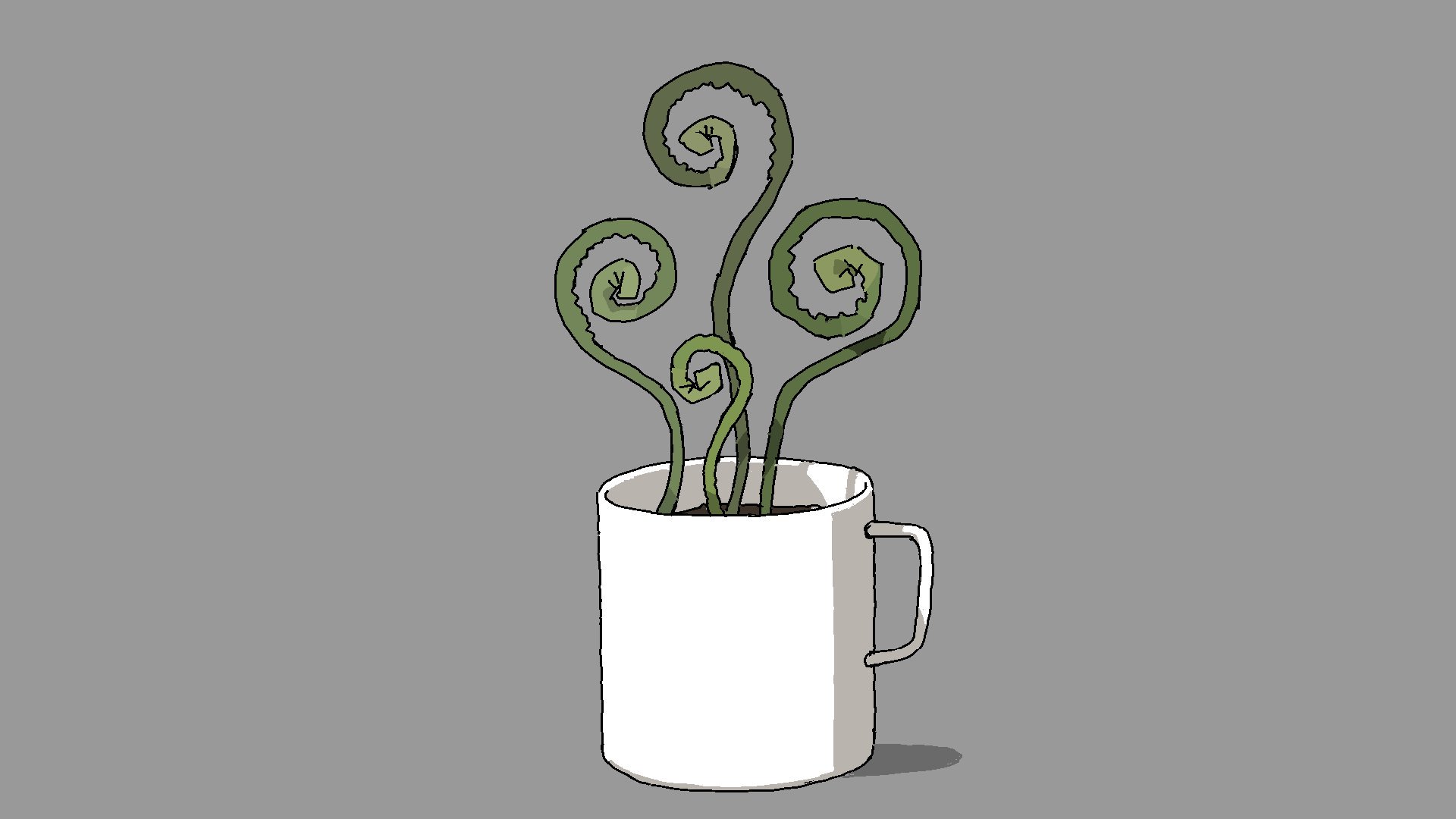
i used to feel some sympathy for innocent people getting caught up in crypto scams and losing money. recently, though, i read a very interesting article about some crypto scams that proposed that many people buying into crypto scams were well aware that they were scams, and were just betting that they’d be able to get out of the scam with decent profits before it all collapsed. this is not a crazy idea, because after all investors who get in and out of ponzi or pyramid schemes early enough usually end up making a good amount of money instead of losing it all. however, if you get into something knowing it’s a scam then don’t go around crying when you lose all your money and especially don’t expect me to feel bad for you. really, if the entire crypto “community” is just a bunch of people trying to scam each other, then they deserve each other and the hell they have created for themselves. in fact, having crypto keeping them all busy is probably a good thing for the rest of us.
it is interesting that they have been unable to come up with a treatment or medication for autism

i refuse to believe insurance is not some sort of huge scam. i mean just think about it: how would they even make money if they weren't consistently overcharging most of their clients? the fact that insurance companies spend so much money on advertising is also deeply suspicious. they prey on people's irrational fears and use the good old subscription model to keep the money flowing year after year. you are probably better off taking money you would be paying for insurance and putting into an index fund or something and just using that as an emergency fund.
